|

HOME |
ABOUT | INDEX |
NEWS |
FACEBOOK |
CONTACT
WOMEN
Feminism |
Girl Power | Liberated Ladies | Reproductive Rights
People's March
on Washington DC
Mad, Sad,
Overwhelmed.... Resistance to Trump's
Agenda...
The People's March, a feminist-led progressive movement,
kicked off in January 2025, on the weekend before the
presidential inauguration. Tens of thousands of
attendees arrived in Washington DC, bracing for a frigid
presidential inauguration.



Protesters Descend on Washington DC Ahead of
Inauguration
Thousands of Protestors Rally in Washington DC for
Trump's Inauguration
Thousands Protest in Washington DC Against Trump as he
Prepares for Inauguration
While the cold may deter some protesters from
President-elect Donald Trump's second inauguration
ceremony, which has been moved into the Capitol Rotunda,
law enforcement and organizers said that several
protests and major events are still planned throughout
the weekend.
One of the largest events of the weekend, the People's
March aims to bring attention to reproductive freedoms.
The event is a rebranding from the 2017 Women's March to
bring attention to key issues including LGBTQ and
reproductive rights, DC statehood, and environmental
issues. Organizers expected more than 50,000 attendees,
according to permits filed with the National Park
Service.


Protesters Descend on Washington DC Ahead of
Inauguration
Thousands of Protestors Rally in Washington DC for
Trump's Inauguration
Thousands Protest in Washington DC Against Trump as he
Prepares for Inauguration
The groups
behind the march are described as holding "intersecting
identities" and having "varied issue-based interests"
with different causes such as climate change,
immigration and women's rights. Women who gathered in
Washington to join the People's March said they had a
variety of motivations.
One protester said she wanted to show her support for
abortion access. "I'm really not happy with the way our
country's voted," she said. "I'm really sad that our
country's leaned towards a president that's already
failed us once and that we did not nominate a female
candidate."
Another woman said it's a mix of emotions that brought
her out to the streets of the nation's capital.
"Honestly, I'm just mad, I'm sad, I'm overwhelmed," she
said.
[Source:
ABC News, BBC News, January 2025]


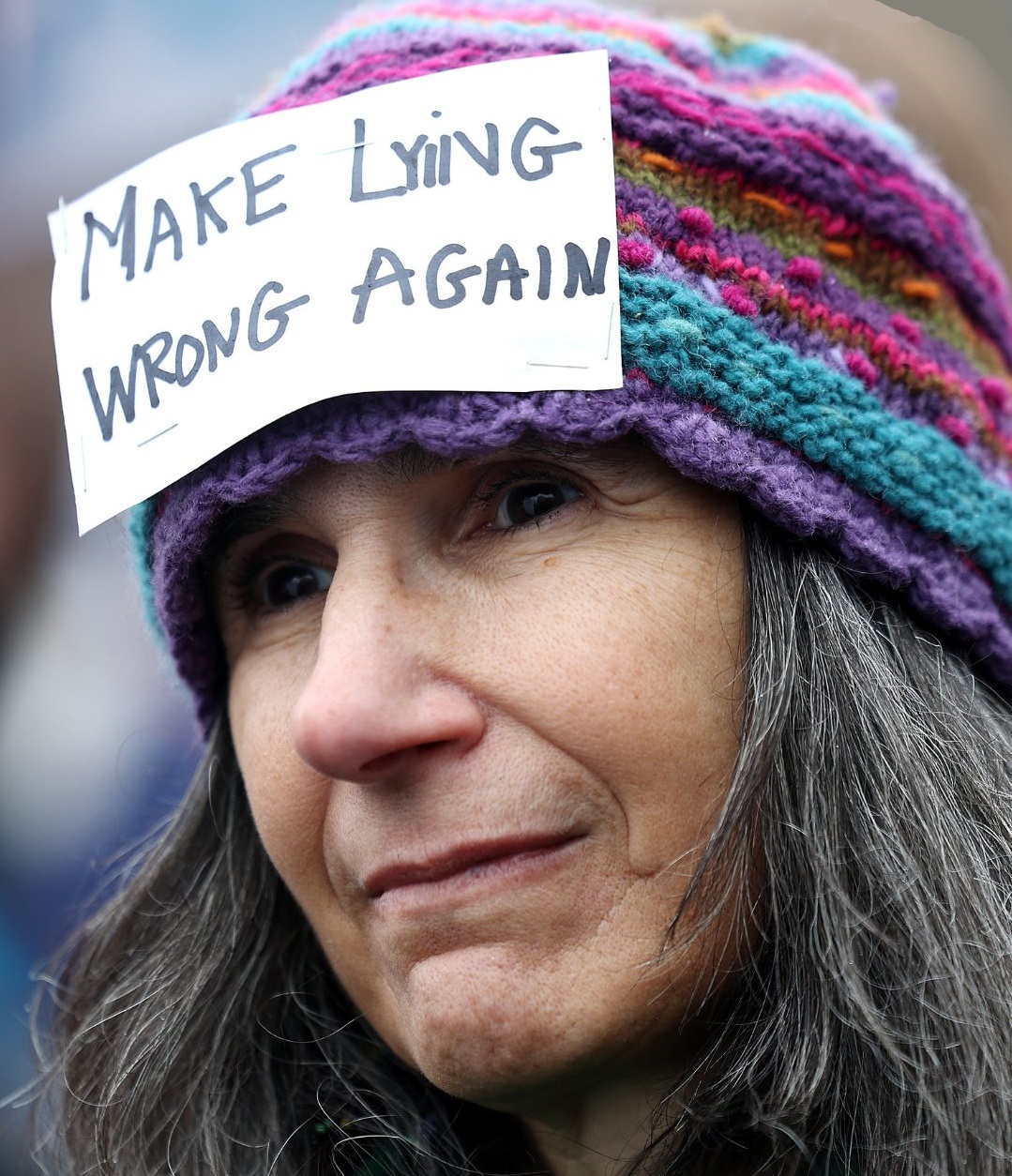
Navigating a Patriarchy
Women Under Pressure
Helen Reddy - I am Woman (1972)
Cynthia Nixon: Be a Lady
Tami Neilson - Stay Outta My Business
Message for Young Girls
Charlie Kirk on Rape and Abortion
Barefoot and Pregnant
Woman In The White House by Sheryl Crowe
Put a Woman in Charge by Keb Mo & Rosanne
Cash
Superwoman by Alicia Keys
Tricia Yearwood:
Every Girl in This Town
Highwomen: Redesigning Women
Queer Women Who Changed History
Billie Eilish: What Was I Made For?
The Man by Taylor Swift
Queer Women Who Changed the World in the Last Year
You Don't Own Me by Leslie Gore
Indigo Girls: Go (March for Our Lives)
Sheryl Crowe: Woman in the White House
Beyonce: Girls Run the
World
Kamala Harris
for President
Question: How Pro-LGBTQ is Kamala Harris?
Answer: Very!
Vice President Kamala Harris is expected to be the
Democratic presidential nominee now that President Joe
Biden has exited the race and has endorsed her. She
brings a long and strong record of support for LGBTQ
equality, reproductive freedom, and other progressive
causes.
If she wins in November, Harris will make history as
both the first woman to be president and first woman of
color in the nation’s highest office — the first Black
woman and the first one of South Asian heritage. She'd
also most likely be the most pro-LGBTQ president.
Harris was born October 20, 1964, in Oakland, Calif.,
and grew up in Berkeley and the surrounding East San
Francisco Bay Area, along with spending a few years in
Montreal. She is the daughter of two immigrants — her
mother, Shyamala Gopalan, was born in India, and her
father, Donald Harris, in Jamaica. Gopalan was a
research scientist and Harris an economist. Her parents
were active in the civil rights movement and took young
Kamala to marches in a stroller. She is a graduate of
Howard University, one of the nation’s preeminent
historically Black universities, and earned a law degree
from the University of Hastings College of Law. In 2014,
she married Douglas Emhoff, a lawyer. They have two
children, Ella and Cole.
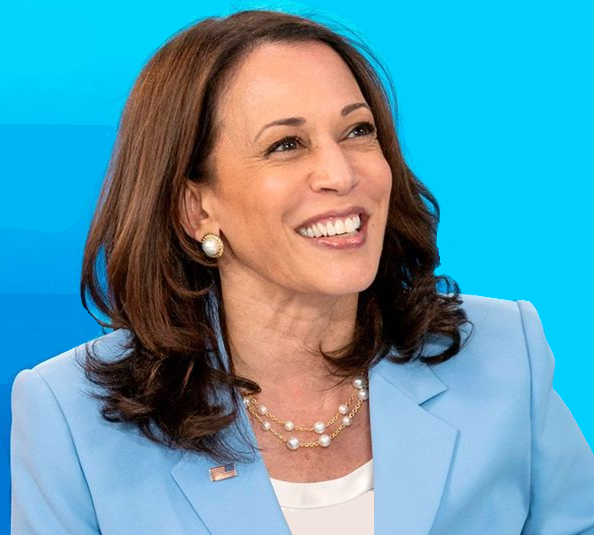
"I have taken on perpetrators of all kinds...
Predators who abused women... fraudsters who ripped off
consumers...
cheaters who broke the rules for their own gain.
So, hear me when I say I know Donald Trump’s type.”
-Kamala
Harris
Harris began her law career in 1990 in the district
attorney’s office in Alameda County, Calif. There, she
specialized in prosecuting child sexual assault cases.
In 2003, she was elected district attorney for San
Francisco City and County. The following year, when San
Francisco Mayor Gavin Newsom declared same-sex marriage
legal in the city, Harris conducted marriages for
same-sex couples. “One of the most joyful moments of my career
was performing the marriages in 2004. Truly joyful,”
Harris said. “I’ll never
forget pulling up to see all the families of every
configuration and just pure joy, pure happiness,” she
said on the call. “It was such a special moment, and it
was all about love.”
She established a hate-crimes unit in the DA’s office as
well as an environmental justice unit. She also created
a program to give first-time drug offenders the
opportunity to earn a high school degree and find
employment. The US Department of Justice called it a
national model of innovation for law enforcement.
In 2010, she was elected California attorney general,
overseeing the largest state-level justice department in
the nation. As AG, she played a key role in restoring
marriage equality in the Golden State. One of the
signature issues in her campaign was her opposition to
Proposition 8, the voter-approved ballot initiative that
revoked marriage equality in California in 2008, undoing
the state Supreme Court decision that allowed same-sex
couples to marry. Both she and Jerry Brown, who was
elected governor in 2010, said they would not defend
Prop. 8 in court, and Brown’s predecessor as governor,
Arnold Schwarzenegger, had done the same. If Steve
Cooley, Harris’s opponent in the AG race, who had
pledged to defend Prop. 8, had won, it might have
changed the ballot measure’s fate.
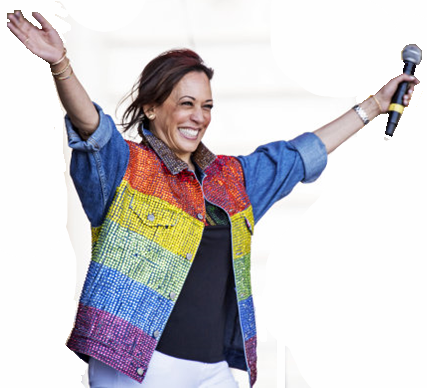 
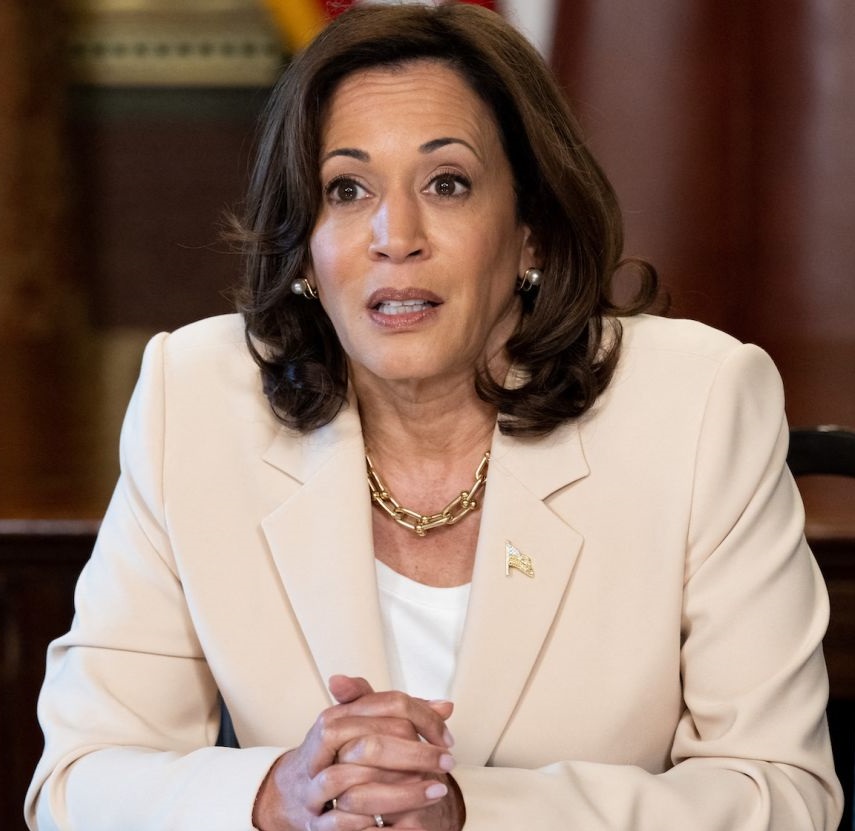
How Pro-LGBTQ is Kamala Harris?
Woman In The White House by Sheryl Crowe
Human Rights Campaign: Endorses Kamala Harris for
President
Where Does Kamala Harris Stand on LGBTQ Rights? Does She
Support the Queer Community?
How LGBTQ and Democratic Leaders are Reacting to Biden
Dropping Out, Endorsing Harris
NBC News Back in 2020: Kamala Harris Brings Pro-LGBTQ
Record to Biden Ticket
Barbra Streisand for Kamala Harris
As it was, the proposition’s supporters had to defend it
against court challenges, and courts all the way up to
the US Supreme Court agreed they didn’t have legal
standing to do so, and because of that Prop. 8 was
struck down. After Prop. 8 bit the dust in 2013, she
officiated the first post-Prop. 8 same-sex marriage in
California, between Kris Perry and Sandy Stier, who had
been part of the court case.
As AG, she went on to lead efforts to abolish gay and
transgender “panic” defenses in criminal trials. She
received some criticism for a position she took as AG,
backing the state of California when it sought to deny
gender-affirmation surgery to a trans prisoner. But
Harris has pointed out that when she was attorney
general, the state’s Department of Corrections was a
client of hers, and she had to represent its interests —
but she worked behind the scenes to get the policy
changed so that any inmate requiring such procedures
could receive them.
Also as AG, she won a $20 billion settlement for state
residents who had lost their homes to foreclosure and a
$1.1 billion settlement for those who were cheated by a
for-profit education company. She defended the
Affordable Care Act in court and enforced environmental
laws.
She was elected to the US Senate in 2016. She received
perfect 100 scores on the Human Rights Campaign
Congressional Scorecard, which measures support for
LGBTQ equality, before leaving the Senate to become vice
president. Her record likewise includes perfect ratings
from reproductive rights groups such as Planned
Parenthood Action Fund, NARAL Pro-Choice America (now
known as Reproductive Freedom for All), and NARAL
Pro-Choice California.
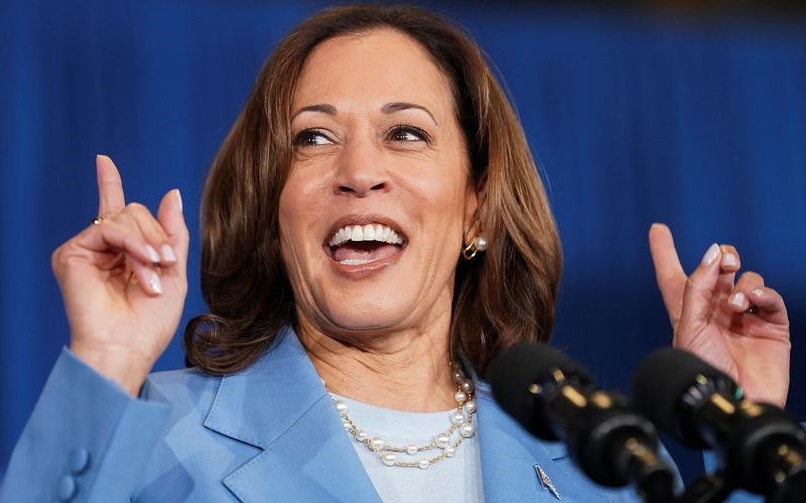
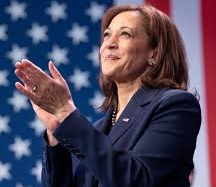
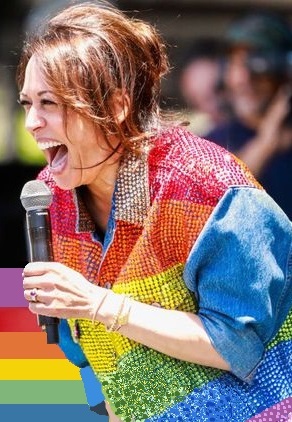
How Pro-LGBTQ is Kamala Harris?
Put a Woman in Charge by Keb Mo & Rosanne
Cash
Human Rights Campaign: Endorses Kamala Harris for
President
Where Does Kamala Harris Stand on LGBTQ Rights? Does She
Support the Queer Community?
How LGBTQ and Democratic Leaders are Reacting to Biden
Dropping Out, Endorsing Harris
NBC News Back in 2020: Kamala Harris Brings Pro-LGBTQ
Record to Biden Ticket
Barbra Streisand for Kamala Harris
“A woman who is a real intellectual threat to men
will always be called crazy.”
-Camille Paglia
As a senator, she introduced a bill to mandate insurance
coverage of pre-exposure prophylaxis, the HIV prevention
method, and she notably stumped Supreme Court nominee
Brett Kavanaugh with a question on marriage equality
during his confirmation hearings. Further, “she
championed legislation to fight hunger, provide rent
relief, improve maternal health care, expand access to
capital for small businesses, revitalize America’s
infrastructure, and combat the climate crisis,”
according to her official White House biography.
Her advocacy for progressive causes has continued during
her vice presidency. She has spoken out against the rash
of anti-LGBTQ legislation in conservative states around
the country, such as “don’t say gay” laws affecting
education and bans on gender-affirming care for
transgender youth. “I hate bullies,” she told The
Advocate in the 2023 interview. She noted that the
politicians attacking LGBTQ people and reproductive
rights are usually the same. “The intersection on the
issue of reproductive care and trans care, and the
ability of families to be able to have care for their
children and their families, is really, again, an
intersection around attacks that are on an identity,”
she said.
She has hosted Pride Month receptions and visited New
York City’s Stonewall Inn, where an uprising against
police harassment of gay bars in 1969 jump-started the
modern LGBTQ rights movement. She met with WNBA star
Brittney Griner and her wife, Cherelle Griner, before
Brittney’s first game after her release from captivity
in Russia.
President Biden honored her work on marriage equality by
gifting her with the pen he used to sign the Respect for
Marriage Act in December 2022. The act wrote marriage
equality into federal law, protecting it against future
negative Supreme Court action.
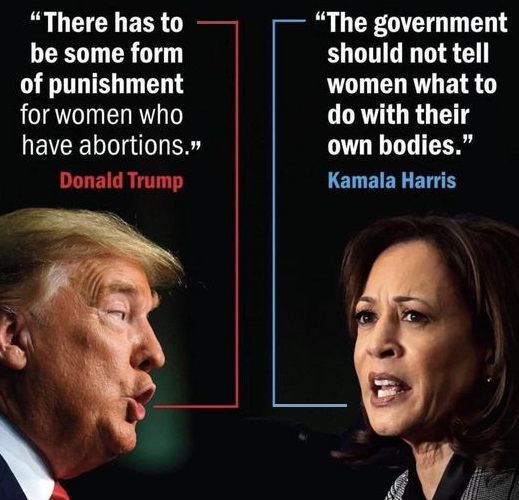
The possibility of that action became top of mind with
the high court’s 2022 ruling overturning Roe v. Wade,
the landmark 1973 decision that established abortion
rights nationwide, in Dobbs v. Jackson Women’s Health
Organization. States are now free to ban or severely
restrict the procedure, and about half of them have.
While Justice Samuel Alito, who wrote the opinion, said
it shouldn’t be read as opening attacks on other
precedents, both he and fellow conservative Justice
Clarence Thomas have said they’d like to see the court’s
2015 marriage equality ruling overturned. Thomas also
called for overturning decisions that struck down sodomy
laws and state bans on contraception. That would take a
case on any of the issues coming to the Supreme Court,
but that’s possible.
Since the Dobbs ruling, Harris has talked extensively
about the importance of reproductive freedom. She and
Biden have called on Congress to pass a law restoring
the protections of Roe. Americans need to send a message
to anti-choice politicians that their actions are not
acceptable, she said at a reproductive rights rally this
year in Virginia.
She has remained equally outspoken on LGBTQ rights. “The
fight for equal rights is patriotic,” she said at a 2023
Pride reception. “We believe in the foundational
principles of our country; we believe in the promise of
freedom and equality and justice. And so the fight for
equal rights is an expression of our love of our
country.”
[Source: Trudy Ring, Advocate Magazine, July 2024]
Women Under Pressure
Lily Tomlin: Artist and Activist
Woman In The White House by Sheryl Crowe
Put a Woman in Charge by Keb Mo & Rosanne
Cash
Superwoman by Alicia Keys
Charlie Kirk on Rape and Abortion
Tricia Yearwood:
Every Girl in This Town
Highwomen: Redesigning Women
Barefoot and Pregnant
Queer Women Who Changed History
Billie Eilish: What Was I Made For?
The Man by Taylor Swift
Queer Women Who Changed the World in the Last Year
You Don't Own Me by Leslie Gore
Indigo Girls: Go (March for Our Lives)
Sheryl Crowe: Woman in the White House
Beyonce: Girls Run the
World
Tami Neilson - Stay Outta My Business
Barefoot and Pregnant
Supreme Court
Overturns Roe vs. Wade Decision
“We
are at an exceedingly dangerous, unprecedented moment."
-Joni
Madison,
Human Rights Campaign Interim President
The US
Supreme Court made it official: in a 6-3 decision, the
justices ruled in Dobbs v. Jackson Women’s Health
Organization that the constitutional right to an
abortion, which has existed for nearly half a century,
no longer exists. States can now ban abortion, and about
half are poised to do so. The long-planned
radicalization of the Court by the right-wing has
finally come to fruition, with the appointment under
Donald Trump of three well-vetted justices guaranteed to
carry out the right’s ideological agenda.
Justice Samuel Alito, who wrote the majority opinion,
said “Roe was egregiously wrong from the start. Its
reasoning was exceptionally weak, and the decision has
had damaging consequences. And far from bringing about a
national settlement of the abortion issue, Roe and Casey
[a subsequent abortion rights decision] have enflamed
debate and deepened division. It is time to heed the
Constitution and return the issue of abortion to the
people’s elected representatives.”
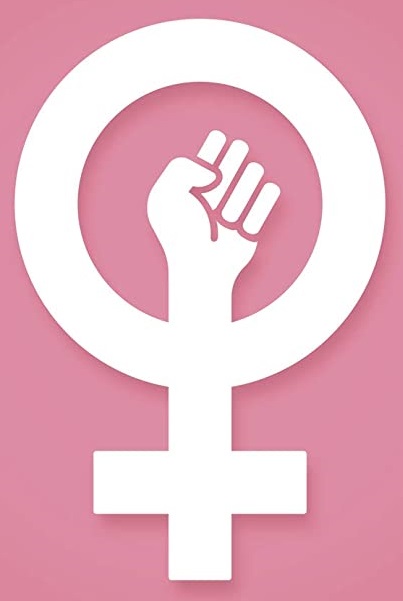
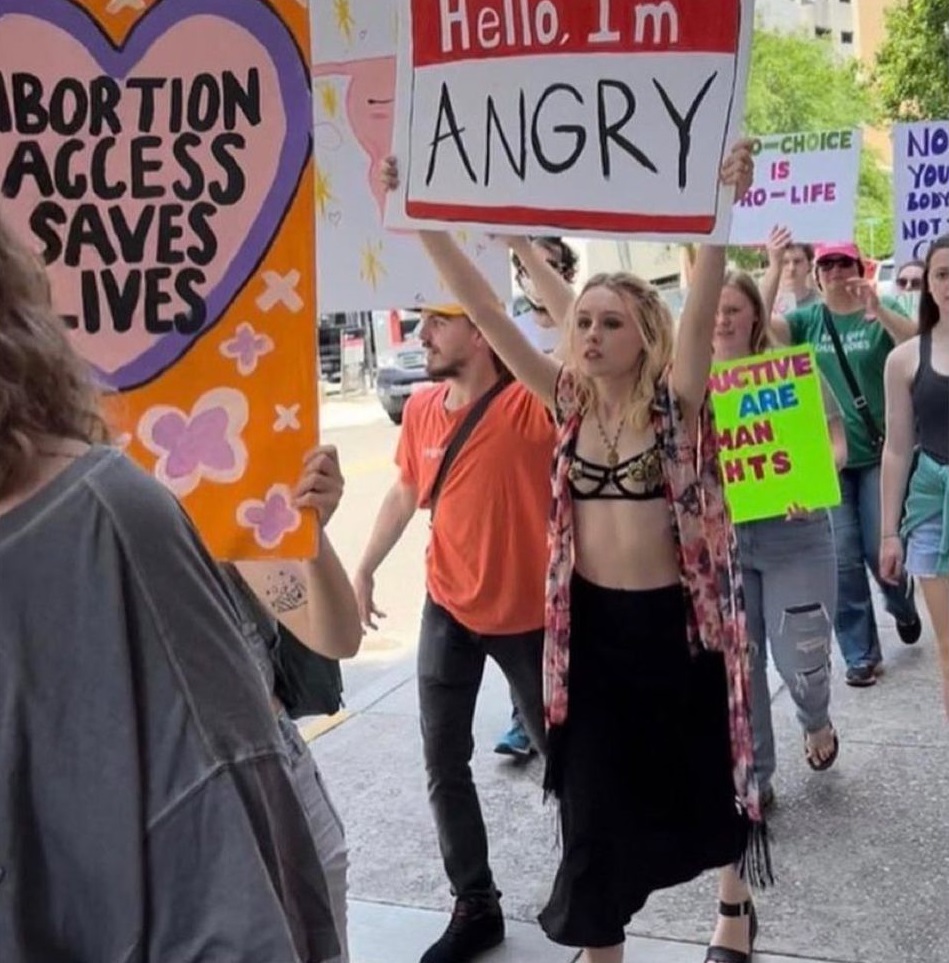
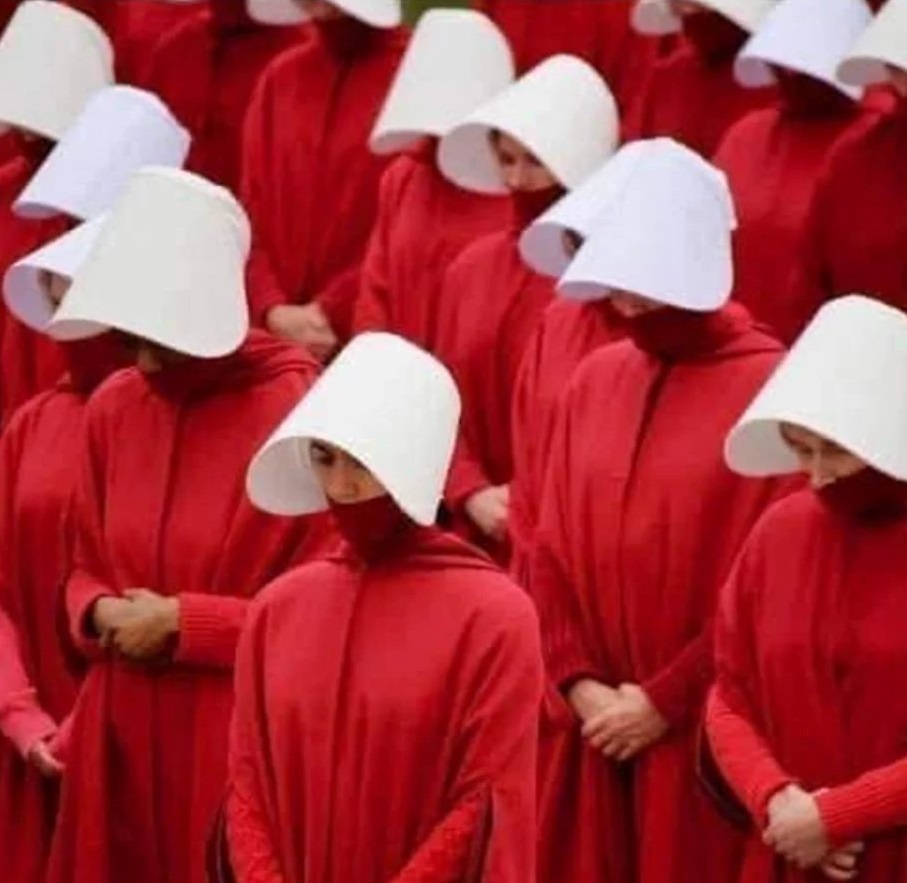
"You
don’t own me. I’m not just one of your many toys.
Don’t tell me what to do. Don’t tell me what to say.
And please, when I go out with you, don’t put me on
display."
-Leslie Gore
Navigating a Patriarchy
Helen Reddy - I am Woman (1972)
Cynthia Nixon: Be a Lady
Woman In The White House by Sheryl Crowe
Put a Woman in Charge by Keb Mo & Rosanne
Cash
Superwoman by Alicia Keys
Tricia Yearwood:
Every Girl in This Town
Ruth Bader Ginsburg: Woman of the Year
Lady Gaga:
Till it Happens to You
Message for Young Girls
HuffPost: End of the Pussy-Grabbing President
Highwomen: Redesigning Women
Artist Creates Comics That Challenge Double Standards in
Gender
Queer Women Who Changed History
Billie Eilish: What Was I Made For?
Fight for Reproductive Justice is Fight for
LGBTQ Equality
Time Magazine Heroes of the Year: Women of Iran
Irrelevant by Pink
The Man by Taylor Swift
The rhetoric about division is laughable. The majority
of Americans support some form of access to abortion.
This decision will only deepen division. It will,
however, delight the conservative base that the justices
are catering to. The lack of regard for precedent and
for public opinion is a very bad sign for LGBTQ rights.
Indeed, Justice Clarence Thomas all but issued an open
invitation to right-wing legal activists to find cases
to bring his way.
“The message here is clear and distressing:
Americans are losing protected access to abortion, a
constitutional right they have valued for nearly 50
years, and other rights to personal liberty are at risk
too.
The anti-abortion playbook and the anti-LGBTQ playbook
are one and the same. Both are about denying control
over our bodies and making it more dangerous for us to
live as we are. Both divide our country into free and
less free, the opposite of what the United States should
be. Our bodies, healthcare and our future belong to us,
not to a meddling politician or extremist Supreme Court
justices, and we will fight back.”
-Sarah
Kate Ellis,
GLAAD President and CEO
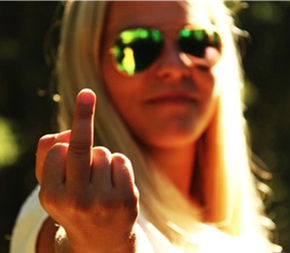
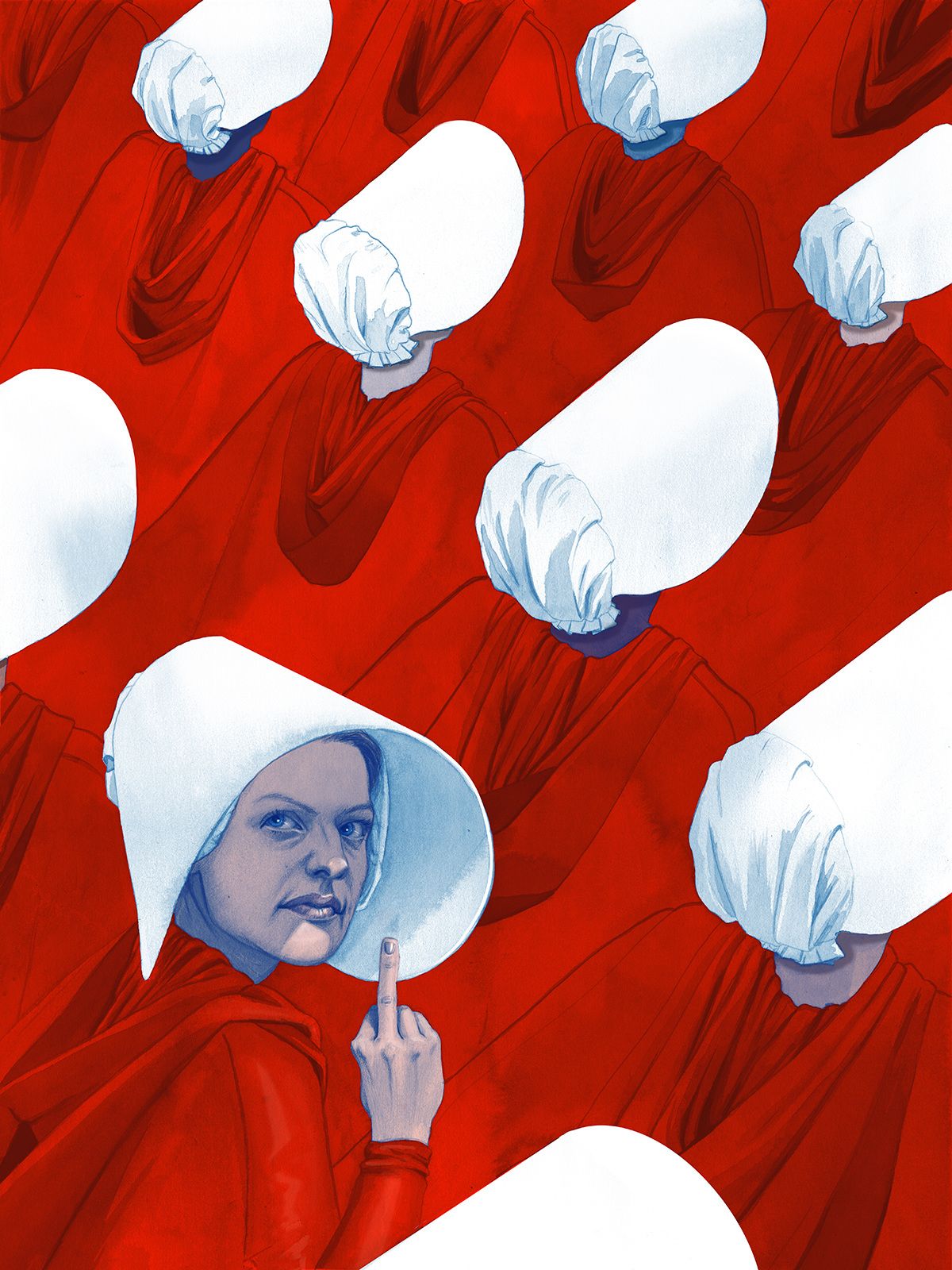

Queer Women Who Changed the World in the Last Year
You Don't Own Me by Leslie Gore
Indigo Girls: Go (March for Our Lives)
Sheryl Crowe: Woman in the White House
Tami Neilson - Stay Outta My Business
Lily Tomlin: Artist and Activist
Advocate: Civil Rights Champion Ruth Bader Ginsburg Dies
Charlie Kirk on Rape and Abortion
Unpregnant: Women's
Movement Meets LGBTQ Movement
Beyonce: Girls Run the
World
LGBTQ Groups Outraged Over Dobbs Ruling Overturning
Roe
Angry Woman by Ashe
Amanda Gorman: Reasons to Stand Up for Roe v Wade
International Women's Day: Chaka Kahn and Idina Menzel
Billie Jean King: 50 Years
of Activism
"I am not
just a dreamer. I am a hopeaholic."
-Gloria
Steinem
"This
ruling will cost women their lives and livelihoods.
It will cost LGBTQ women, transgender men and nonbinary
people their lives and livelihoods. And it will cost
their friends, family, loved ones and neighbors those
lives and livelihoods as a result. We cannot and will
not allow this gross injustice to stand. We must fight
twice as hard and twice as long, if necessary, to secure
this fundamental right as our opponents have fought to
rip it away. We are working with our allies in the
reproductive freedom movement across California and
across the country to protect access to safe, legal
abortion. And we remain focused on a variety of LGBTQ
issues, including attacks against trans kids, efforts to
roll back protections for LGBTQ students, critical
criminal justice reforms and the freedom to marriage
equality. We will continue to monitor developments that
threaten hard-fought rights to ensure that we can
confront them quickly. And we must vote out anyone who
stands in our way — until the work is done."
-Tony Hoang, Executive Director of Equality California
“As a
result of today’s decision, some people will die because
they can no longer access abortion care.
Others will have their lives ruined by not being able to
make their own decisions about their health and their
futures. And as Justice Thomas makes clear in his
concurrence, which openly calls for the reversal of the
fundamental rights to contraception, sexual intimacy,
and marriage, the Court’s disregard for precedent poses
a clear and present danger to freedoms that are of
utmost importance not only to LGBTQ people but to every
person in this country.”
-Julianna
Gonen, Federal Policy Director, National Center for
Lesbian Rights


Navigating a Patriarchy
Women Under Pressure
Helen Reddy - I am Woman (1972)
Cynthia Nixon: Be a Lady
Woman In The White House by Sheryl Crowe
Put a Woman in Charge by Keb Mo & Rosanne
Cash
LGBTQ Groups Voice Outrage Over Dobbs Ruling Overturning
Roe
The
Highwomen: If She Ever Leaves Me
Roe v Wade is Dead: Ending Marriage Equality is Next
Biden on SCOTUS Decision: This is Not Over
After Roe v. Wade Reversal: Pride Parades May Resemble
Protest Marches of Decades Past
Pelosi on SCOTUS, GOP Overturning Roe and What’s Next
Jim Obergefell Slams Supreme Court’s Threat to Overturn
Same-Sex Marriage
Women Who Changed the Course of LGBTQ History
Flashmob: Victoria's Secret
How Will Roe v. Wade Reversal Affect LGBTQ Rights?
You
Don't Own Me by Lesley Gore in 1989
“Every
person in this country should be deeply alarmed by this
shameful ruling, which is simply not normal and should
be beyond the bounds of what is thinkable for the body
entrusted to uphold our constitutional freedoms.
We must rally together across all our communities to
push back against these extreme assaults. We will fight
alongside our partners and at every level of state and
federal government and in the courts for the right of
transgender people to access life-saving healthcare and
for parents’ basic right to seek that care for their
transgender children; for the rights of LGBTQ students
and students with LGBTQ families to be welcomed and
included in schools; to protect the recognition of our
relationships; to ensure stronger protections for LGBTQ
families and all families; and for access to abortion,
contraception and reproductive choice.”
-Janson
Wu,
Executive Director,
GLBTQ Legal Advocates & Defenders
"It is
disturbing and dangerous that the Court overturned the
key precedents of Roe v. Wade and Casey.
Doing so allows tremendous overreach and intrusion by
the government into our most personal decisions and
freedoms — on an issue that was settled five decades
ago. This ruling is rooted in sexism and misogyny. It
denies equality before the law and restricts the right
of anyone who needs abortion care in order to make their
own decisions about their own lives...We know this: bans
on abortion are deeply racist and profoundly sexist —
the harshest impacts always fall on Black and Brown
women and pregnant people and our families and
communities. This decision will impact these communities
the most, and it is these lives that will be forever
harmed by the loss of these fundamental rights."
-Kierra
Johnson, Executive Director, National LGBTQ Task Force.
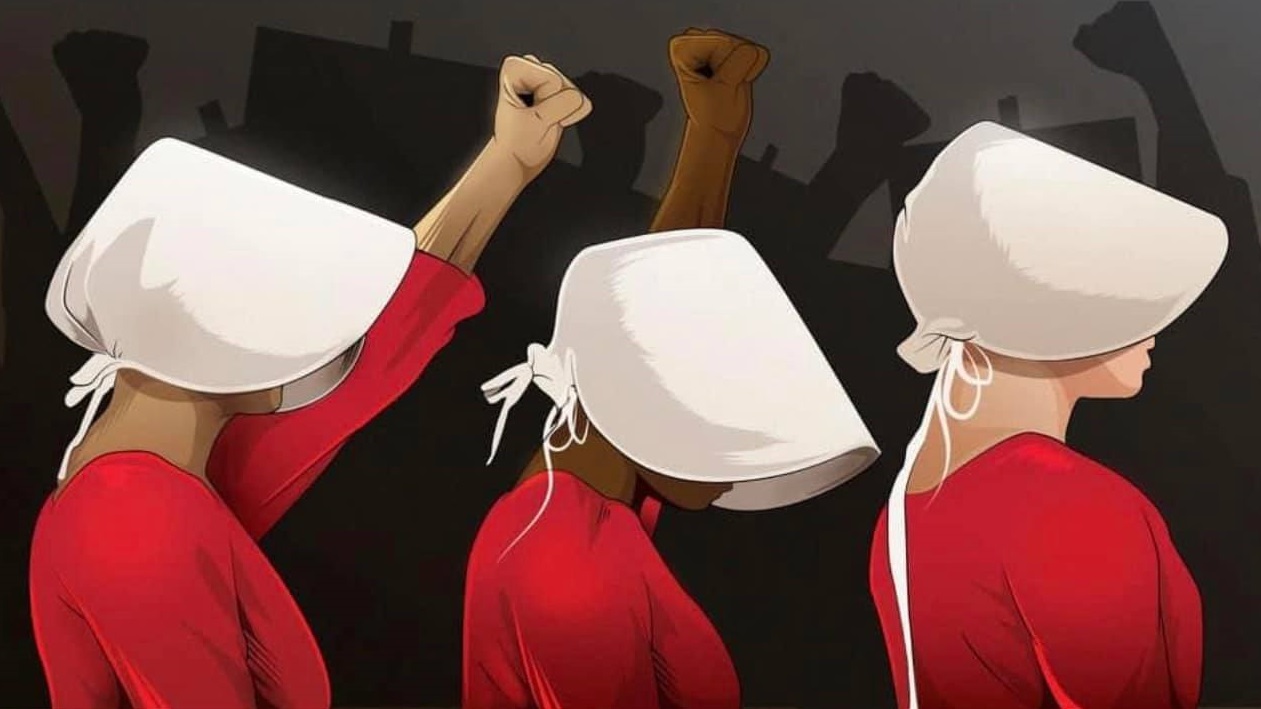
How will Roe v. Wade Reversal Affect LGBTQ Rights?
Women Who Changed the Course of LGBTQ
History
Barefoot and
Pregnant
Charlie Kirk on Rape
and Abortion
Kamala Harris Blasts SCOTUS, Says Marriage Equality Is
on the Line
Provincetown Reacts to SCOTUS’s Disgraceful Overturning
of Roe v. Wade
Olivia Rodrigo and Lily Allen: Fuck You
Lily Tomlin:
Artist and
Activist
HRC: How the Supreme Court’s Decision to Overturn Roe v.
Wade Affects the LGBTQ Community
Thomas Wants Supreme Court to Overturn Rulings that
Legalized Contraception and Same-Sex Marriage
Clarence Thomas Ready to Strike Down Marriage Equality
Following Dobbs
Barefoot and
Pregnant
Tami Neilson -
Stay Outta My
Business
Message for
Young Girls
The Man by
Taylor Swift
Women's Rights
“Feminism encourages
women to leave their husbands, kill their children,
practice witchcraft, destroy capitalism, and become
lesbians.”
-Pat Robertson
As a
group, women have long suffered many of the same acts of
oppression endured by LGBTQ individuals. Women have
experienced countless inequities and injustices over the
years. Women have been the victims of discrimination,
harassment, and violence. Issues of women's rights are
very much parallel with LGBTQ rights. Women's Liberation
and Gay Liberation have a lot in common regarding the
fight for equality. The "Glass Ceiling" and the
"Lavender Ceiling" are obstacles both groups fully
recognize.
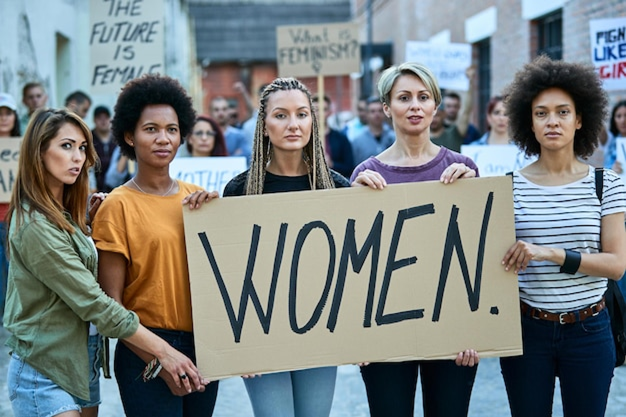
"I
just think there are some things women shouldn't wear.
Like
the weight of other people's expectations and judgements."
-Megan Rapinoe
Lesbian feminism is a cultural movement and critical
perspective, most popular in the 1970s and early 1980s
(primarily in North America and Western Europe), that
questions the position of lesbians and women in society.
Some key thinkers and activists are Charlotte Bunch,
Rita Mae Brown, Adrienne Rich, Audre Lorde, Marilyn
Frye, Mary Daly, Sheila Jeffreys and Monique Wittig.
Historically lesbianism has been closely associated with
feminism, going back at least to the 1890s. "Lesbian
feminism" is a related movement that came together in
the early 1970s out of dissatisfaction with second-wave
feminism and the gay liberation movement.
In the words of lesbian feminist Sheila Jeffreys,
"Lesbian feminism emerged as a result of two
developments: lesbians within the Women's Liberation
Movement began to create a new, distinctively feminist
lesbian politics, and lesbians in the Gay Liberation
Front left to join up with their sisters."
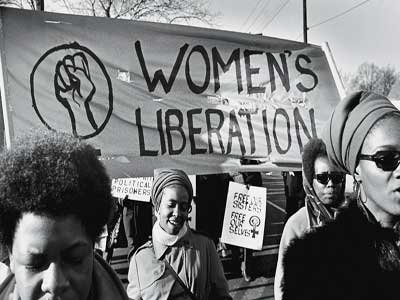
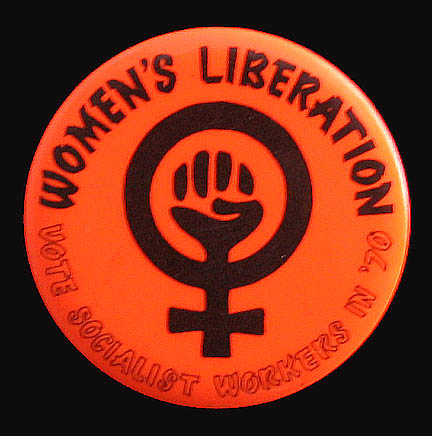
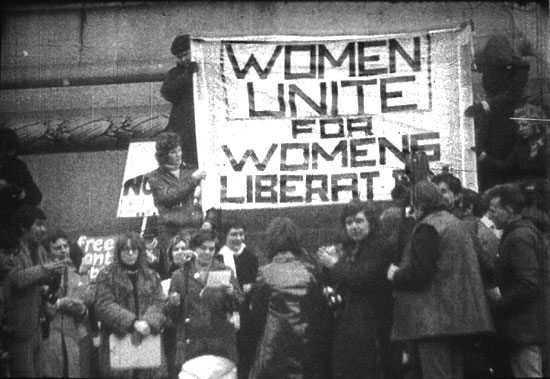
Vintage feminism...
the
soul of a witch, the fire of a lioness, the heart of a
hippie, the mouth of a sailor
Sheila
Jeffreys defines lesbian feminism as having seven key
themes:
--Emphasis on women's love for one another
--Separatist organizations
--Community and ideas
--Idea that lesbianism is about choice and resistance
--Idea that the personal is the political
--Rejection of social hierarchy
--Critique of male-supremacy (which eroticizes
inequality)
Woman In The White House by Sheryl Crowe
Put a Woman in Charge by Keb Mo & Rosanne
Cash
Queer Women Who Changed History
Billie Eilish: What Was I Made For?
Authentic, Accurate, Hilarious:
Illustrations that Capture What it's Like Being a Woman
American Girl (Alternate Version) by Tom Petty
Sisters Are Doin' for Themselves: Annie Lennox and
Aretha Franklin
Lesbian Activist Fighting for All women's Rights
These Boots Are Made for Walking
Artist Creates Comics That Challenge Double Standards in
Gender
Essay by Adrienne Rich: Compulsory Heterosexuality &
Lesbian Existence
The Highwomen: If She Ever Leaves Me
AutoStraddle: Female
Friends Forever
Wikipedia:
Womyn
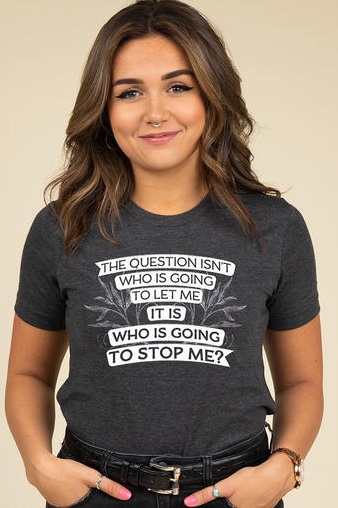
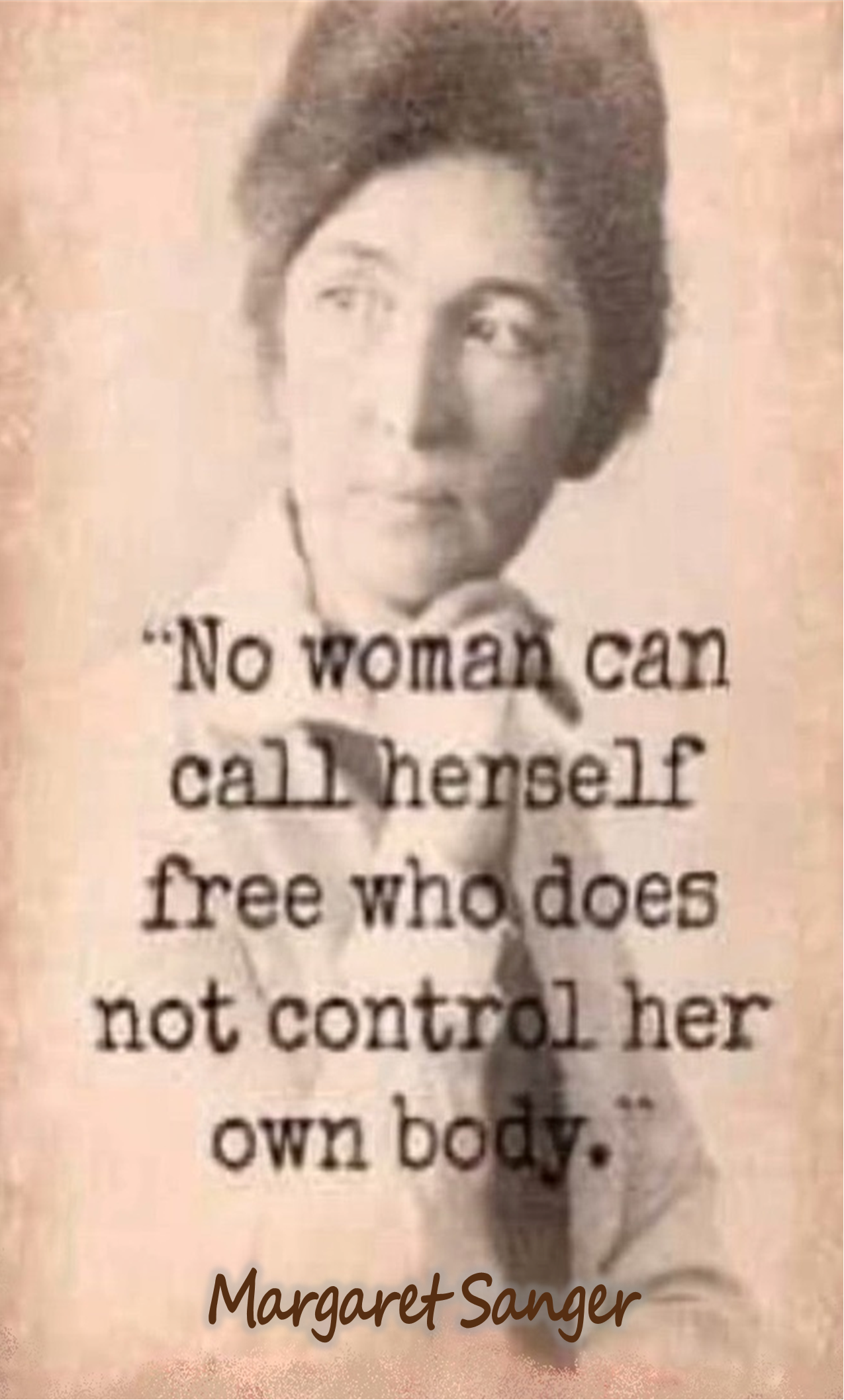
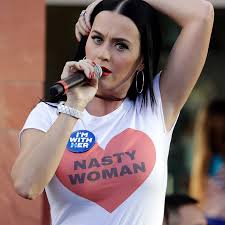
Women Under Pressure
Women React to Trump’s
Sexism
The Year Women Found Their Rage
Flashmob: Victoria's Secret
Charlie Kirk on Rape and Abortion
Barefoot and Pregnant
Tami Neilson - Stay Outta My Business
Queer Women Who Changed the World in the Last Year
Feminist Current: Lesbianism Under Attack
Trump's List of Nasty Women
Gloria Steinem: Feminist Icon
Highwomen Music Video: Redesigning Women
Info: Lesbian Issues
Lesley Gore: You Don't Own Me
Herstory Project: Feminism and Lesbianism
Feminista Jones: Black Feminism
Article: Lesbian Separatism
Shout Out to
Women
"She overcame everything that was meant to destroy her."
-Sylvester McNutt III
"Give a woman pain and she’ll turn it into power. Give
that woman chaos and she’ll create peace."
-R. H. Sin
“I think women are foolish to pretend they are equal to
men. They are far superior and always have been.”
-William Golding
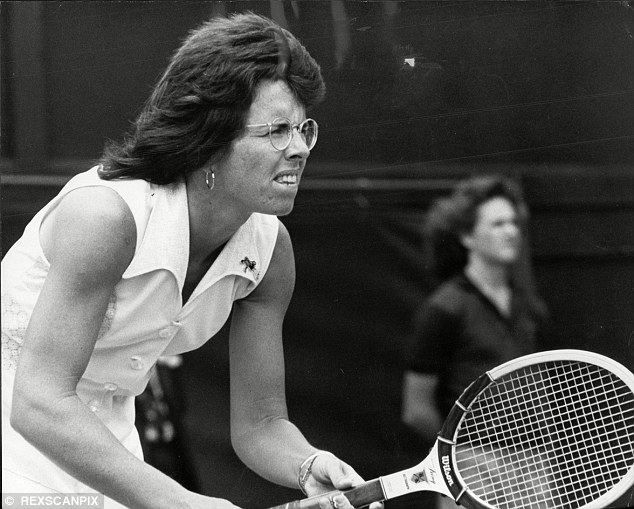
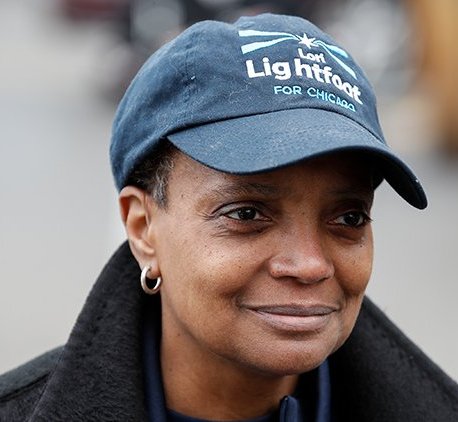
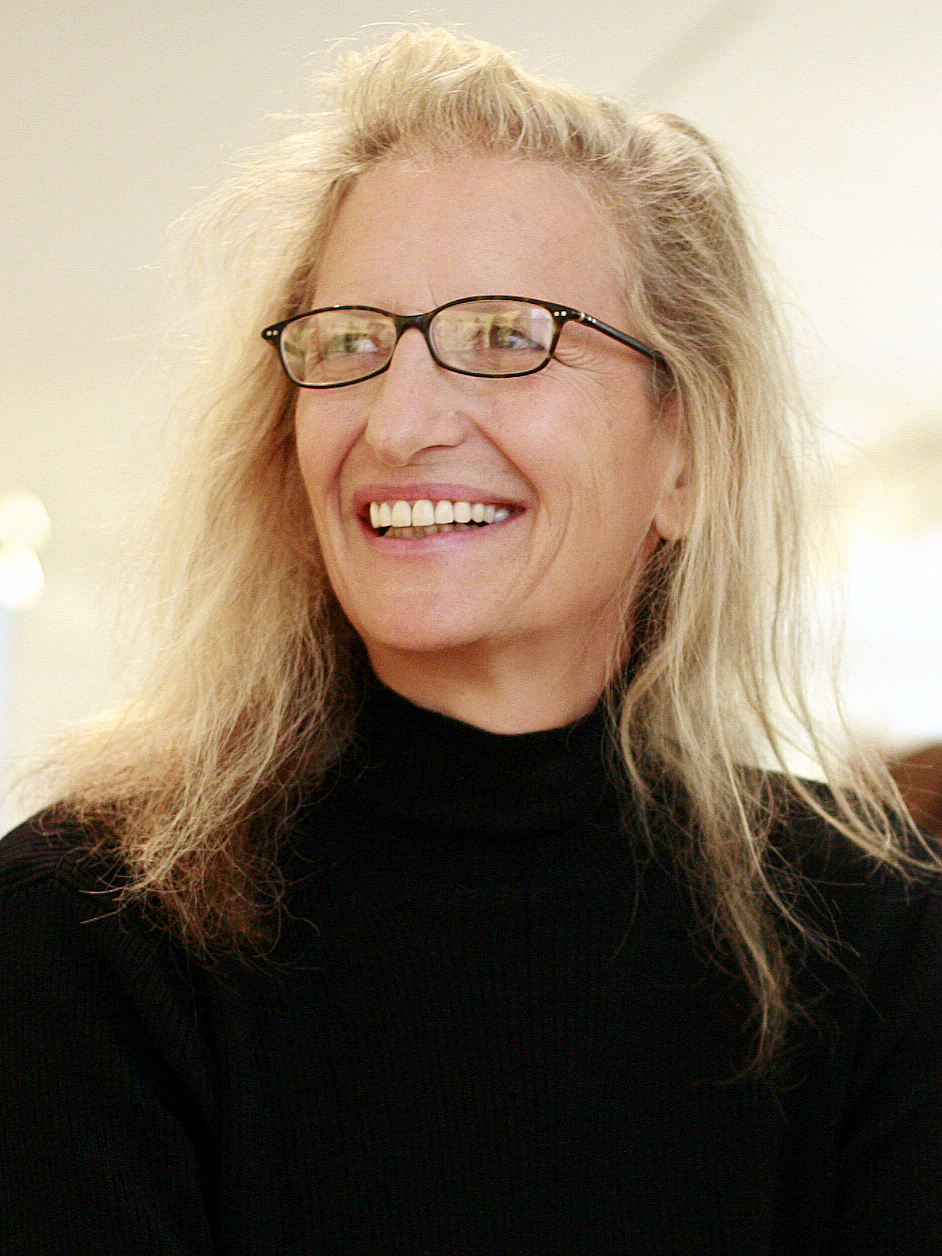

Indigo Girls: Go (March for Our Lives)
Wikipedia: Lesbian Feminism
Billie Eilish: What Was I Made For?
Put a Woman in Charge by Keb Mo & Rosanne
Cash
It's Time for LGBTQ Women to Claim Our Seats at the
Table
Four Non Blondes: What's Up
Born to Play: Boston
Renegades Women's Football Team
How Toxic Masculinity Harms Women
Jennifer Nettles: I Can Do Hard Things
Queer Women Who Changed History
Women Who Changed the Course of LGBTQ
History
Kamala Harris Blasts SCOTUS, Says Marriage Equality Is
on the Line
Americans by Janelle Monae
Barefoot and Pregnant
Advocate Magazine: Women of the Year
Game-Changing Queer Women to Celebrate
Women's History Month
American Girl (Alternate Version) by Tom Petty
Taylor Swift: I'd Be The Man
Queer Suffragists Who Fought for Women’s Right to Vote
Overturning of Roe v. Wade:
Assault on Women and Democracy Globally
The US Supreme Court’s decision in June 2022 to overturn
Roe v. Wade (the 1973 landmark case protecting the right
to abortion) is an assault on women’s rights, human
rights, and democracy that will have a damaging impact
around the world.
The decision reverses nearly 50 years of precedent in
the United States, explicitly ending federal
Constitutional protections for abortion, diminishing the
rights of women, and threatening their access to
reproductive care. With the significant hurdles already
confronting those seeking to access reproductive care in
the US, this decision will not only exponentially
increase those who are impacted, but will hurt
communities systemically failed by health systems the
most—especially communities of color and poor women.
This is particularly concerning given the role the
United States has played in championing human rights
globally. Roe v. Wade inspired movements and laws in
countries such as Tunisia and Cape Verde, and activists
across the globe have expressed alarm at the prospect of
other countries emulating the Supreme Court’s decision.
This ruling may also signal a return to US
obstructionism on sexual and reproductive health and
rights globally, and a renewed effort to withdraw US
funding for reproductive health care.
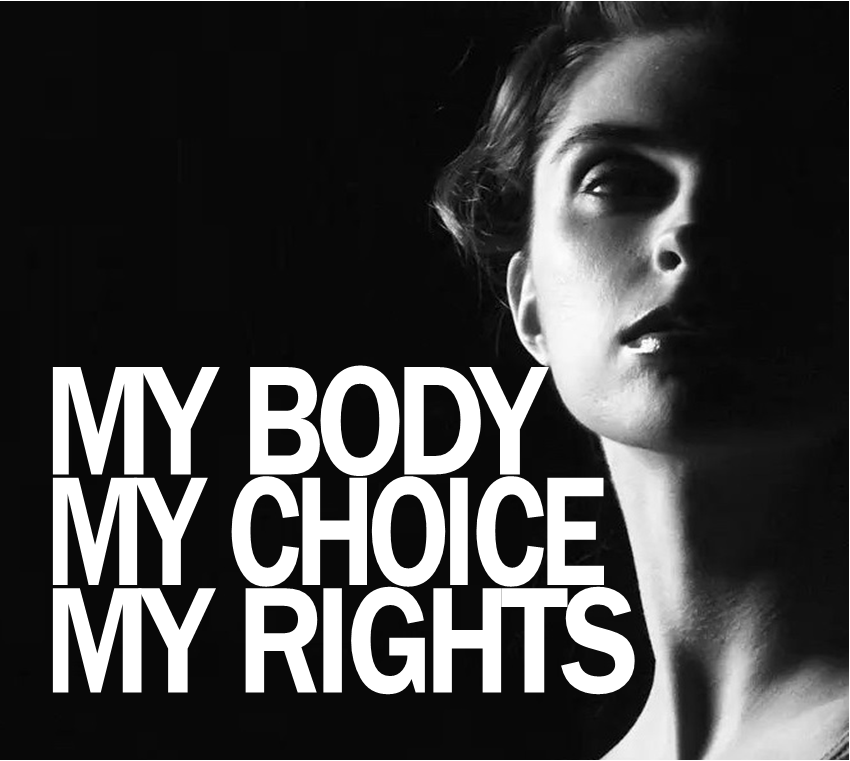
Navigating a Patriarchy
Women Under Pressure
Helen Reddy - I am Woman (1972)
Cynthia Nixon: Be a Lady
The Man by Taylor Swift
Lily Tomlin: Artist and
Activist
Advocate Magazine: Women of the Year
Trump's List of Nasty Women
Tami Neilson - Stay Outta My Business
Gloria Steinem: Why You
Should Be a Feminist
Highwomen: Redesigning Women
Queer Suffragists Who Fought for Women’s Right to Vote
You Don't Own Me by Lesley Gore in 1989
Feminists Explain How the Fights for Women’s Rights and
Trans Rights Are the Same
Artist Creates Comics That Challenge Double Standards in
Gender
Message for Young Girls
Meredith Brooks: Bitch
Throw Like a Girl
“The majority’s decision will not only wreak untold harm
on women and families in the US, it could have
reverberating damage around the world, rolling back
hard-won advances in other nations and emboldening
anti-choice movements,” said Laleh Ispahani, co-director
of Open Society-US.
Twenty-four countries still prohibit abortion, including
Malta, Honduras, Senegal, and the Philippines. More than
50 countries have severe restrictions in place. And in
countries such as Poland, rollbacks of basic rights,
including restrictions on abortion access, have happened
alongside a rise in authoritarian leadership.
But there are signs of hope, too. Over the past decade,
African countries such as Benin have reversed or relaxed
colonial-era abortion laws, while Latin American states
such as Argentina, Colombia, and Mexico have advanced
towards decriminalization. In Colombia, for example,
feminist lawyers and advocacy groups won exceptions to
the country’s blanket abortion ban in 2006. By 2022,
they had won cases that decriminalized all abortion
before 24 weeks of gestation. In Mexico, pro-choice
groups and strategic litigation efforts resulted in the
Mexican Supreme Court decriminalizing abortion in 2021.
In Argentina, feminist movements secured the adoption of
legislation legalizing abortion in 2020.
[Source: Open Society Foundations, June 2022]
Billie
Eilish: What Was I Made For?
LGBTQ Groups Voice Outrage Over Dobbs Ruling Overturning
Roe
How will Roe v. Wade Reversal Affect LGBTQ Rights?
The Highwomen: If She Ever Leaves Me
NPR: What The Texas Abortion Ban Does and What It Means
For Other States
What is the Texas Abortion Ban and Why
Does it Matter?
My Country Tis of Thee (New Version)
Roe v Wade is Dead: Ending Marriage Equality is Next
HRC: How to Make Your Feminism Trans
Inclusive
Warrior Women are the Role Models We
Need
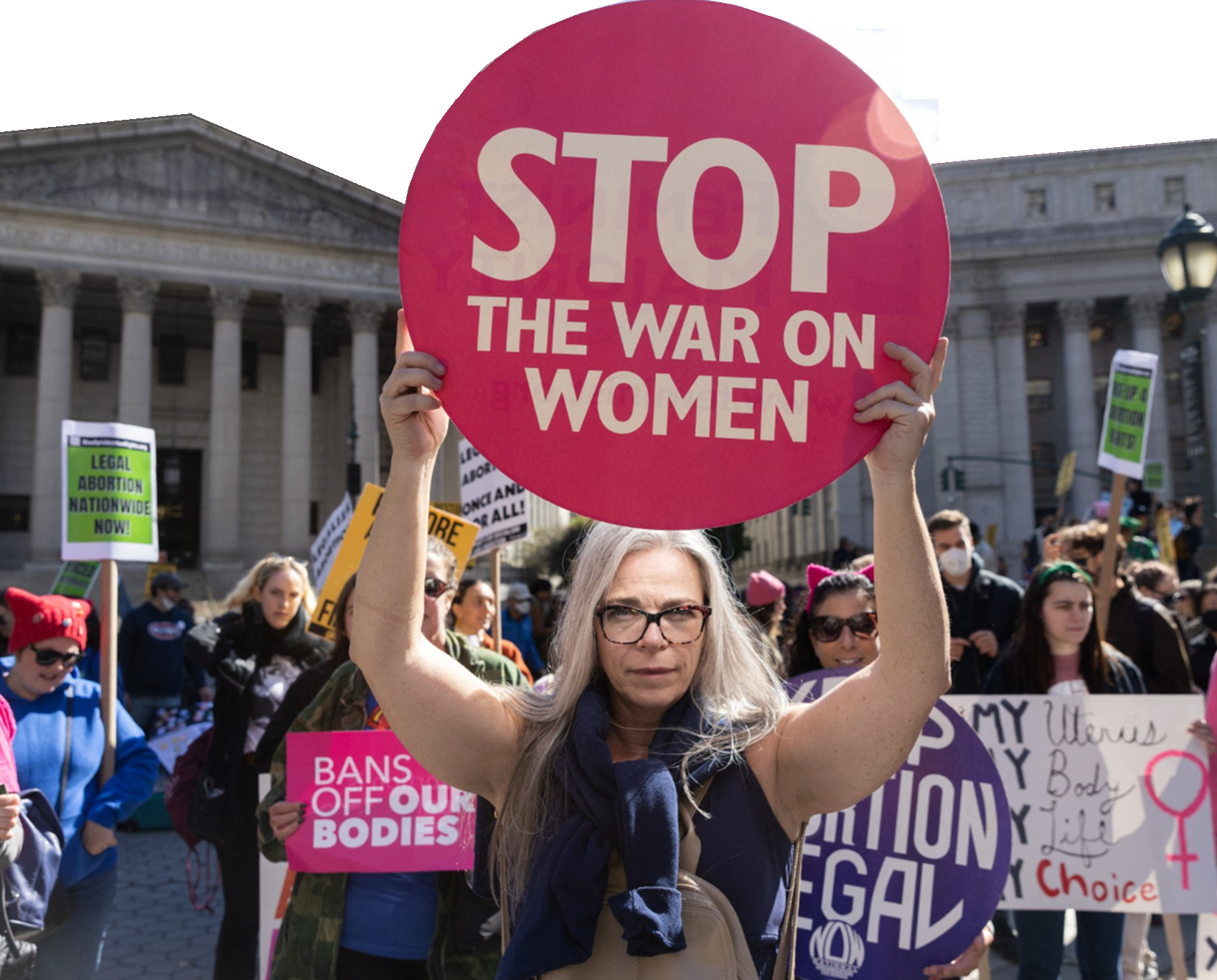
Overturning Roe v Wade:
Huge Blow to Women’s Rights
The June 2022 decision by the US Supreme Court which
overturns the 50-year-old Roe v Wade judgement
guaranteeing access to abortion across the United
States, was described by the UN human rights chief as “a
huge blow to women’s human rights and gender equality.”
The widely anticipated Supreme Court decision, by six
votes to three, was made in the specific case of Dobbs v
Jackson Women’s Health, and Michelle Bachelet said in a
statement that it represents a “major setback” for
sexual and reproductive health across the US.
The historic decision returns all questions of legality
and access to abortion, to the individual states.
Reacting earlier to the US ruling, the UN sexual and
reproductive health agency (UNFPA) and the World Health
Organization (WHO) noted that a staggering 45 per cent
of all abortions around the world, are unsafe, making
the procedure a leading cause of maternal death. The
agencies said it was inevitable that more women will
die, as restrictions by national or regional governments
increase.
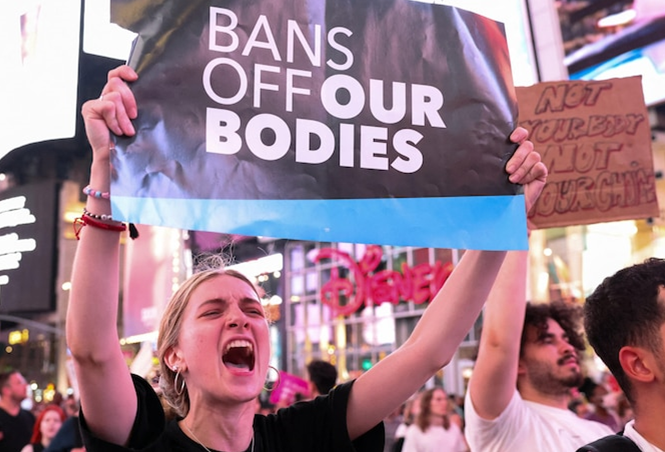
Put
a Woman in Charge by Keb Mo & Rosanne Cash
It's Time for LGBTQ Women to Claim Our Seats at the
Table
How Ramona Quimby Taught a Generation of Girls to
Embrace Brashness
Info: Lesbian Issues
Message for Young Girls
Gal Pals and Compulsory
Heterosexuality
GoMag: Cultural Roadmap for
City Girls Everywhere
Wikipedia: Lesbian Feminism
Lesbians in the 1960s Feminist Movement
Women With a Perfect Response for Why They Don't Have
Kids
Authentic, Accurate, Hilarious:
Illustrations that Capture What it's Like Being a Woman
Jennifer Nettles: I Can Do Hard Things
Let's Talk Comp-Het
Restrictions, ineffective
“Whether abortion is legal or not, it happens all too
often. Data show that restricting access to abortion
does not prevent people from seeking abortion, it simply
makes it more deadly”, UNFPA highlighted.
According to the agencies’ 2022 State of World
Population report, nearly half of all pregnancies
worldwide are unintended, and over 60 per cent of these
may end in abortion.
UNFPA said that it feared that more unsafe abortions
will occur around the world if access becomes more
restricted. “Decisions reversing progress gained have a
wider impact on the rights and choices of women and
adolescents everywhere”, the agency emphasized.
WHO echoed the message on their official Twitter
account, reminding that removing barriers to abortion
“protects women’s lives, health and human rights”.

100 Lesbian Things To Do
Before You Die
National Organization for
Women
Women’s Issues Websites
HRC: How the Supreme Court’s Decision to Overturn Roe v.
Wade Affects the LGBTQ Community
My Out Spirit: Women’s Issues
Barefoot and Pregnant
HuffPost: End of the Pussy-Grabbing President
Authentic, Accurate, Hilarious:
Illustrations that Capture What it's Like Being a Woman
Advocate: Salute to Amazing LGBTQ Women of 2021
Artist Creates Comics That
Challenge Double Standards in
Gender
Queer Black Feminist Writer Bell Hooks Dies at 69
You Don't Own Me
by Lesley Gore in 1989
An attack on women’s autonomy
Ms. Bachelet further reminded that access to safe, legal
and effective abortion is firmly rooted in international
human right law and is at the core of women and girls’
autonomy, and ability to make their own choices about
their bodies and lives, free of discrimination, violence
and coercion.
“This decision strips such autonomy from millions of
women in the US, in particular those with low incomes
and those belonging to racial and ethnic minorities, to
the detriment of their fundamental rights”, she warned.
The rights chief highlighted that the decision came
after more than 50 countries with previously restrictive
laws have liberalized their abortion legislation over
the past 25 years. “With today’s ruling, the US is
regrettably moving away from this progressive trend”,
she said.
Meanwhile, the UN agency, UN Women, cautioned in another
statement that the ability of women to control what
happens to their own bodies, is also associated with the
roles women are able to play in society, whether as a
member of the family, the workforce, or government.
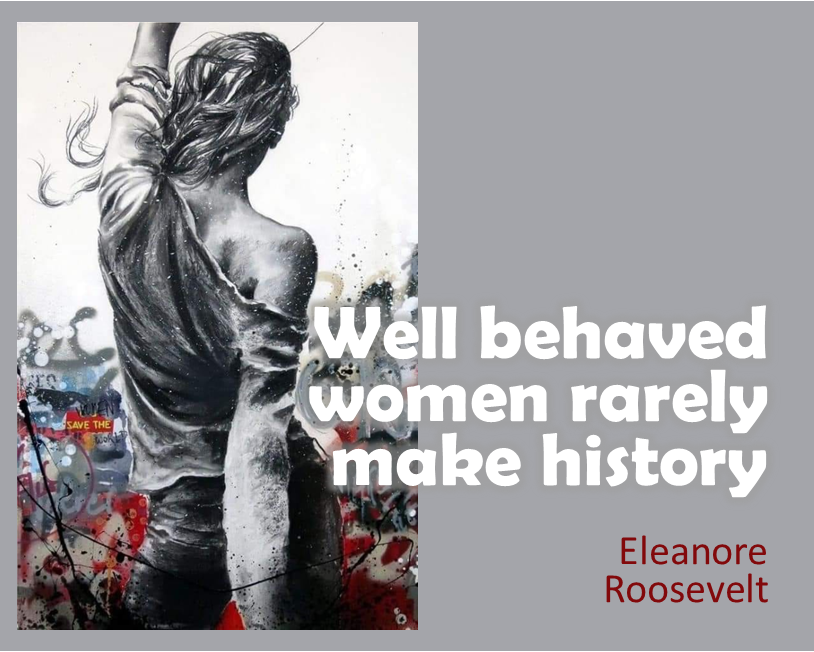
Countries’ responsibilities
The 1994 Programme of
Action of the International Conference on Population and
Development (ICPD), signed by 179 countries including
the United States, recognized how deadly unsafe
abortions are, and urged all countries to provide
post-abortion care to save lives, irrespective of the
legal status of abortion.
The document (resulting from a high-level meeting in
Cairo, Egypt) also highlighted that all people should be
able to access quality information about their
reproductive health and contraceptives. UNFPA, as
the custodian of the Programme of Action, advocates for
the right of all couples and individuals to decide
freely and responsibly the number, spacing and timing of
their children and to have the information and means to
do so.
The agency also warned that if unsafe abortions
continue, Sustainable Development Goal 3, related to
maternal health, to which all UN Member States have
committed, will be at risk of not being met.
[Source: United Nations, June 2022]
Billie Eilish: What Was I Made For?
Flashmob: Victoria's Secret
Gloria Steinem: Feminist Icon
Tami Neilson - Stay Outta My Business
Lily Tomlin: Artist and Activist
Put a Woman in Charge by Keb Mo & Rosanne
Cash
Queer Suffragists Who Fought for Women’s Right to Vote
Women Who Changed the Course of LGBTQ History
American Girl (Alternate Version) by Tom Petty
It's Time for LGBTQ Women to Claim Our Seats at the
Table
Highwomen: Redesigning Women
The Man by Taylor Swift
Sisters Are Doin' for Themselves: Annie Lennox and
Aretha Franklin
Lesbian Activist Fighting for All women's Rights
These Boots Are Made for Walking
Essay by Adrienne Rich: Compulsory Heterosexuality &
Lesbian Existence
Barefoot and Pregnant
Supreme Court Drafts Opinion to
Overturn Roe v Wade
“We hold that Roe and Casey must be overruled.”
-Justice Samuel Alito
The US Supreme Court has voted to strike down the landmark
Roe v. Wade decision, according to an initial draft
majority opinion written by Justice Samuel Alito.
The draft opinion is
a full-throated, unflinching repudiation of the 1973
decision which guaranteed federal constitutional
protections of abortion rights (Roe v. Wade) and the
subsequent 1992 decision (Planned Parenthood v. Casey)
that largely maintained the right.
“Roe was
egregiously wrong from the start,” Alito writes.
“We hold that Roe and Casey must be overruled,” he
writes in the document, labeled as the “Opinion of the
Court.”
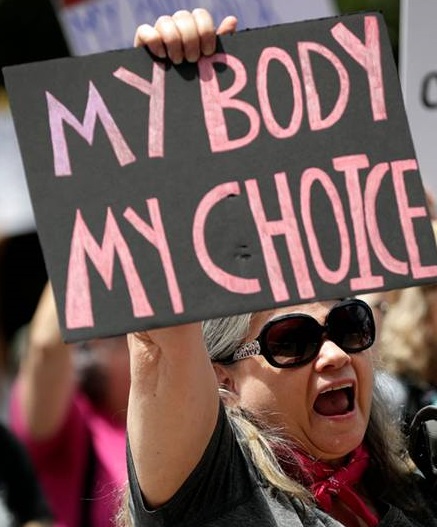
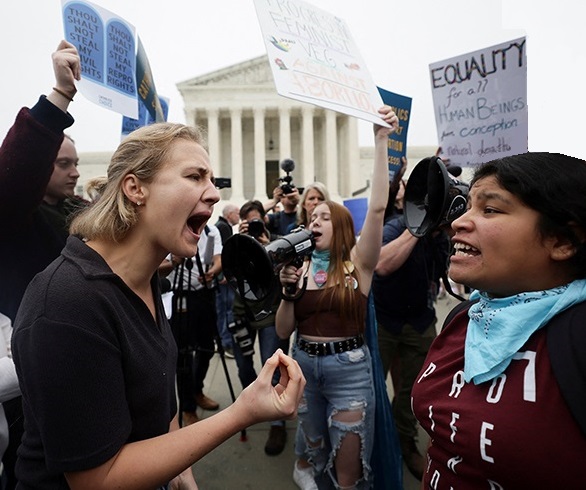
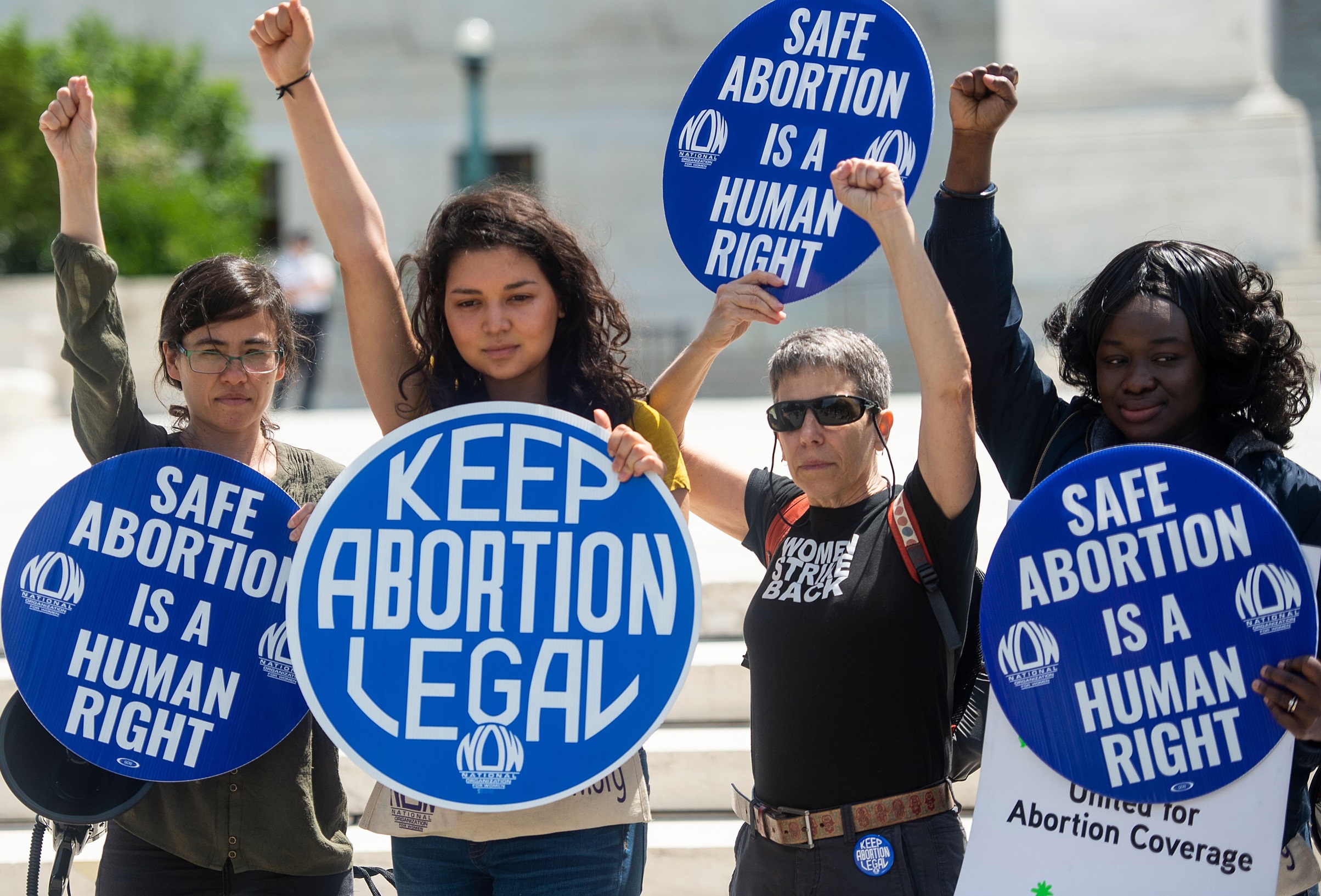
“Roe was egregiously wrong from the start. Its
reasoning was exceptionally weak, and the decision has
had damaging consequences. And far from bringing about a
national settlement of the abortion issue, Roe and Casey
have enflamed debate and deepened division.”
-Justice Samuel Alito
The other Republican-appointed justices (Clarence
Thomas, Neil Gorsuch, Brett Kavanaugh, Amy Coney
Barrett) had voted with Alito in the conference held
among the justices after hearing oral arguments in
December, and that line-up remains unchanged as of this
week.
The three Democratic-appointed justices (Stephen Breyer,
Sonia Sotomayor, Elena Kagan) are working on one or more
dissents, according to the person. How Chief Justice
John Roberts will ultimately vote, and whether he will
join an already written opinion or draft his own, is
unclear.
[Source: Josh
Gerstein & Alexander Ward, Politico, May 2022]
Supreme Court Draft Opinion Would Overturn Roe v. Wade
Amanda Gorman: Reasons to Stand Up for Roe v Wade
Supreme Court has Voted to Overturn Abortion Rights,
Draft Opinion Shows
Ocasio-Cortez: Supreme Court Isn’t Just Coming for Abortion
Women With a Perfect Response for Why They Don't Have
Kids
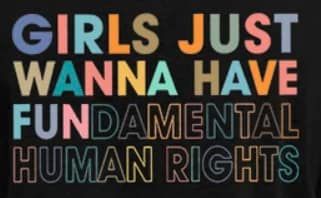
Poll Finds
Majority of Americans say Supreme Court Should Uphold
Roe V Wade
A majority
of Americans say the Supreme Court should uphold Roe v.
Wade, the landmark ruling that established a
constitutional right to abortion, a Washington Post/ABC
News poll conducted last week finds. With the
Supreme Court poised to overturn the right to abortion,
the survey finds that 54 percent of Americans think the
1973 Roe decision should be upheld while 28 percent
believe it should be overturned — a roughly 2-to-1
margin.
By about a 2-to-1 margin, Americans say Roe v. Wade
should be upheld rather than overturned. The poll
posed the question: As you may know, abortion law in the
United States is based on the 1973 U.S. Supreme Court
ruling known as Roe v. Wade. Do you think the Supreme
Court should uphold Roe v. Wade or overturn it?
Uphold
54%
Overturn 28%
No Opinion 18%
The Post-ABC poll finds that 57 percent of Americans
oppose their state making abortions legal only in the
first 15 weeks of pregnancy, while a similar majority,
58 percent, opposes limiting abortion to the first six
weeks of pregnancy.
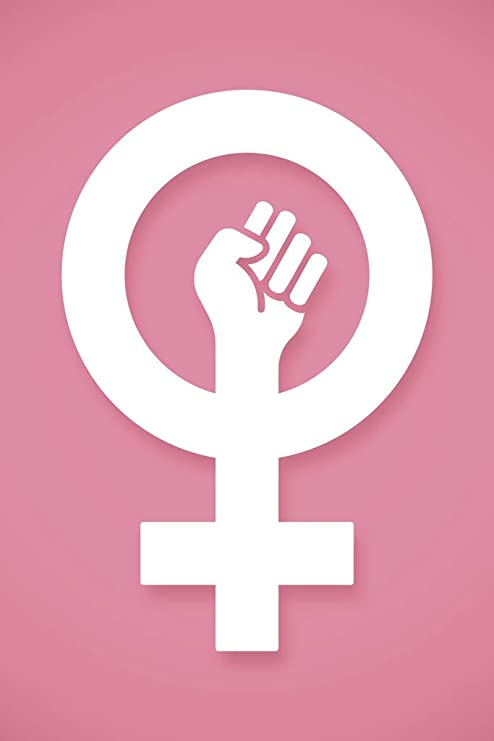
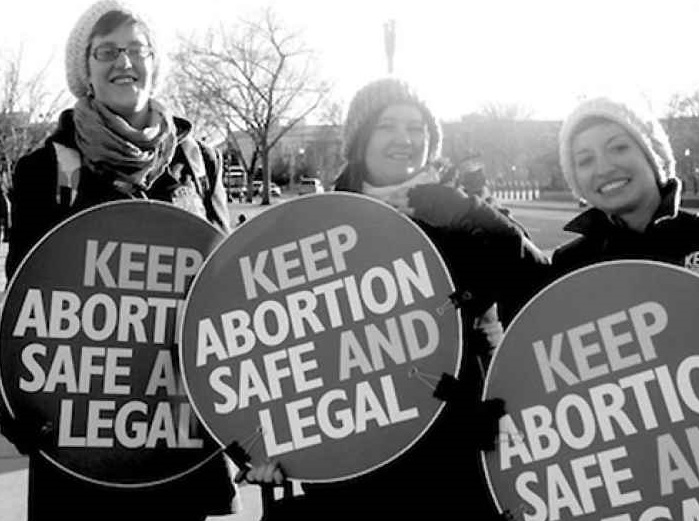 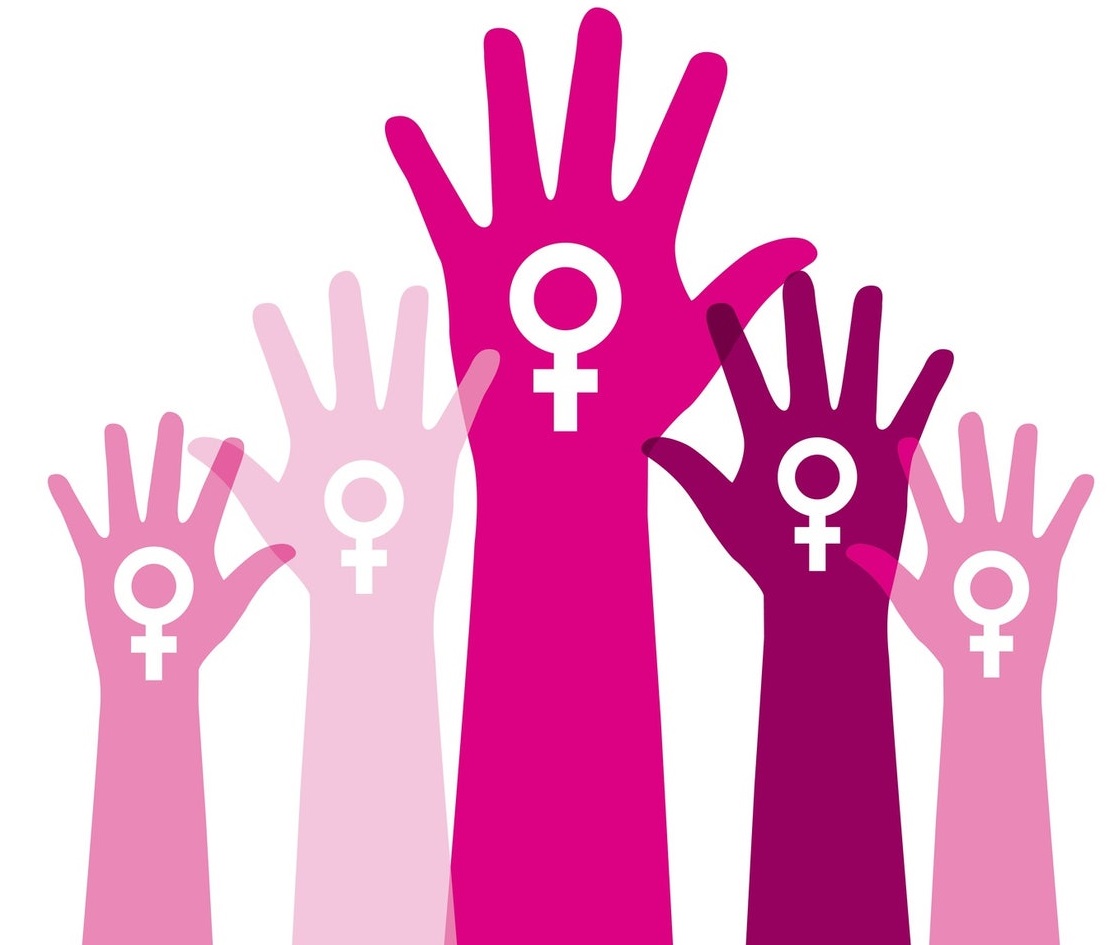
Supreme Court Draft Opinion Would Overturn Roe v. Wade
Supreme Court has Voted to Overturn Abortion Rights,
Draft Opinion Shows
Ocasio-Cortez: Supreme Court Isn’t Just Coming for
Abortion
Women With a Perfect Response for Why They Don't Have
Kids
Should the Supreme Court strike down Roe, some states
could pass laws restricting or protecting access to
abortion. The poll shows that one-third of Americans, 33
percent, say access to abortion in their state should be
made easier, while slightly more, 36 percent, say
abortion access should be left as is for now. A quarter,
25 percent, say it should be harder to access abortion.
More broadly, the Washington Post/ABC News poll finds 58
percent of Americans say abortion should be legal in
“most cases” or “all cases,” while 37 percent say it
should be illegal in “most cases” or “all cases.”
Public opinion on the legality of abortion has not
shifted significantly since 2019, when 60 percent of
Americans said it should be legal in all or most cases.
Support today is slightly above the average of 55
percent saying it should be legal in all or most cases
over 33 national Post-ABC polls dating back to 1995.
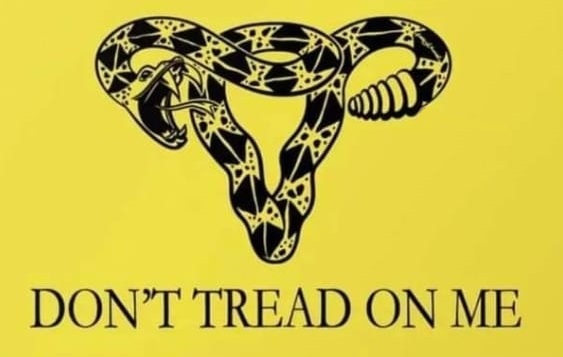
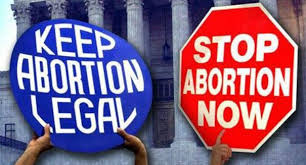
Americans overwhelmingly support permitting abortion in
certain cases. Eighty-two percent say abortion should be
legal when the woman’s physical health is endangered,
and 79 percent say abortion should be legal when the
pregnancy was caused by rape or incest. Meanwhile, 67
percent say abortion should be legal when there is
evidence of serious birth defects.
Americans are more evenly divided on abortion in
instances when the person who is pregnant cannot afford
to have a child, with 48 percent saying it should be
legal and 45 percent saying it should be illegal.
Despite varying opinions on when abortions should be
allowed or not, 70 percent of Americans say the decision
of whether a woman can have an abortion should be made
by the woman and her doctor; 24 percent say it should be
regulated by law. The majority saying the decision
should be left to a woman and her doctor declined
slightly from 75 percent in a November poll.
Views on Roe in the new poll range heavily based on
partisan affiliation, with 75 percent of Democrats
saying the court should uphold the ruling, compared with
53 percent of independents and 36 percent of
Republicans. A plurality of Republicans, 44 percent, say
the court should overturn the ruling, while 19 percent
offer no opinion.
[Source: Washington Post/ABC News, May 2022]
Advocate Magazine: Women of the Year
Trump's List of Nasty Women
Billie Eilish: What Was I Made For?
Gloria Steinem: Why You
Should Be a Feminist
Barefoot and Pregnant
Highwomen: Redesigning Women
Authentic, Accurate, Hilarious:
Illustrations that Capture What it's Like Being a Woman
Meredith Brooks: Bitch
Throw Like a Girl
Indigo Girls: Go (March for Our Lives)
Queer Suffragists Who Fought for Women’s Right to Vote
Four Non Blondes: What's Up
Message for Young Girls
Artist Creates Comics That Challenge Double Standards in Gender
How Toxic Masculinity Harms Women
Jennifer Nettles: I Can Do Hard Things
Bell Hooks:
Queer Black Feminist Writer Passes Away
Esteemed queer Black feminist author bell hooks has died
at age 69. She died in Dec 2021 at her home in Berea,
KY. She had been ill, and friends and family were with
her.
Her dozens of books included essays, poetry, and works
for children, and she dealt with issues of
intersectionality long before many others. These issues
were at the core of her 1981 book
Ain’t I a Woman: Black Women and Feminism,
which examined the impact of sexism on Black women
throughout history as well as racism within the feminist
movement.
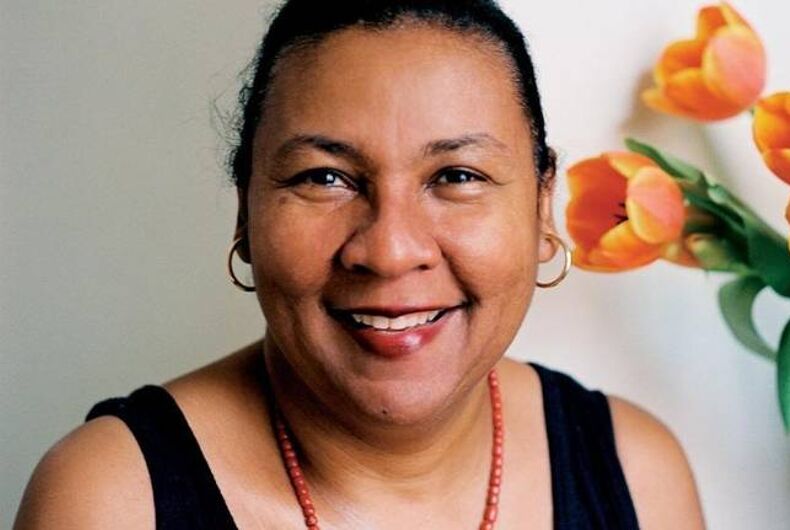
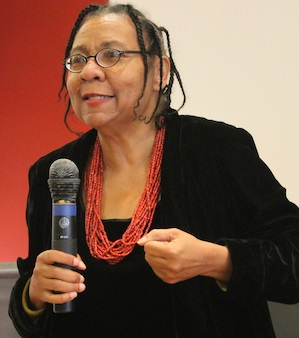
Bell
Hooks: Biographical Notes
Queer Black Feminist Writer Bell Hooks
Dies at 69
Bell Hooks: Queer Black Feminist Writer
Passes Away
Trailblazing Feminist Author, Critic and
Activist Bell Hooks Dies at 69
Bell Hooks Institute
Famed Feminist Writer, Bell Hooks, Dies
at Age 69
All About Love: New Visions,
first published in 2000, deals with how love can heal a
polarized society and asserts that love cannot be
separated from justice. Amid the protests against police
brutality and systemic racism last year, it “became
sought-after reading,” according to the Bell Hooks
Center at Berea College.
She was one of Time’s 100 Women of the Year in 2020, and
the magazine called her a “rare rock star of a public
intellectual.” Utne Reader in 1995 listed her among its
100 Visionaries Who Can Change Your Life.
She once described her identity as “queer-pas-gay.” She
was critical, however, of those who viewed racism and
homophobia as the same. “White people, gay and straight,
could show greater understanding of the impact of racial
oppression on people of color by not attempting to make
these oppressions synonymous, but rather by showing the
ways they are linked and yet differ,” she wrote in
1999’s
Talking Back: Thinking Feminist, Thinking Black.
She was born in 1952 in Hopkinsville, KY, as Gloria Jean
Watkins. Her pen name, "bell hooks," was her
great-grandmother’s name, which she styled in all
lowercase letters as a way to place importance on
“substance of books, not who I am,” she said.
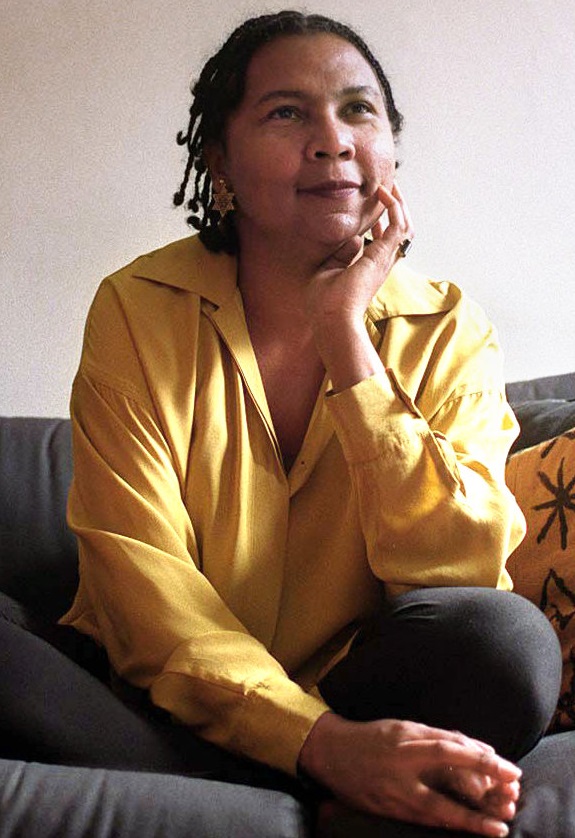
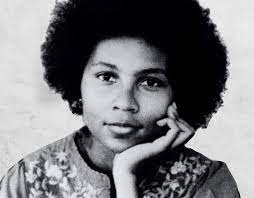
Growing up in Kentucky, she attended segregated schools
that did not teach about the impact of racism. She went
on to study at Stanford University, then earned a
master’s degree at the University of Wisconsin and a
doctorate at the University of California, Santa Cruz.
She taught at Stanford, Yale University, and the City
College of New York, then joined Berea’s faculty in
2004. Berea was founded in the 1850s by abolitionists
who were dedicated to equal education for people of all
races and genders.
The Bell Hooks Center at Berea hosts speakers on
feminism and social justice, and seeks “to chart a new
chapter in Berea College’s great, historical commitments
— one that cultivates radical coalition between women,
LGBTQ students, and students of color,” according to its
website. The college also houses Hooks’s papers and
artifacts. “Berea College is deeply saddened about the
death of bell hooks, Distinguished Professor in
Residence in Appalachian Studies, prodigious author,
public intellectual and one of the country’s foremost
feminist scholars,” said a statement from the school.
“I want my work to be about healing,” Hooks once said.
“I am a fortunate writer because every day of my life
practically I get a letter, a phone call from someone
who tells me how my work has transformed their life.”
[Source:
Trudy Ring, Advocate, December 2021]
Lesley Gore: You Don't Own Me
Lily Tomlin: Artist and Activist
Women Who Changed the Course of LGBTQ
History
Wikipedia: Lesbian Feminism
The Man by Taylor Swift
Tami Neilson - Stay Outta My Business
Barefoot and Pregnant
It's Time for LGBTQ Women to Claim Our Seats at the
Table
How Toxic Masculinity Harms Women
Jennifer Nettles: I Can Do Hard Things
Artist Creates Comics That Challenge
Double Standards in Gender
Women React to Trump’s
Sexism
Highwomen: Redesigning Women
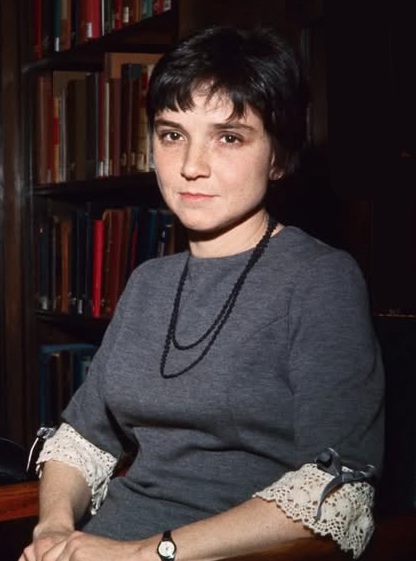
Adrienne Rich
Adrienne Rich started out
writing poems that pleased her professors...
She ended up writing ones
that frightened governments...
In the 1950s, Adrienne Rich was the model of literary
promise, young, brilliant, published early, married to a
Harvard economist, mother of three sons. On paper,
perfect. But every poem she wrote in those years felt
like a mask. She called it “writing as a dutiful
daughter.”
Then something cracked. The Civil Rights movement, the
Vietnam War, the feminist wave — she watched the world
burning and her silence felt like complicity. She began
to write what she wasn’t supposed to say: about power,
patriarchy, motherhood, desire, and the cost of being a
woman taught to disappear.
Her marriage crumbled. Her friends recoiled. Critics
accused her of betrayal. She kept going. “When a woman
tells the truth,” she said, “she is creating the
possibility for more truth around her.”
By the 1970s, her poems read like manifestos. She
refused to separate art from activism, or intellect from
intimacy. She came out as gay, began teaching women’s
studies, and used her pen like a scalpel — dissecting
how language itself could be a weapon of control.
In 1997, when the US government offered her the National
Medal of Arts, she turned it down. “Art means nothing,”
she wrote to the White House, “if it simply decorates
the dinner table of power which holds it hostage.”
Adrienne Rich’s story isn’t about poetry. It’s about
reclamation of language, of body, of truth. She didn’t
want to be remembered for writing beautifully. She
wanted to be remembered for writing honestly, no matter
who it made uncomfortable. And she was.
How will Roe v. Wade Reversal Affect LGBTQ Rights?
Women Who Changed the Course of LGBTQ
History
Kamala Harris Blasts SCOTUS, Says Marriage Equality Is
on the Line
Provincetown Reacts to SCOTUS’s Disgraceful Overturning
of Roe v. Wade
Olivia Rodrigo and Lily Allen: Fuck You
HRC: How the Supreme Court’s Decision to Overturn Roe v.
Wade Affects the LGBTQ Community
Thomas Wants Supreme Court to Overturn Rulings that
Legalized Contraception and Same-Sex Marriage
Clarence Thomas Ready to Strike Down Marriage Equality
Following Dobbs
Barefoot and
Pregnant
Tami Neilson -
Stay Outta My
Business
Message for
Young Girls
The Man by
Taylor Swift

Camille Paglia
Camille Paglia has spent
her career saying what many fear to say...
and paying the
price for saying it...
Born in 1947 to Italian
immigrant parents, she rose to prominence as a cultural
critic, art historian, and provocateur whose essays
carved through both feminist orthodoxy and patriarchal
tradition. Her voice was sharp, unapologetic, and
impossible to categorize.
Paglia attended Yale
University as a graduate student, and she claims to have
been the only open lesbian at Yale Graduate School from
1968 to 1972.
Her famous line, “A woman who is a real intellectual
threat to men will always be called crazy,” distills
decades of experience into one brutal truth. For Paglia,
women who disrupt intellectual comfort zones are rarely
dismissed for their ideas; they are pathologized.
“Crazy” becomes the
shield men raise when intelligence meets defiance.
Her breakthrough work, Sexual Personae (1990), rewrote
the story of Western art and sexuality through a
fearless, sometimes incendiary lens. Critics were
divided, but readers recognized something rare — a woman
refusing to soften her intellect to be palatable.
Paglia challenged the
notion that feminism must follow a single script. She
defended free thought, creative chaos, and the right to
offend — believing that civilization depends on women
who think dangerously.
She has often been controversial, but her impact is
undeniable. She opened space for women scholars to claim
intellectual aggression without apology — to occupy the
arena of debate rather than be its subject.
Camille Paglia’s quote remains a reminder to every woman
who dares to speak too sharply or think too deeply: if
they call you crazy, you’re probably doing something
right.
Billie Eilish: What Was I Made For?
Flashmob: Victoria's Secret
Gloria Steinem: Feminist Icon
Tami Neilson - Stay Outta My Business
Put a Woman in Charge by Keb Mo & Rosanne
Cash
Queer Suffragists Who Fought for Women’s Right to Vote
Women Who Changed the Course of LGBTQ History
American Girl (Alternate Version) by Tom Petty
It's Time for LGBTQ Women to Claim Our Seats at the
Table
Highwomen: Redesigning Women
The Man by Taylor Swift
Sisters Are Doin' for Themselves: Annie Lennox and
Aretha Franklin
Lesbian Activist Fighting for All women's Rights
These Boots Are Made for Walking
Essay by Adrienne Rich: Compulsory Heterosexuality &
Lesbian Existence
Barefoot and Pregnant

Justice Ruth Bader Ginsburg Dies
Supreme Court Justice
Ruth Bader Ginsburg, a champion of civil rights for
LGBTQ people, women, and many others, has died at age
87, on September 18, 2020 at her home in Washington DC.
Appointed by President Bill Clinton in 1993, she was the
second woman to serve on the high court, after Sandra
Day O’Connor.
"Our
nation has lost a justice of historic stature," Chief
Justice John Roberts said. "We at the Supreme Court have
lost a cherished colleague. Today we mourn but with
confidence that future generations will remember Ruth
Bader Ginsburg as we knew her, a tireless and resolute
champion of justice."
Architect of the legal fight for women's rights in the
1970s, Ginsburg subsequently served 27 years on the
nation's highest court, becoming its most prominent
member. Her death will inevitably set in motion what
promises to be a nasty and tumultuous political battle
over who will succeed her, and it thrusts the Supreme
Court vacancy into the spotlight of the presidential
campaign.
Advocate Magazine: Women of the Year
Ruth Bader Ginsburg: Woman of the Year
CNN: Ruth Bader Ginsburg Dies at 87
NPR: Champion of Gender Equality Ruth Bader Ginsburg
Dies
Slate: What Justice Ginsburg Would Want America to Do
Now
ABC News: Supreme Court Powerhouse Ginsburg Dies at 87
NPR: Vigil for Ruth Bader Ginsburg
It's
Time for LGBTQ Women to Claim Our Seats at the Table
About Ruth Bader
Ginsburg
Supreme
Court Justice Ruth Bader Ginsburg Tops the "Women of the
Year" list compiled by Advocate Magazine. In reality,
Ginsburg is a woman of the year every year, but this
year she joins a long line of other trailblazers for
Advocate's annual women's issue. Ginsburg has a long
history of fighting for the rights of women, LGBTQ
people, people of color, and other marginalized groups.
As a lawyer, she was arguing against sex discrimination
back in the 1970s, when what was then called Women’s
Liberation had far from universal support. One of her
most significant early cases was Moritz v. Commissioner
of Internal Revenue Service, which showed that gender
equality benefited men as well as women. In the case,
dramatized in the 2018 film On the Basis of Sex,
Ginsburg successfully argued that a man shouldn’t be
denied a tax deduction for what he paid his mother’s
caregiver, when a woman in the same situation would
receive the deduction.
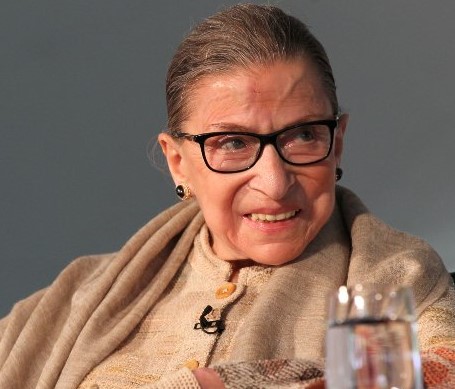
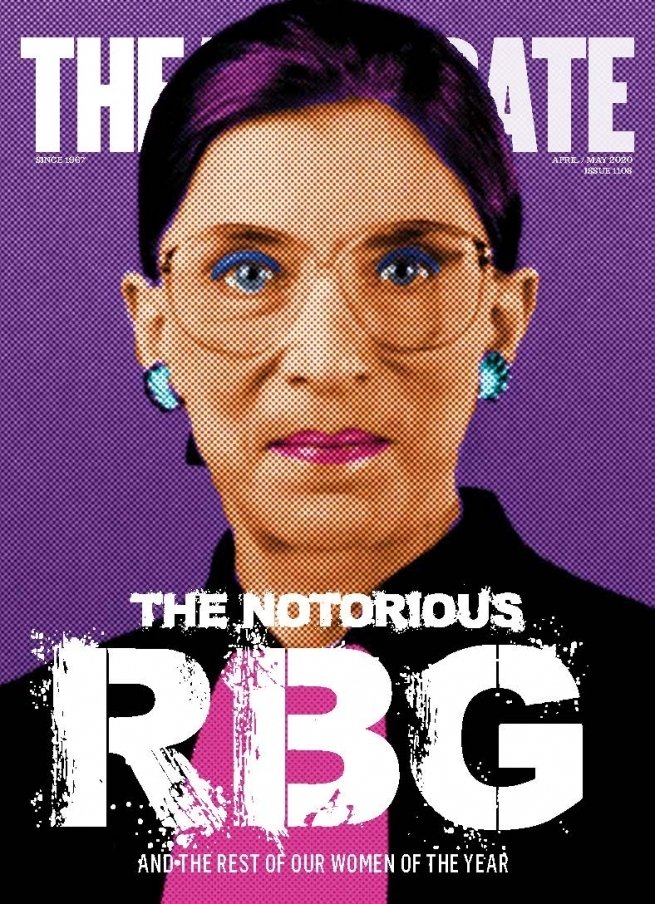

Ginsburg, who graduated first in her class at Columbia
Law School in 1959, taught law at Rutgers University,
where she started a class on women and the law, and then
Columbia before President Jimmy Carter appointed her to
the US Court of Appeals for the District of Columbia in
1980. Then President Bill Clinton appointed her to the
Supreme Court in 1993, making her only the second woman
to serve on the high court. Three years later, she
joined the court’s majority in its first pro-LGBTQ
ruling, Romer v. Evans, which struck down a
discriminatory state constitutional amendment in
Colorado.
Ginsburg went on to be in the majority in other
pro-equality rulings, and she dissented eloquently from
the court’s 2018 ruling in favor of a Colorado baker who
refused to create a wedding cake for a same-sex couple
because, according to the baker, it would violate his
rights of freedom of speech and religion. While the
majority found that Colorado officials, when they found
baker Jack Phillips had run afoul of the state’s
antidiscrimination law, did not give his religious
beliefs appropriate consideration, Ginsburg wrote, “What
matters is that Phillips would not provide a good or
service to a same-sex couple that he would provide to a
heterosexual couple.” She further noted, “Phillips
declined to make a cake he found offensive where the
offensiveness of the product was determined solely by
the identity of the customer requesting it.”
That was in keeping with Ginsburg’s record. In 2013, she
became the first Supreme Court justice to officiate a
same-sex couple’s wedding. “I think it will be one more
statement that people who love each other and want to
live together should be able to enjoy the blessings and
the strife in the marriage relationship,” she told The
Washington Post at the time. She has gone on to
officiate weddings for other same-sex couples.
The Notorious RBG remains a fierce advocate for
equality. Long may she rule.
[Source: Trudy Ring, Advocate Magazine, May 2020]
Advocate Magazine: Women of the Year
Ruth Bader Ginsburg: Woman of the Year
CNN: Ruth Bader Ginsburg Dies at 87
Message for Young Girls
NPR: Champion of Gender Equality Ruth Bader Ginsburg
Dies
Slate: What Justice Ginsburg Would Want America to Do
Now
ABC News: Supreme Court Powerhouse Ginsburg Dies at 87
NPR: Vigil for Ruth Bader Ginsburg
Lily Tomlin: Artist and Activist
It's
Time for LGBTQ Women to Claim Our Seats at the Table
Highwomen: Redesigning Women
What Was It
Like?
They asked
me to tell you what it was like to be twenty and
pregnant in 1950 and when you tell your boyfriend you’re
pregnant, he tells you about a friend of his in the army
whose girl told him she was pregnant, so he got all his
buddies to come and say, “We all fucked her, so who
knows who the father is?” And he laughs at the good
joke….
What was it like, if you were planning to go to graduate
school and get a degree and earn a living so you could
support yourself and do the work you loved—what it was
like to be a senior at Radcliffe and pregnant and if you
bore this child, this child which the law demanded you
bear and would then call “unlawful,” “illegitimate,”
this child whose father denied it … What was it like?
...
It’s like this: if I had dropped out of college, thrown
away my education, depended on my parents … if I had
done all that, which is what the anti-abortion people
want me to have done, I would have borne a child for
them, … the authorities, the theorists, the
fundamentalists; I would have born a child for them,
their child.
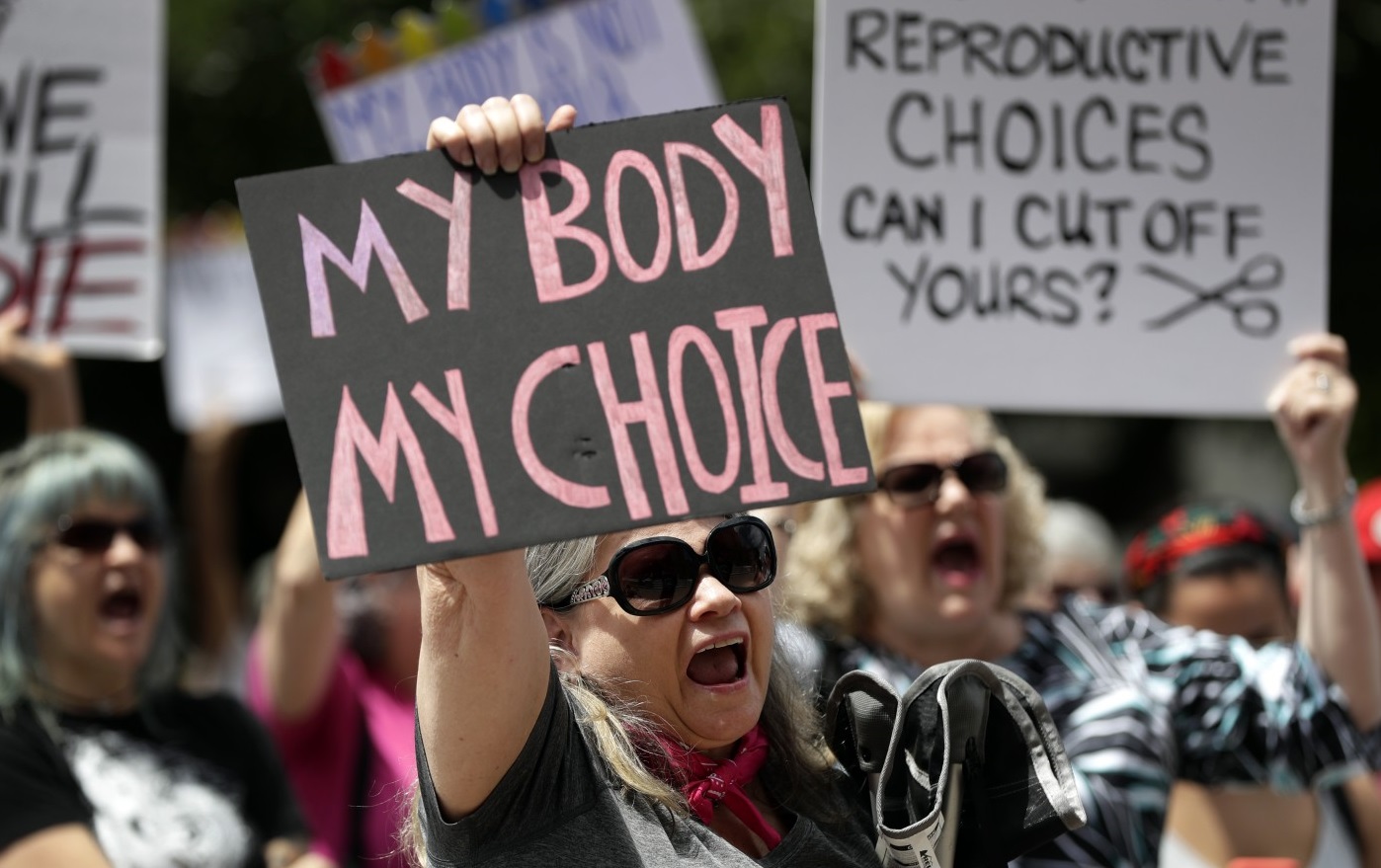
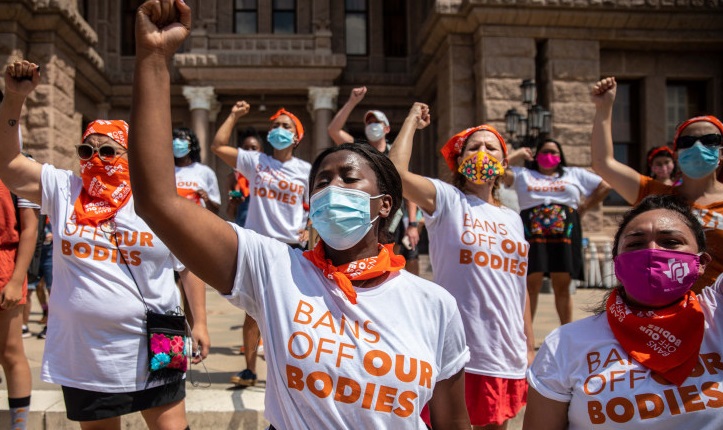
Queer Suffragists Who Fought for Women’s Right to Vote
Warrior Women are the Role Models We
Need
Feminista Jones: Black Feminism
Info: Lesbian Issues
Gloria Steinem: Why You
Should Be a Feminist
Tricia Yearwood:
Every Girl in This Town
Ruth Bader Ginsburg: Woman of the Year
My Out Spirit: Women’s Issues
The Man by Taylor Swift
But I would not have born my own first child, or second
child, or third child. My children.
The life of that fetus would have prevented, would have
aborted, three other fetuses … the three wanted
children, the three I had with my husband—whom, if I had
not aborted the unwanted one, I would never have met … I
would have been an “unwed mother” of a three-year-old in
California, without work, with half an education, living
off her parents….
But it is the children I have to come back to, my
children Elisabeth, Caroline, Theodore, my joy, my
pride, my loves. If I had not broken the law and aborted
that life nobody wanted, they would have been aborted by
a cruel, bigoted, and senseless law. They would never
have been born. This thought I cannot bear.
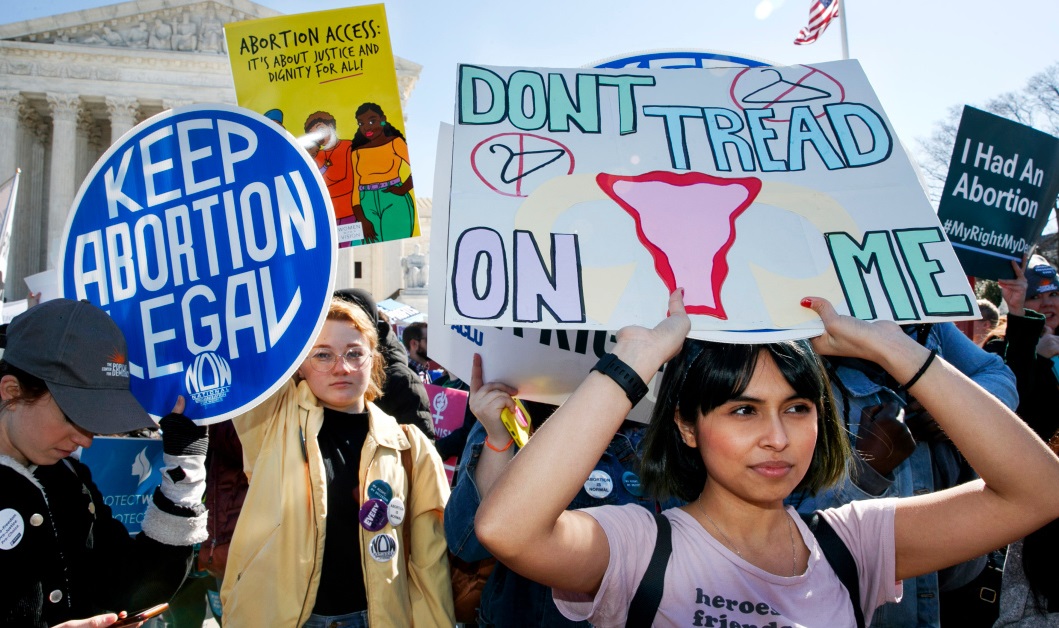
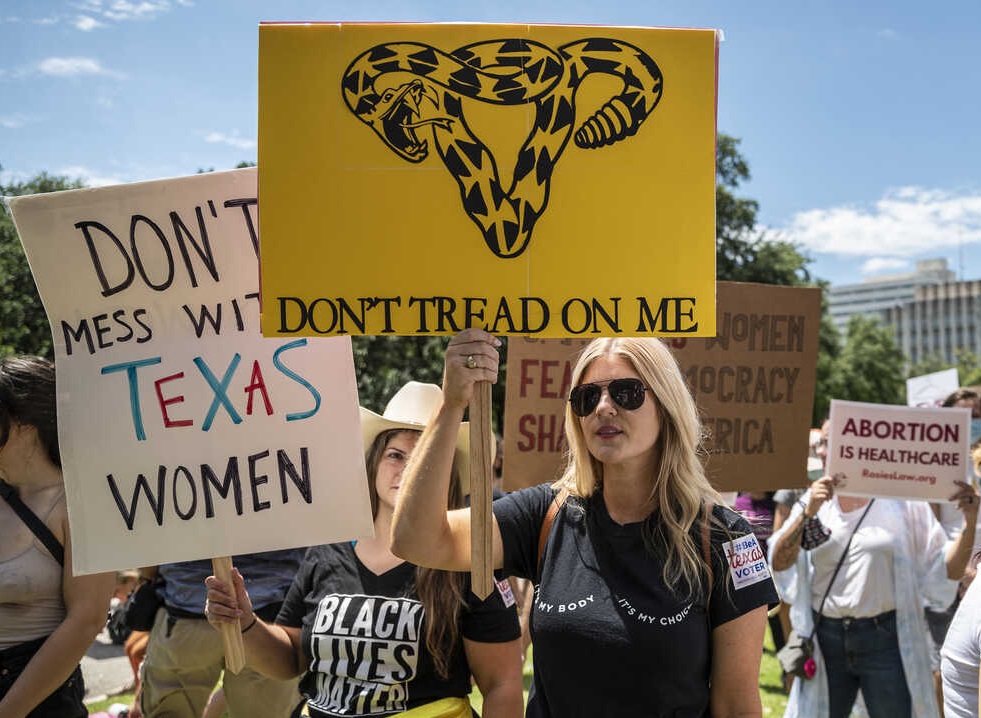
What was it like, in the Dark Ages when abortion was a
crime, for the girl whose dad couldn’t borrow cash, as
my dad could? What was it like for the girl who couldn’t
even tell her dad, because he would go crazy with shame
and rage? Who couldn’t tell her mother? Who had to go
alone to that filthy room and put herself body and soul
into the hands of a professional criminal? – because
that is what every doctor who did an abortion was,
whether he was an extortionist or an idealist.
You know what it was like for her. You know and I know;
that is why we are here. We are not going back to the
Dark Ages. We are not going to let anybody in this
country have that kind of power over any girl or woman.
There are great powers, outside the government and in
it, trying to legislate the return of darkness. We are
not great powers. But we are the light. Nobody can put
us out. May all of you shine very bright and steady,
today and always.
[Source:
Ursula K. Le Guin]
NPR: What The Texas Abortion Ban Does and What It Means
For Other States
CNN: What is the Texas Abortion Ban and Why Does it
Matter?
Planned Parenthood: Texas Abortion Ban is Vigilante
Justice
Politico: Texas Abortion Ban is Allowed to Take Effect
Women With a Perfect Response for Why They Don't Have
Kids
Jen Psaki vs. Male Conservative Journalist on Abortion
Issue
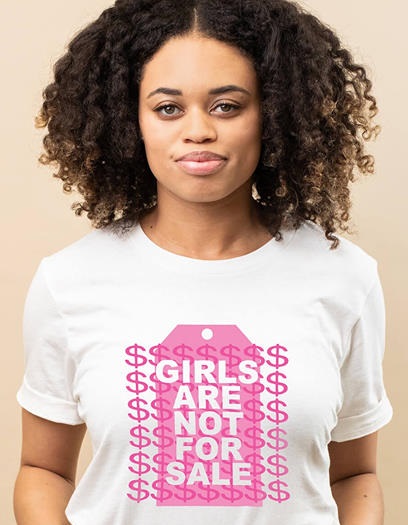

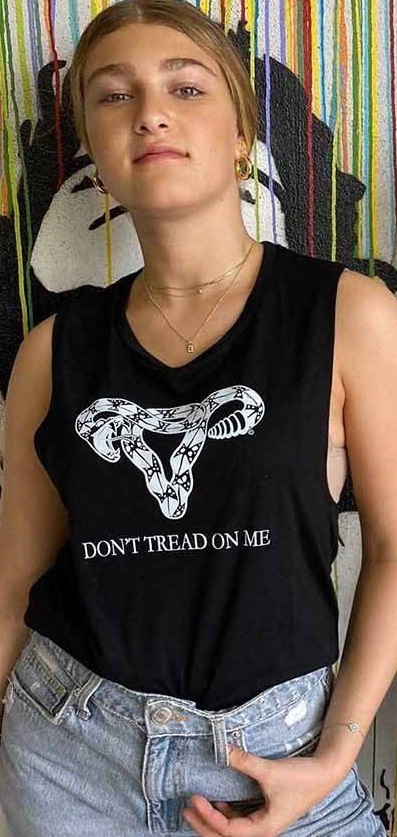
Lesbians in the
1960s Feminist Movement
When Betty
Friedan started the National Organization for Women, the
last thing she wanted male America to think of was butch
lesbians. The problem was, they were women too.
In 1969, political activism in America was reaching a
fever pitch. The convulsions of 1968 (within the US and
abroad) were still reverberating, and there was a sense
among many young people that the stakes had never been
higher. The continued calamity of the Vietnam War was
unfolding. Racial tension was explosive. Social
movements were coalescing, and using novel tactics to
get what they wanted. Almost all were also grappling
with what we now call identity politics. Tensions
between assimilationism and the drive to pursue a more
radical agenda threatened to undermine or tear apart
groups of activists.
The “women’s liberation movement” was in full swing.
Across the country, women gathered in
consciousness-raising groups to share their experiences,
read feminist texts, and work together to come to a
fuller understanding of their own oppression. They
debated politics. They talked intimately about
previously private issues: marriage, mothering, dieting,
rape, incest, and violence. They taught themselves
self-defense. Groups like WITCH and Redstockings staged
sit-ins, boycotts, and other protest actions. Media
outlets clamored for hot leads about frustrated
housewives, angry coeds, and other “women’s libbers.” As
one editor is rumored to have told a writer, “Get the
bra burning and the karate up front.”
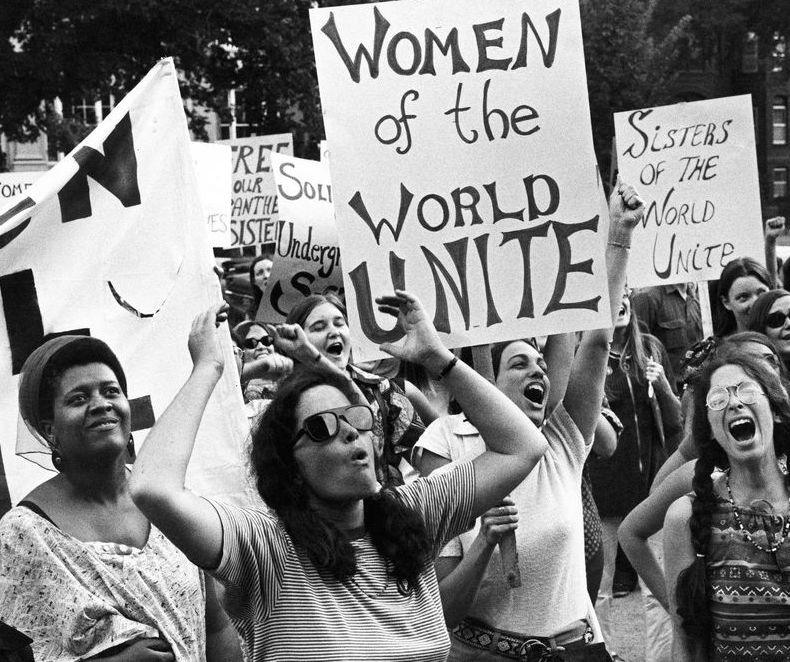
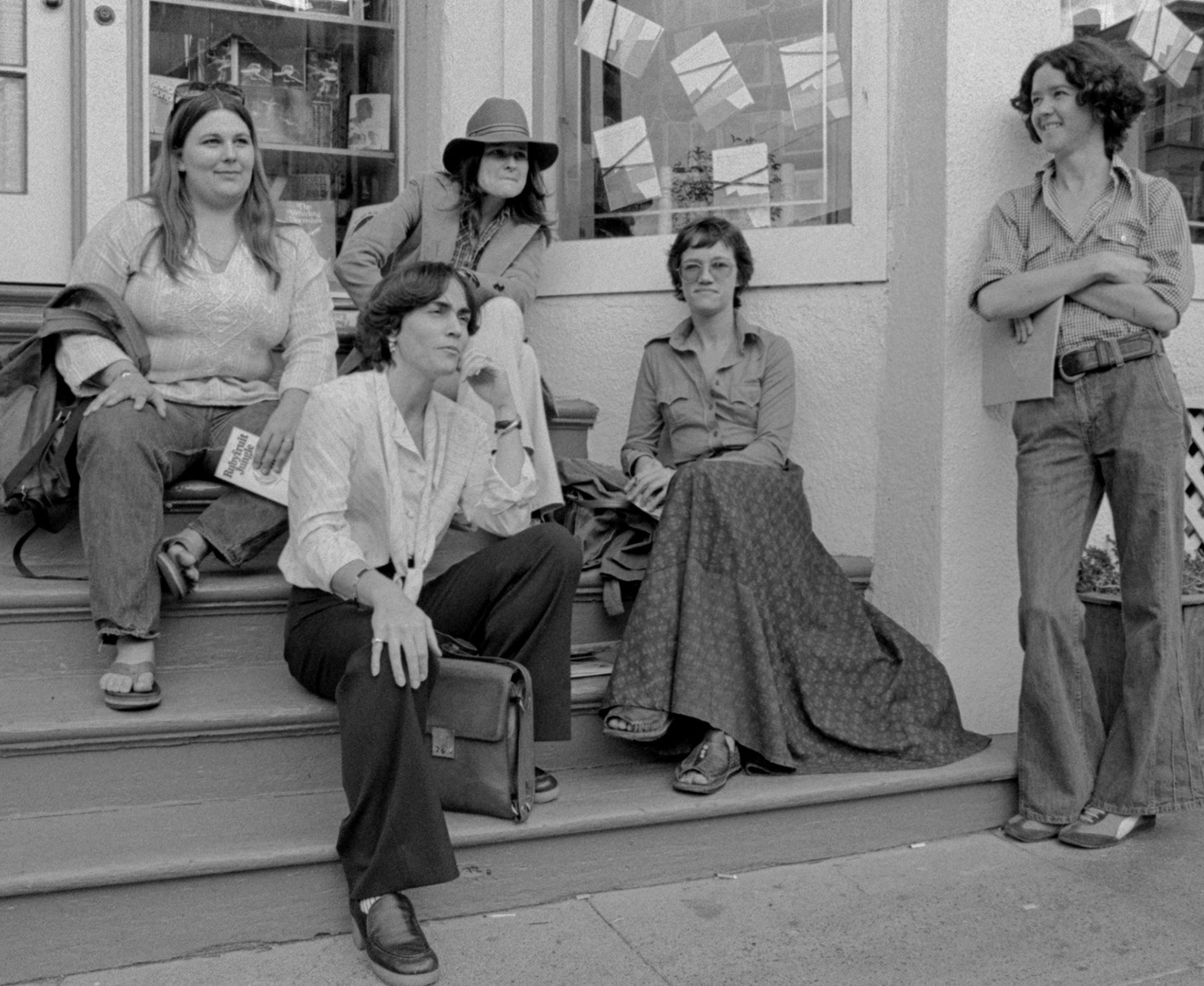
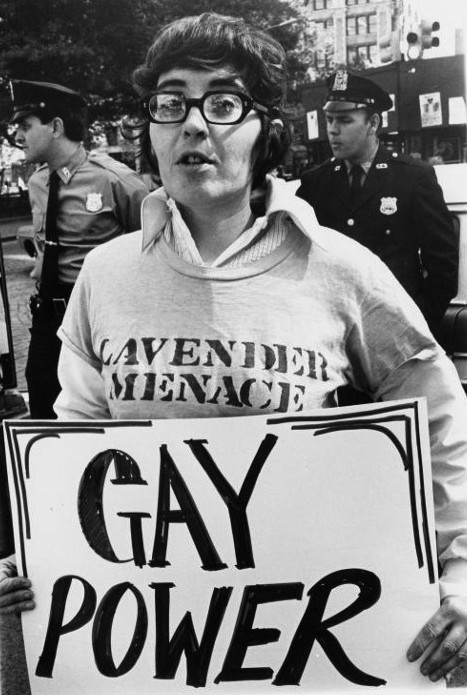
Advocate Magazine: Women of the Year
Habits of Mentally Strong Women
Info: Lesbian Issues
British Artist: Amy Blackwell
GoMag: Cultural Roadmap for
City Girls Everywhere
Gloria Steinem: Feminist Icon
About
Relationships: Lesbian Life
Throw Like a Girl
Women With a Perfect Response
for Why They Don't Have Kids
Highwomen:
Redesigning
Women
Queer Suffragists Who Fought for Women’s Right to Vote
At the
time, Betty Friedan, author of The Feminine Mystique,
the 1963 book that blew the lid off of suburban female
misery, was the president of the National Organization
for Women (NOW). She had helped found the group three
years earlier. NOW was arguably the most important
feminist organization of the time, but there were
tensions within its ranks. Friedan and other straight
feminists were concerned that the presence of “mannish”
or “man-hating” lesbians would hinder their cause.
The notion that a lesbian aesthetic or “agenda” would
compromise feminists’ political power or mar their image
in the broader culture was debated in many circles at
the time, but few went so far as to overtly exclude
lesbians. Friedan did, however. She severed ties with
some known lesbians, and resisted affiliation with
lesbian organizations. Del Martin, longtime activist and
founder of the Daughters of Bilitis, the first official
lesbian organization in the country, recalled, “Betty
Friedan was such a homophobe. She was so afraid of the
stigma lesbians might bring to the organization."
Friedan even deleted references to lesbian organizations
from the program for the First Congress to Unite Women
the same year.
The homophobia of more conservative feminists was an
unfortunate hurdle (and a nuisance) to many lesbian
feminists, but when, at a 1969 NOW meeting, Friedan
referred to the lesbian contingent as a “lavender
menace,” some thought she’d taken it too far. Within the
year, however, NOW had adopted a resolution recognizing
lesbian rights as “a legitimate concern of feminism.”
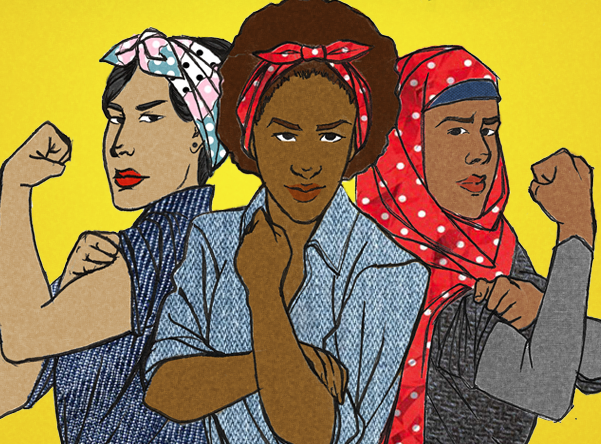
Advocate Magazine: Women of the Year
National Organization for
Women
Billie Eilish: What Was I Made For?
Flashmob: Victoria's
Secret
Women’s Issues Websites
Indigo Girls: Go (March for Our Lives)
Let's Talk Comp-Het
Scene From Freeheld: Wanna Bet?
The Year Women Found Their Rage
Feminist Current: Lesbianism Under Attack
Gal Pals and Compulsory
Heterosexuality
Trump's List of Nasty Women
Women Who Changed the Course of LGBTQ History
Gloria Steinem: Feminist Icon
Four Non Blondes: What's Up
Highwomen Music Video: Redesigning Women
CompHet: Compulsory
Heterosexuality



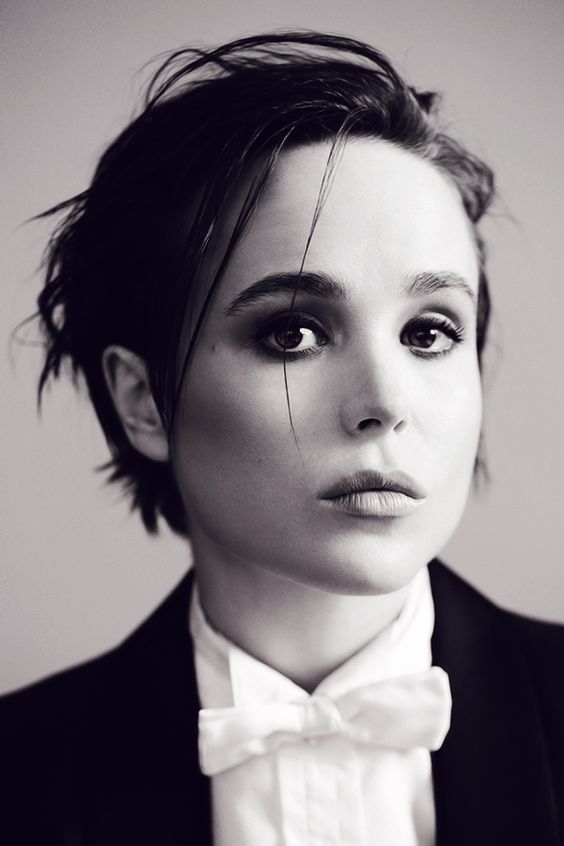
Here's to
Strong Women
"Well behaved women rarely make history."
-Eleanore
Roosevelt
"I
believe in being strong when everything seems to be
going wrong."
-Audrey Hepburn
"Here's to
strong women. May we know them. May we be them.
May we raise them."
-Quote
"I
am deliberate and afraid of nothing."
-Audre
Lorde
"We need
women who are so strong they can be gentle, so educated
they can be humble, so fierce they can be compassionate,
so passionate they can be rational, so disciplined they
can be free."
-Kavita
Ramdas
"Do not
tame the wolf inside you just because you've met someone
who doesn't have the courage to handle you."
-Belle
Estreller
“The day
will come when men will recognize woman as his peer, not
only at the fireside, but in councils of the nation.
Then, and not until then, will there be the perfect
comradeship, the ideal union between the sexes that
shall result in the highest development of the race.”
-Susan B.
Anthony
"A strong
woman is one who feels deeply and loves fiercely. Her
tears flow as abundantly as her laughter. A strong woman
is both soft and powerful. She is both practical and
spiritual. A strong woman in her essence is a gift to
the world.”
-Native
American Saying
"She was
brave and strong and broken all at once."
-Anna
Funder
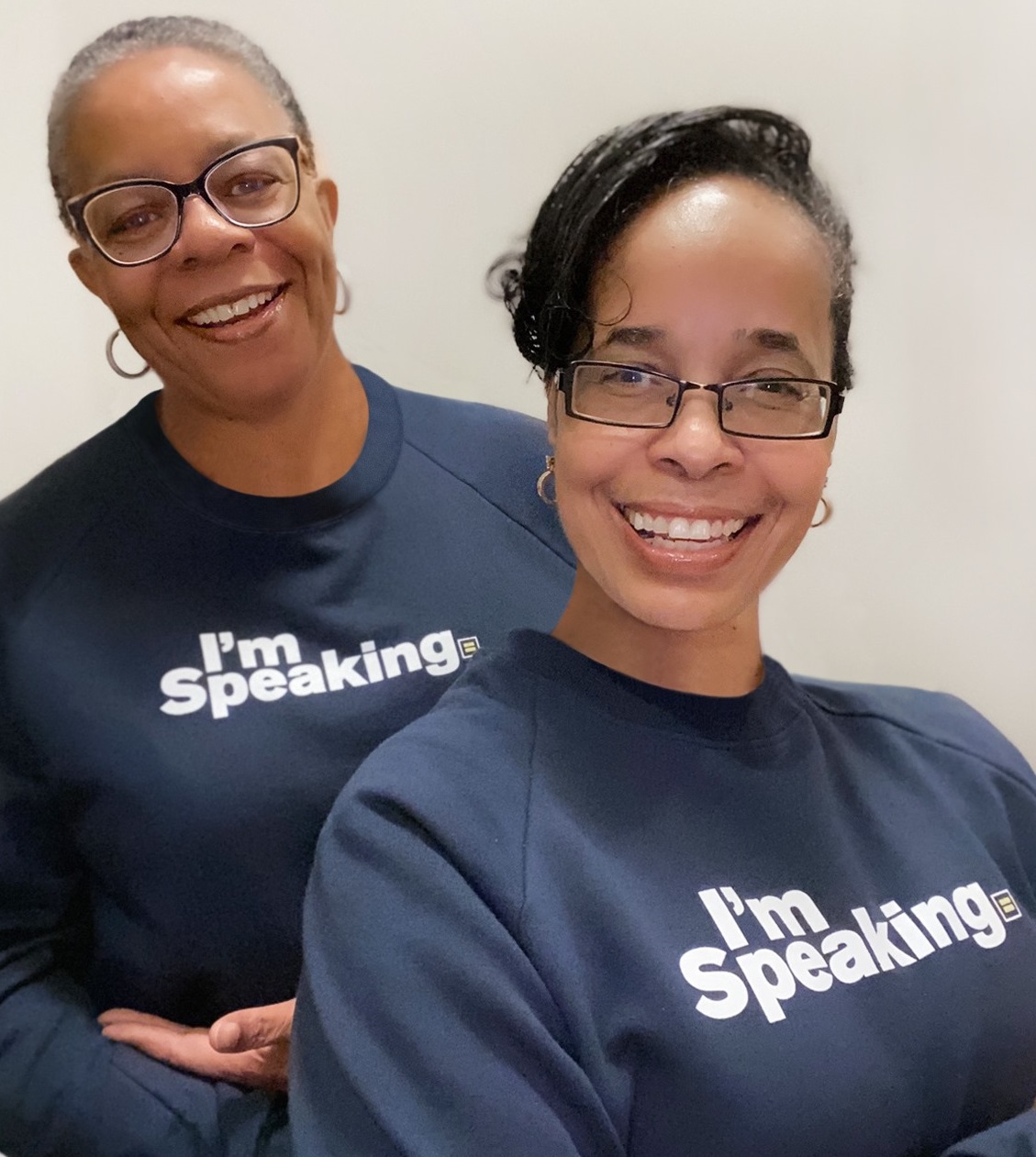
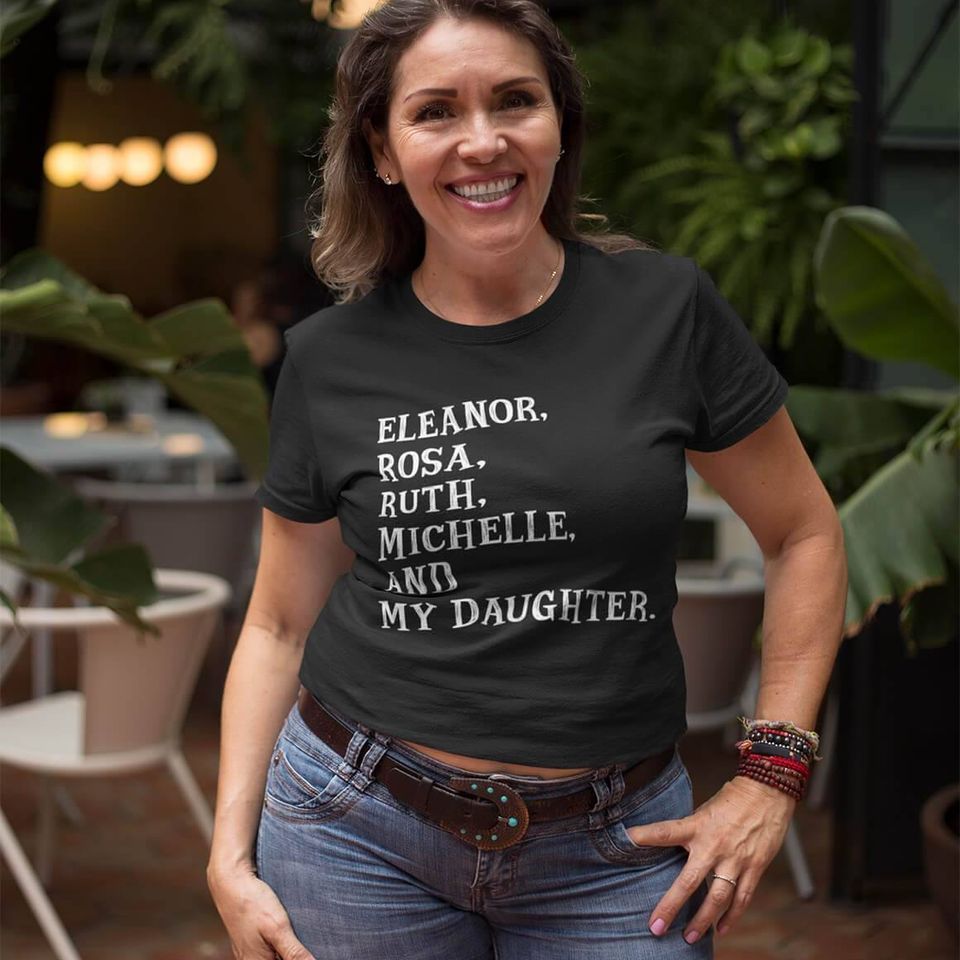
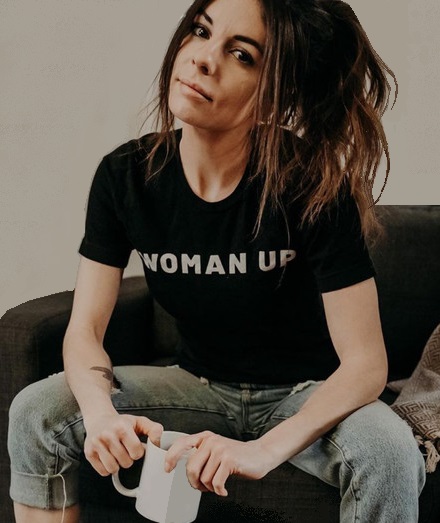
What is Transmisogyny?
HRC: How to Make Your Feminism Trans Inclusive
Lesbian Activist Fighting for All women's Rights
Is Feminism a Dirty Word?
Info: Definition of Lesbian
How Toxic Masculinity Harms Women
Message for Young Girls
CNN: Nobel Peace Prize for Fight Against Sexual Violence
NY Times: Nobel Peace Prize Awarded to Yazidi Activist
and Congolese Doctor
Taylor Swift: I'd Be The Man
Let's Talk Comp-Het
Gloria Steinem: Why You
Should Be a Feminist
Meredith Brooks: Bitch
American Girl (Alternate Version) by Tom Petty
Authentic, Accurate, Hilarious:
Illustrations that Capture What it's Like Being a Woman
Guardian: Nobel Peace Prize Won by Mukwege and Murad
Lesley Gore: You Don't Own Me
The Story of Lilith
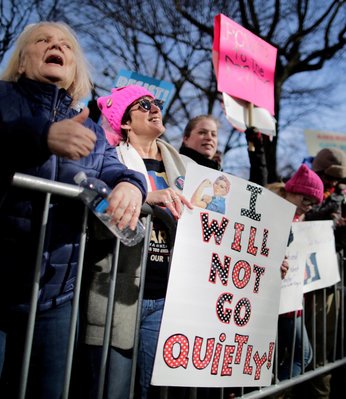
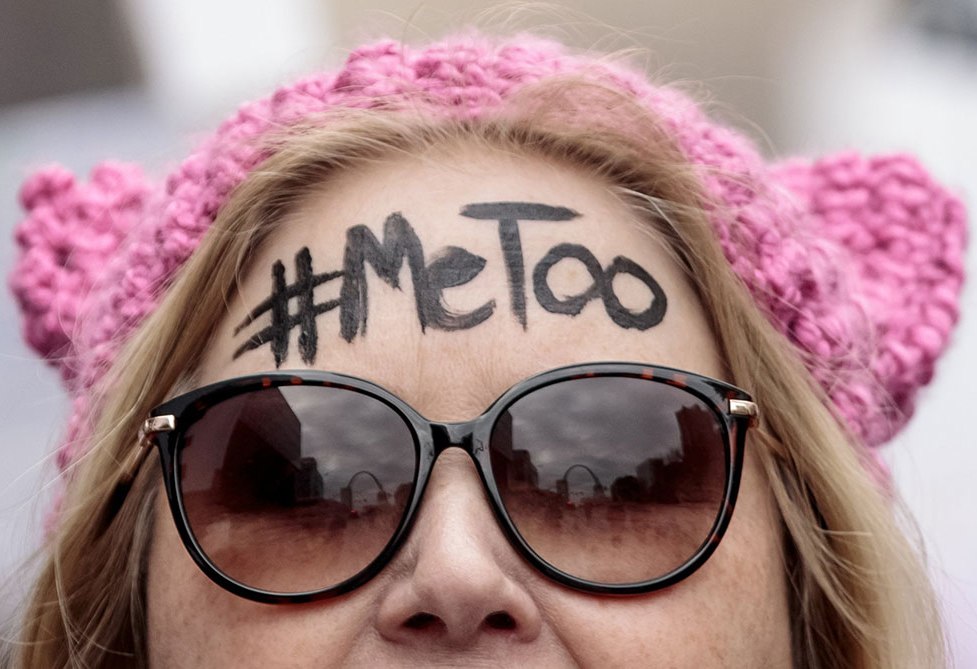
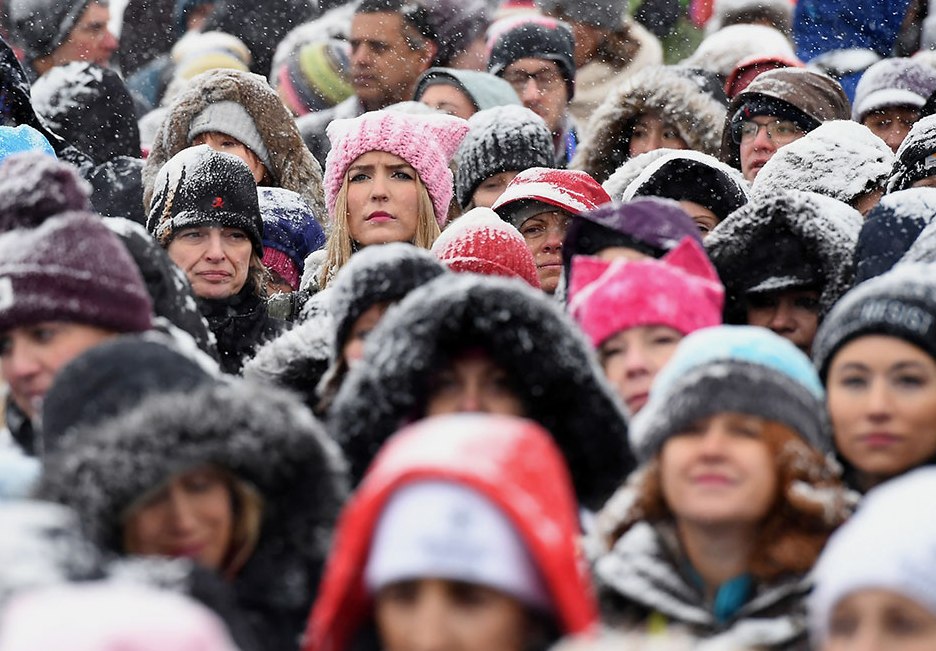
Women's March
2018
The second
annual Women's March took place on Saturday, January 20
and Sunday, January 21, 2018 in various US cities,
including Washington DC, New York, Chicago, Los Angeles,
Philadelphia, Austin, Seattle, and Las Vegas. In the
same spirit as last year's event, the
Women's March was a demonstration for human rights and
other issues, including women's rights, immigration
reform, healthcare reform, LGBTQ rights, racial equality,
voter empowerment, and sexual harassment.

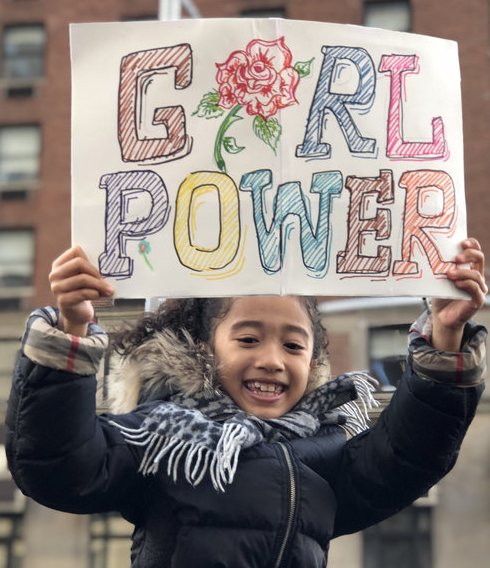
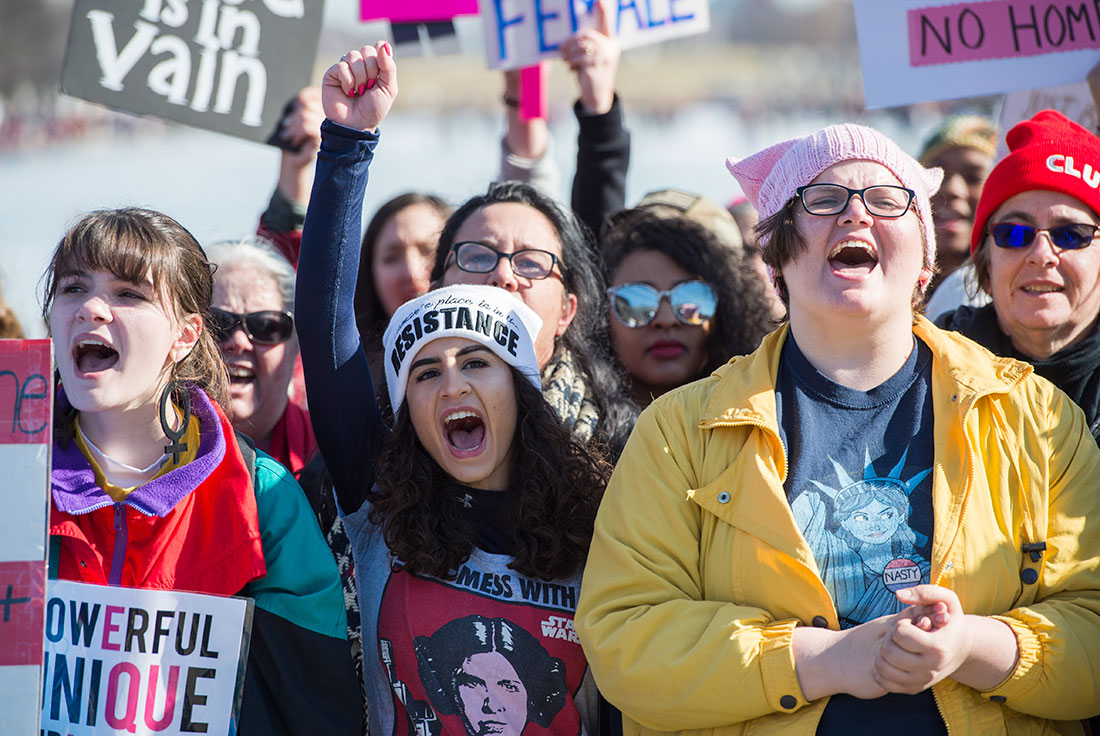
Since the last protest march, a deluge of revelations
about powerful men abusing women, leading to the #MeToo
movement, has pushed activists to demand deeper social
and political change. Progressive women are eager to
build on the movement and translate their enthusiasm
into electoral victories in this year’s midterm
elections.
More than 200,000 protesters attended the march in New
York. 600,000 attended the march in Los Angeles. And
organizers of the Chicago march said 300,000 attended
that event. As with last year's event, much of the
protest centered on President Trump's ongoing
disrespectful remarks about women and minorities.
Melissa Etheridge and Gay Men's Chorus at Women's March
NY Times: Thousands Participate in Women's March
Amazing Signs From the Women's March
CNN: Women's March Draws Big Crowds
Kids Protesting at Women's March
Huff Post: Great Protest Signs From Women's March
CNN: The Future is Female
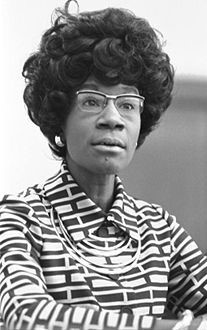
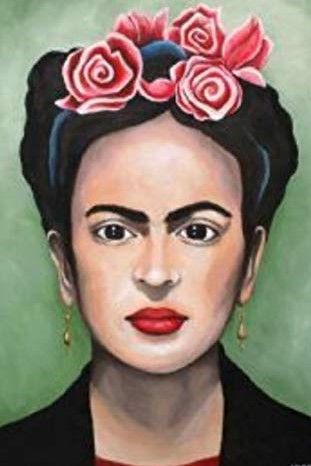

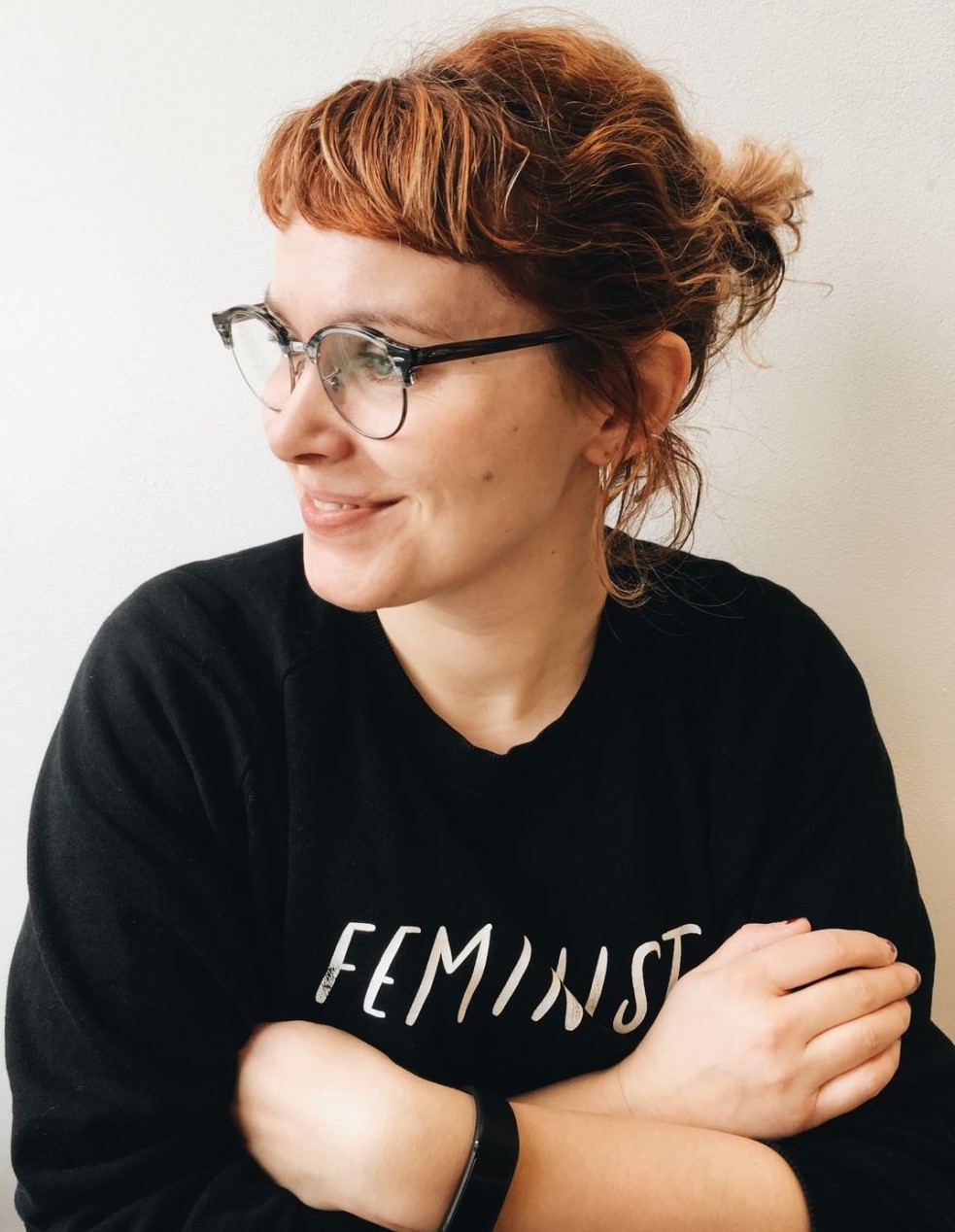
Phenomenal Women
"Do not
allow people to dim your shine because they’re blinded.
Tell them to put on some sunglasses."
-Lady Gaga
"Men may
have discovered fire. But women discovered how to play
with it."
-Quote
"I am a
woman phenomenally. Phenomenal woman, that's me."
-Maya Angelou
"I'm tough. I'm ambitious. And I know exactly what I
want. If that makes me a bitch, okay."
-Madonna
"At
present, our country needs a women's idealism and
determination."
-Shirley Chisholm
"Strong women don't have attitudes. We have standards."
-Marilyn Monroe
"I am a
woman with thoughts and questions and shit to say. I say
if I am beautiful. I say if I am strong. You will not
determine my story. I will."
-Amy Schumer
"Everyone
wants a strong woman until she actually stands up,
flexes her muscles, and projects her voice. Suddenly,
she is too much. She has forgotten her place. You love
those women as ideas, as fantasies, not as breathing,
living humans threatening to be even better than you
could ever be."
-The Minds
Journal
"Above
all, be the heroine of your life, not the victim."
-Nora
Ephron
"My mother
always told me, Hide your face, people are looking at
you. I would reply, It doesn't matter. I am also looking
at them."
-Malala
National Organization for
Women
Women’s Issues Websites
Superwoman by Alicia Keys
Billie Eilish: What Was I Made For?
What is the Texas Abortion Ban and Why
Does it Matter?
HRC: How to Make Your Feminism Trans
Inclusive
The Man by Taylor Swift
Warrior Women are the Role Models We
Need
Tricia Yearwood:
Every Girl in This Town
Ruth Bader Ginsburg: Woman of the Year
My Out Spirit: Women’s Issues
Lady Gaga:
Till it Happens to You
Wikipedia: Lesbian Feminism
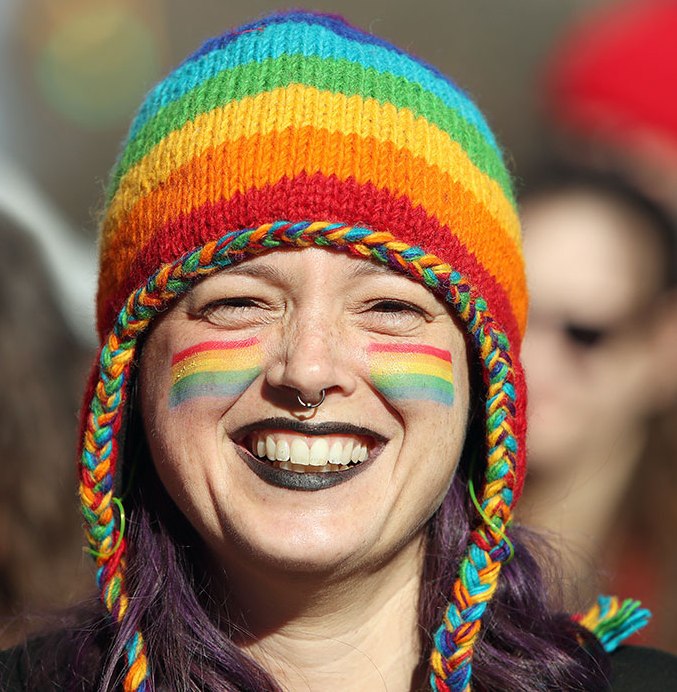
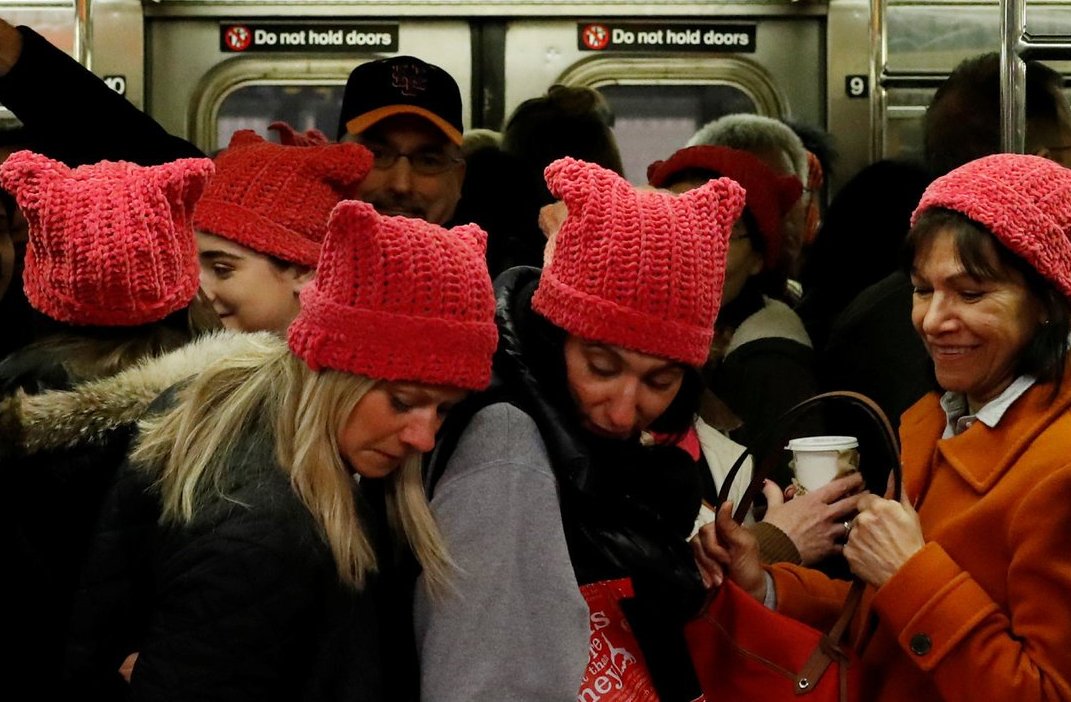

Women's March
2017
On
Saturday, January 21, 2017, more than 2 million people
across the world, led by hundreds of thousands who
overwhelmed the nation's capital, protested the first
full day of President Trump's tenure.
The
Women's March was a worldwide protest to advocate
legislation and policies regarding human rights and
other issues, including women's rights, immigration
reform, healthcare reform, the natural environment,
LGBTQ rights, racial equality, freedom of religion, and
workers' rights.
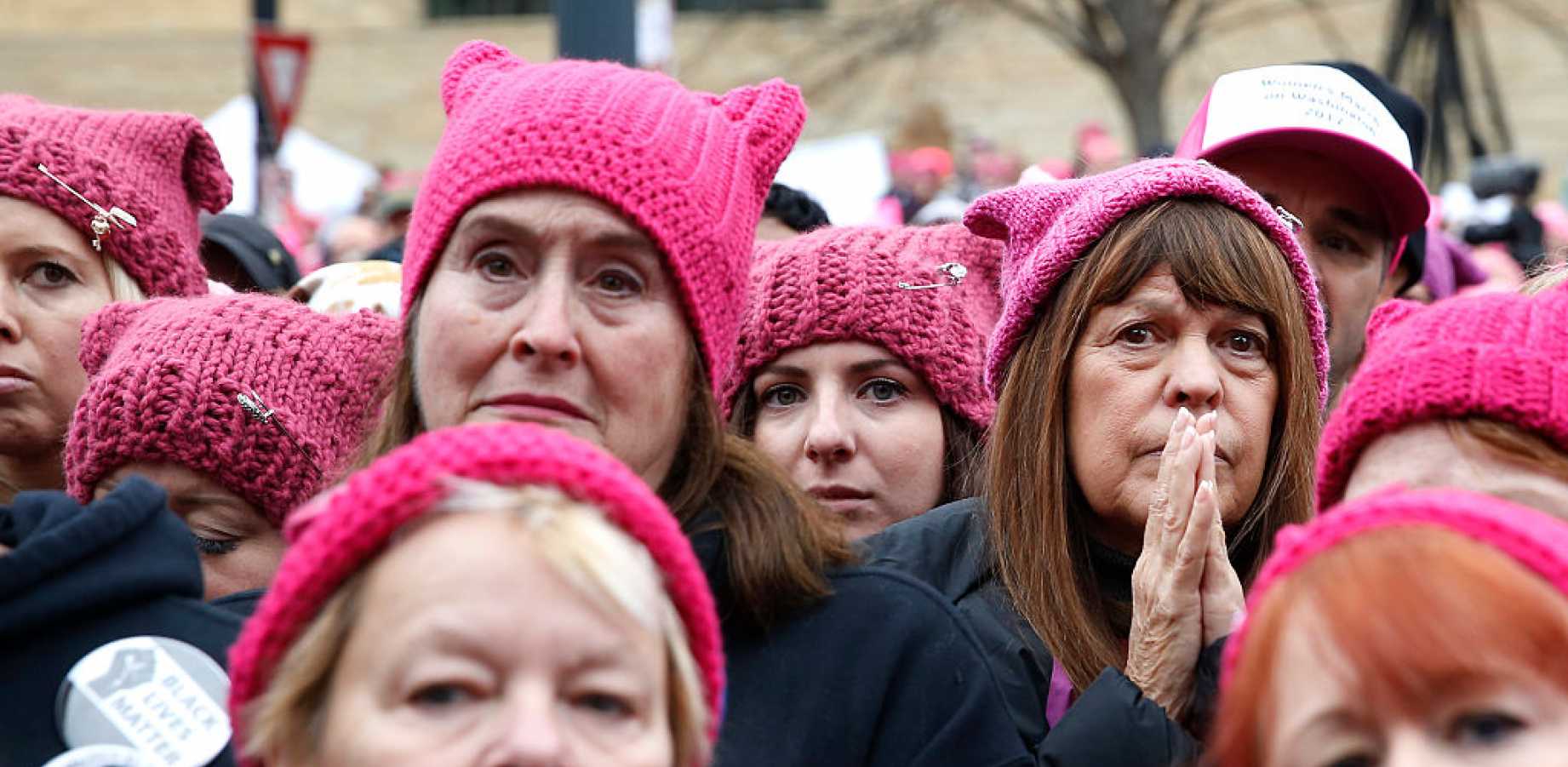
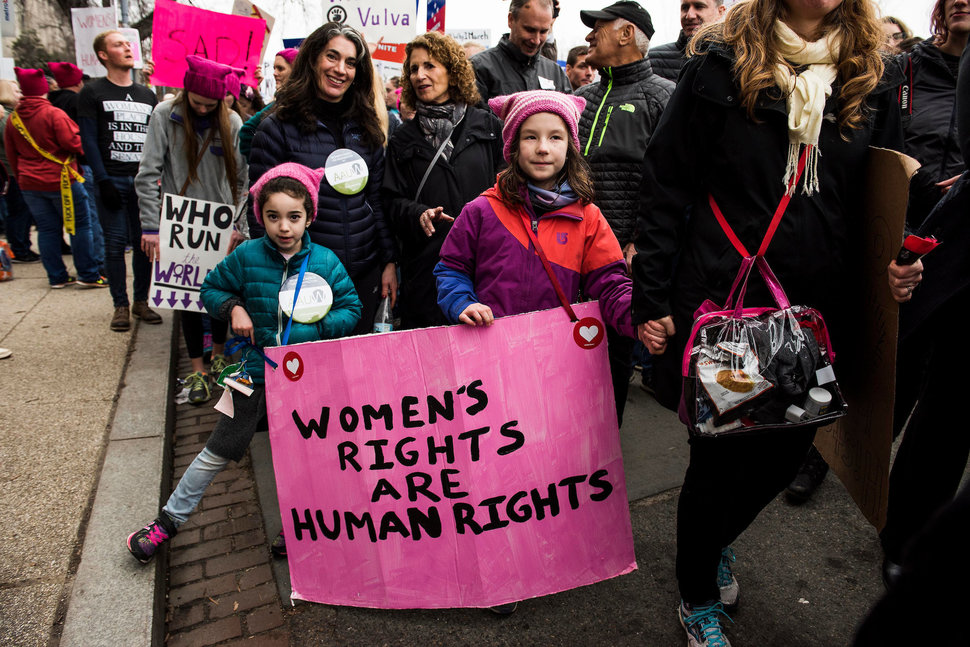
What began
as a Facebook post by a Hawaii grandmother the day after
Hillary Clinton's loss in November's election blossomed
into a massive protest uniting people of all ages, races
and religions who crowded downtown Washington. They
called for a "revolution" as a bulwark against the new
administration and the Republican-led Congress they fear
will roll back reproductive, civil and human rights.
According to a sister march webpage, an estimated 2.6
million people took part in 673 marches in all 50 states
and 32 countries, from Belarus to New Zealand — with the
largest taking place in Washington.
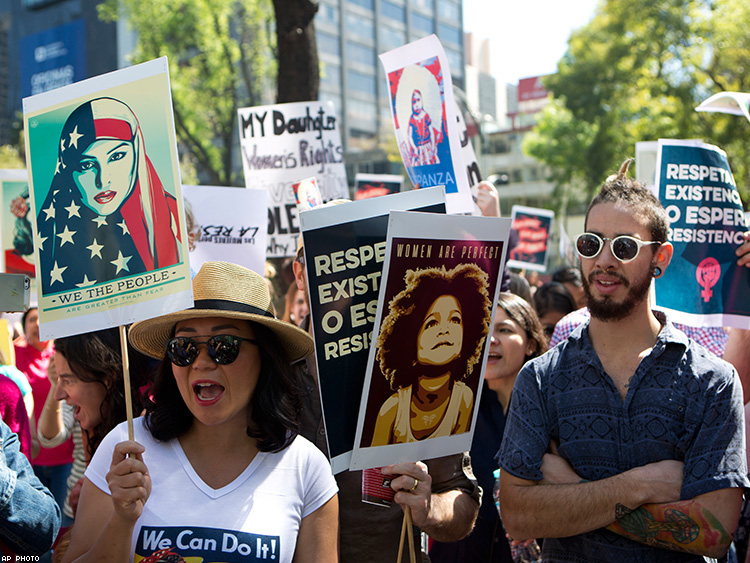
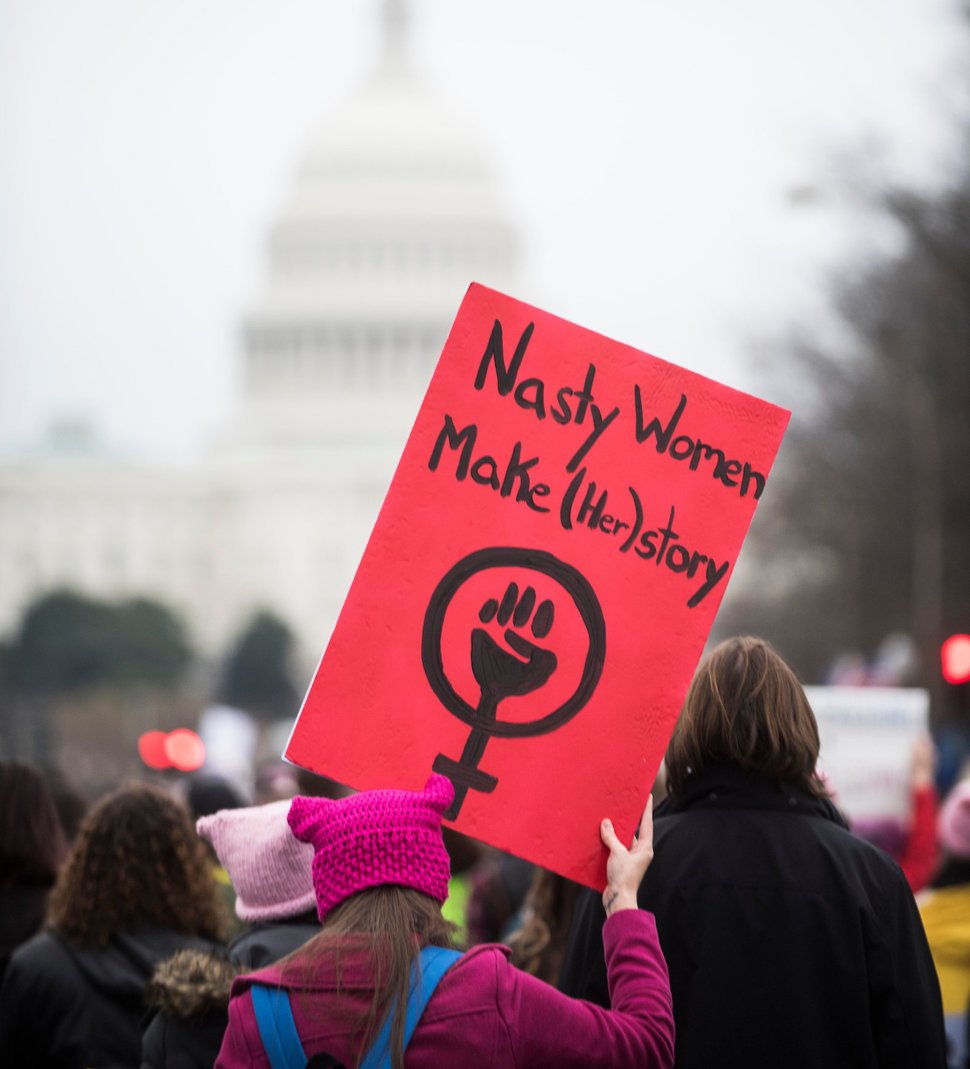
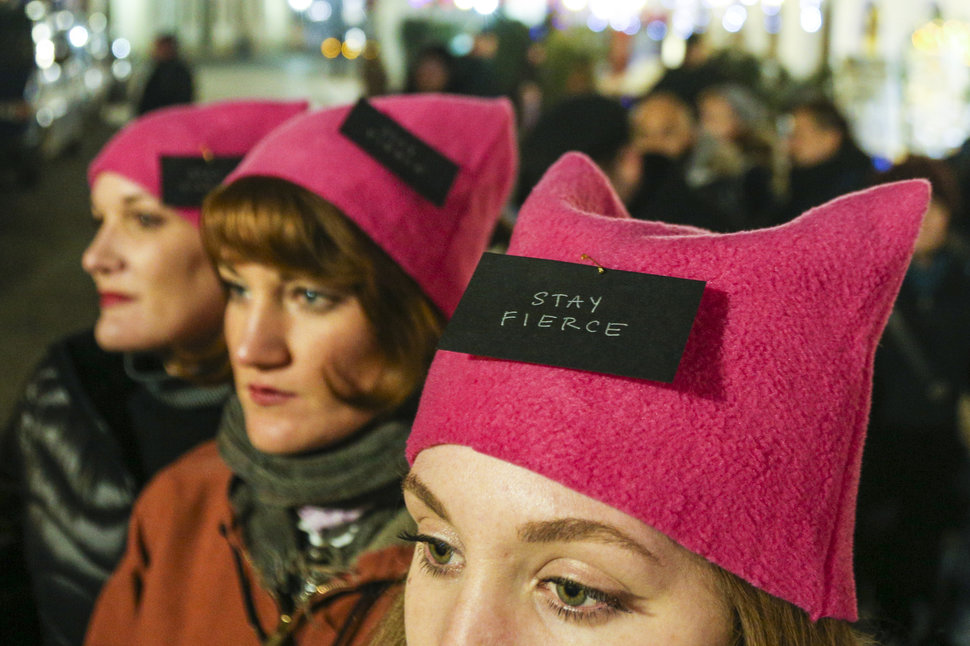
The crowds were so large in some cities that marching
was almost impossible. In Chicago, organizers halted the
march and rallied at Grant Park instead as crowds
swelled to 150,000, although thousands still marched. In
New York City, the number was 400,000, according to
Mayor Bill de Blasio; in Boston, media reported more
than 100,000 people marching in Boston Common. In
Oakland, Calif., police estimated that about 60,000
people took part in the women's march. Local media
reports said that San Francisco’s rally later in the day
may have attracted as many as 100,000.
Women and men across the country participated in a
“Women's March on Washington” in the nation's capital
the day after the inauguration as a rebuke to
President-elect Donald Trump's incendiary remarks about
women and minorities during his presidential campaign.
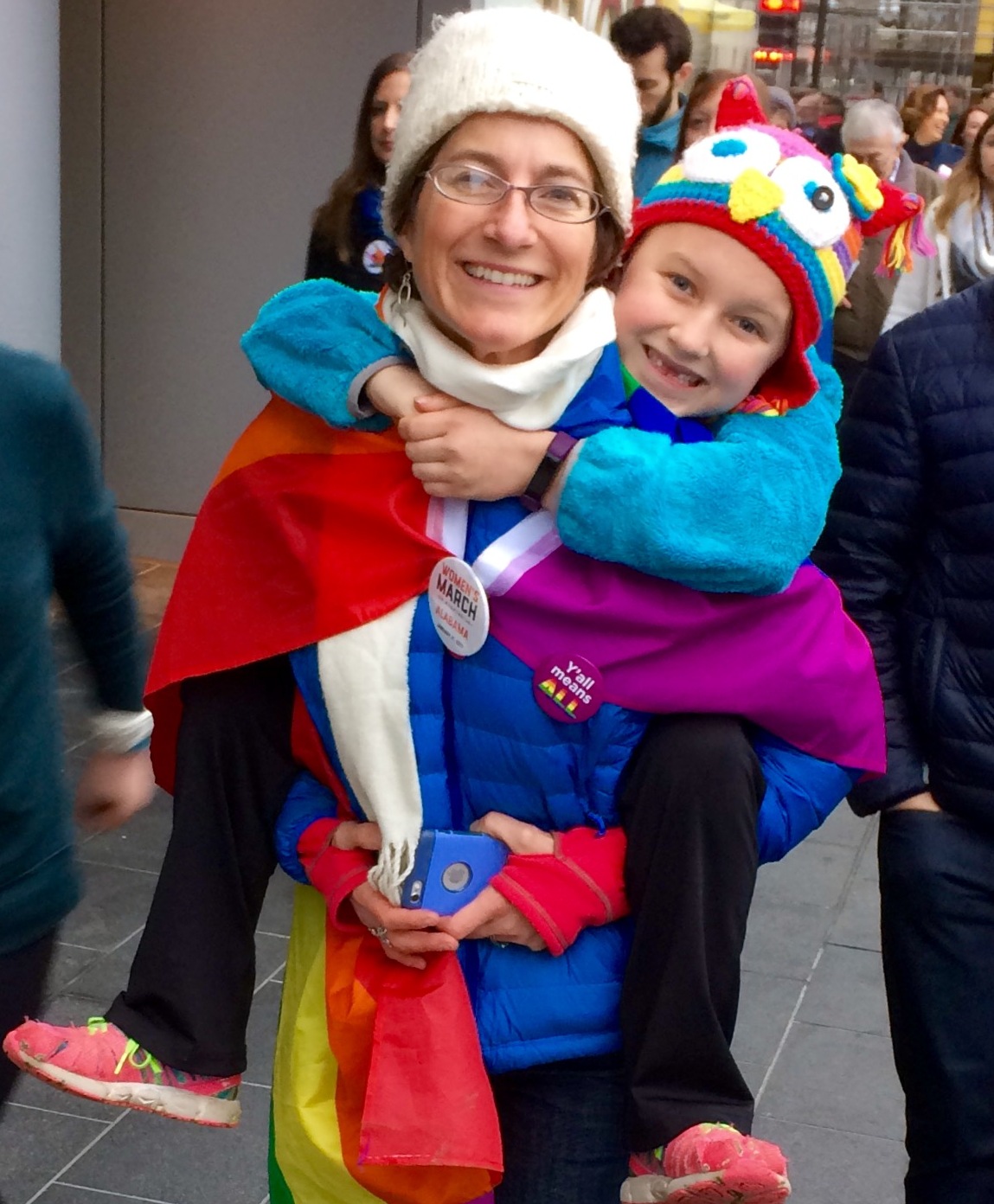

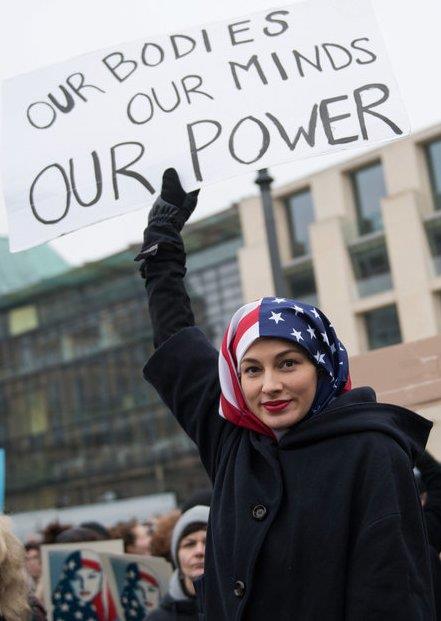
The undercurrent of the protest was heavily
female-oriented, with women decrying Trump's comments
about women, the uncertain future of access to birth
control and abortion, and the fact that Hillary Clinton
missed becoming the first woman to hold the presidency.
Hundreds of Cities Joined Women's March
Women's March was Therapy
Badass Signs From Women's March
Voices and Portraits From Women's March
Indigo Girls: Go (March for Our Lives)
Photos From Women's Marches Around the World
Madonna: Billboard Woman of the Year 2016
This is her Madonna's
speech while accepting the Billboard Woman Of The Year
award in 2016.
"I stand before you as a doormat. Oh, I mean, as a female
entertainer," Madonna said. "Thank you for acknowledging
my ability to continue my career for 34 years in the face
of blatant sexism and misogyny and constant bullying and
relentless abuse."
Recalling her life as
a teenager when she first moved to New York: "People were
dying of AIDS everywhere. It wasn’t safe to be gay, it
wasn’t cool to be associated with the gay community,"
Madonna recalled. "It was 1979 and New York was a very
scary place. In the first year I was held at gunpoint,
raped on a rooftop with a knife digging into my throat
and I had my apartment broken into and robbed so many
times I stopped locking the door. In the years that
followed, I lost almost every friend I had to AIDS or
drugs or gunshots."
"In life there is no real safety except for self-belief."
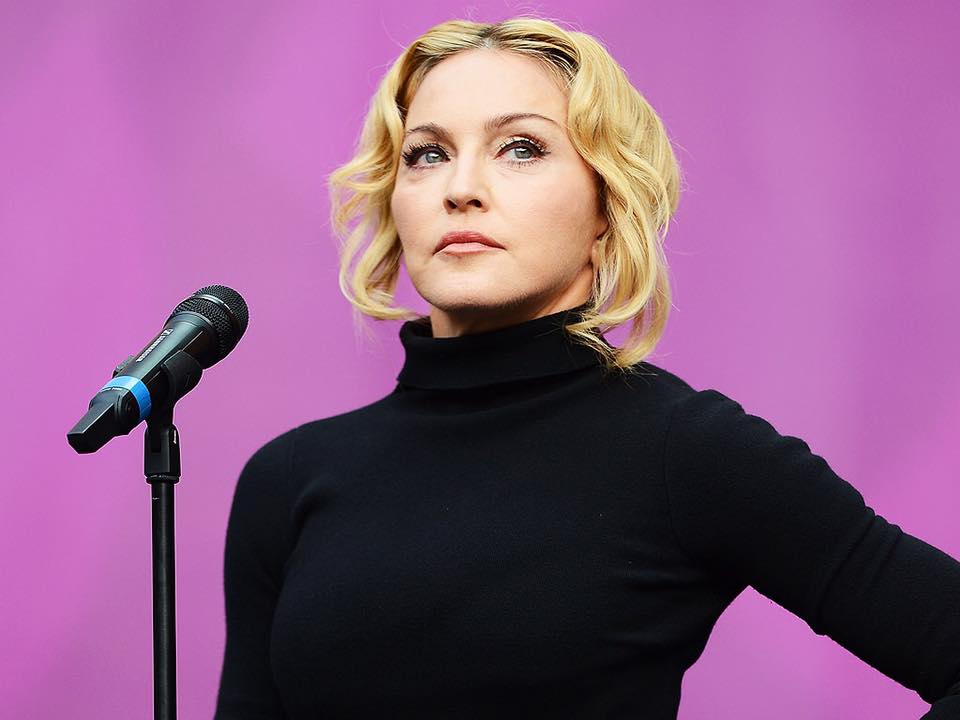
"I was of course
inspired by Debbie Harry and Chrissie Hynde and Aretha
Franklin, but my real muse was David Bowie. He embodied
male and female spirit and that suited me just fine. He
made me think there were no rules. But I was wrong. There
are no rules -- if you're a boy. There are rules if
you're a girl."
"If you're a girl, you have to play the game. You're
allowed to be pretty and cute and sexy. But don’t act too
smart. Don’t have an opinion that's out of line with the
status quo. You are allowed to be objectified by men and
dress like a slut, but don’t own your sluttiness. And do
not, I repeat do not, share your own sexual fantasies
with the world. Be what men want you to be, but more
importantly, be what women feel comfortable with you
being around other men. And finally, do not age. Because
to age is a sin. You will be criticized and vilified and
definitely not played on the radio."
Madonna also opened up about the time in her life when
she felt "like the most hated person on the planet," she
said, as she became emotional.. "Eventually I was
left alone because I married Sean Penn, and not only
would he bust a cap in your ass, but I was off the
market. For a while I was not considered a threat. Years
later, divorced and single -- sorry Sean -- I made my
Erotica album and my Sex book was released. I remember
being the headline of every newspaper and magazine.
Everything I read about myself was damning. I was called
a whore and a witch. One headline compared me to Satan. I
said, 'Wait a minute, isn't Prince running around with
fishnets and high heels and lipstick with his butt
hanging out?' Yes, he was. But he was a man."
"This was the first time I truly understood women do not
have the same freedom as men."
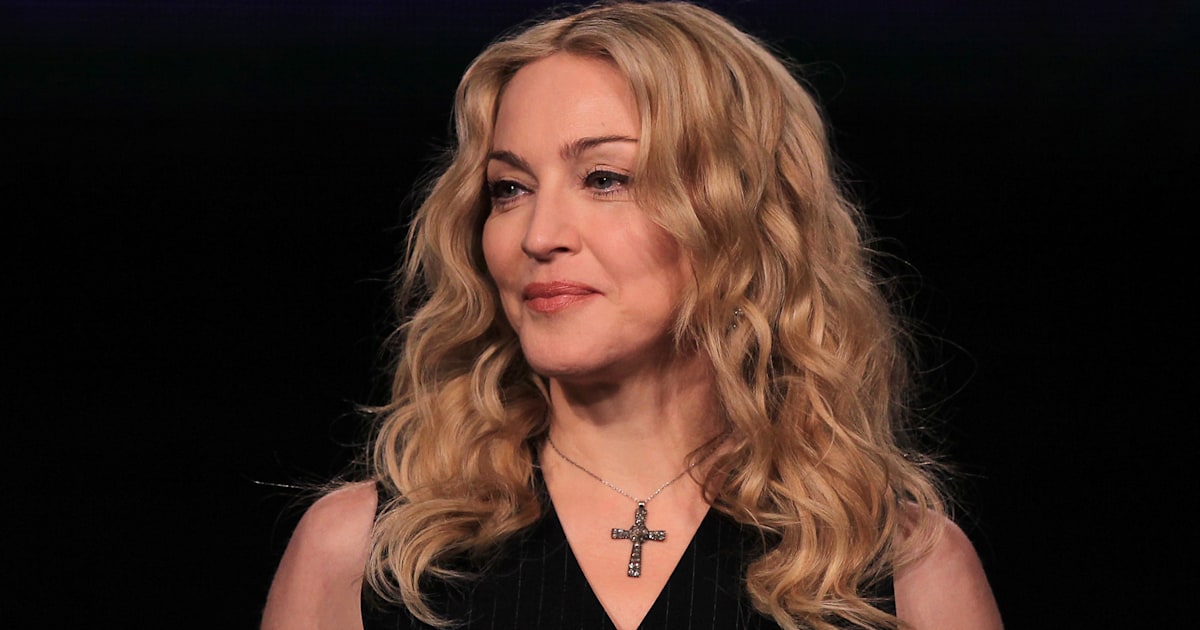
"I remember wishing I
had a female peer I could look to for support. Camille
Paglia, the famous feminist writer, said I set women back
by objectifying myself sexually. So I thought, 'oh, if
you're a feminist, you don't have sexuality, you deny
it.' So I said 'fuck it. I'm a different kind of
feminist. I'm a bad feminist.'"
"I think the most
controversial thing I have ever done is to stick around.
Michael is gone. Tupac is gone. Prince is gone. Whitney
is gone. Amy Winehouse is gone. David Bowie is gone. But
I'm still standing. I'm one of the lucky ones and every
day I count my blessings."
"What I would like to
say to all women here today is this: Women have been so
oppressed for so long they believe what men have to say
about them. They believe they have to back a man to get
the job done. And there are some very good men worth
backing, but not because they're men -- because they're
worthy. As women, we have to start appreciating our own
worth and each other's worth. Seek out strong women to
befriend, to align yourself with, to learn from, to
collaborate with, to be inspired by, to support, and
enlightened by," she urged.
"It's not so much
about receiving this award as it is having this
opportunity to stand before you and say thank you,"
"Not only to the people
who have loved and supported me along the way, you have
no idea...you have no idea how much your support means,"
she said, tearing up for the second time. "But to the
doubters and naysayers and everyone who gave me hell and
said I could not, that I would not or I must not -- your
resistance made me stronger, made me push harder, made me
the fighter that I am today. It made me the woman that I
am today. So thank you."
Madonna: Woman of The Year Speech Billboard Women in
Music 2016
Sisters Are Doin' for Themselves: Annie Lennox and
Aretha Franklin
Lesbian Activist Fighting for All women's Rights
These Boots Are Made for Walking
Billie Eilish: What Was I Made For?
Essay by Adrienne Rich: Compulsory Heterosexuality &
Lesbian Existence
Flashmob: Victoria's Secret
AutoStraddle: Female
Friends Forever
Wikipedia:
Womyn
Advocate Magazine: Women of the Year
Trump's List of Nasty Women
Gloria Steinem: Why You
Should Be a Feminist
Meredith Brooks: Bitch
Throw Like a Girl
Indigo Girls: Go (March for Our Lives)
Feminist
and Lesbian Separatism
Separatism
Lesbian separatism is a form of separatist feminism
specific to lesbians. Separatism has been considered by
lesbians as both a temporary strategy and as a lifelong
practice, but mostly the latter. In separatist feminism,
lesbianism is posited as a key feminist strategy that
enables women to invest their energies in other women,
creating new space and dialogue about women's
relationships, and typically, limits their dealings with
men.
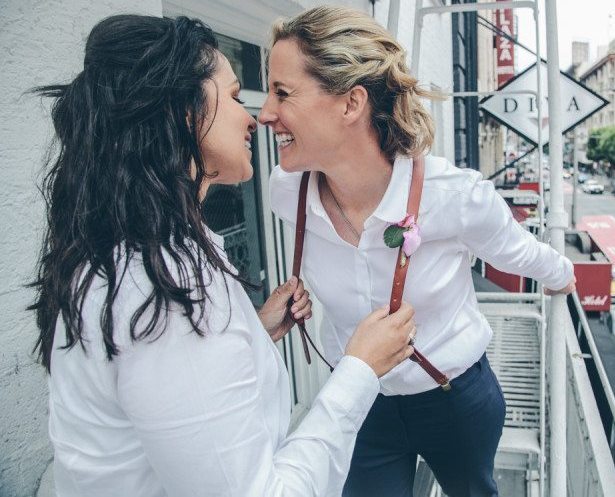
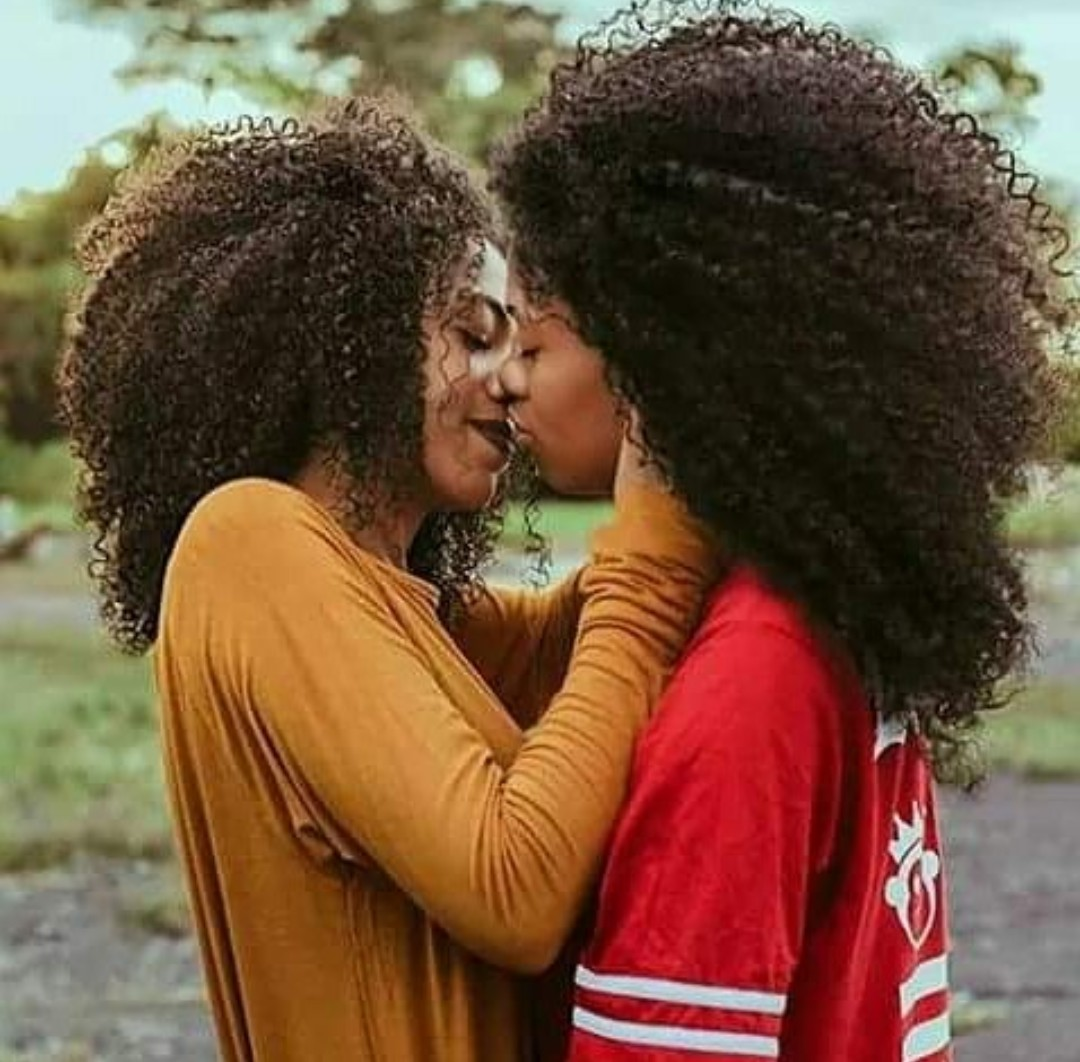
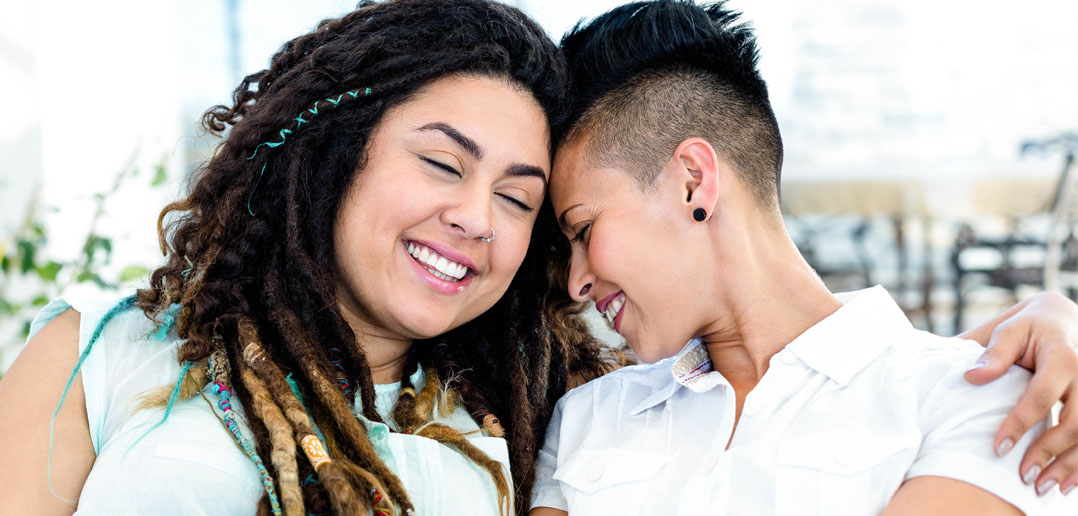
Lesbian separatism became popular in the 1970s, as some
lesbians doubted whether mainstream society or even the
gay rights movement had anything to offer them. In 1970,
seven women, including Del Martin, confronted the North
Conference of Homophile [meaning homosexual]
Organizations about the relevance of the gay rights
movement to the women within it. The delegates passed a
resolution in favor of women's liberation, but Martin
felt they had not done enough and wrote "If That's All
There Is", an influential 1970 essay in which she
decried gay rights organizations as sexist. In the
summer of 1971, a lesbian group calling themselves "The
Furies" formed a commune open to lesbians only, where
they put out a monthly newspaper. "The Furies" consisted
of twelve women, aged 18-28, all feminists, all
lesbians, all white, with three children among them.
They shared chores and clothes, lived together, held
some of their money in common, and slept on mattresses
on a common floor. They also started a school to teach
women auto and home repair so they would not be
dependent on men. The newspaper lasted from January 1972
to June 1973; the commune itself ended in 1972.
Charlotte
Bunch, an early member of "The Furies", viewed
separatist feminism as a strategy, a "first step"
period, or temporary withdrawal from mainstream activism
to accomplish specific goals or enhance personal growth.
Other lesbians, such as Lambda Award winning author
Elana Dykewomon, have chosen separatism as a lifelong
practice.
In
addition to advocating withdrawal from working, personal
or casual relationships with men, "The Furies"
recommended that Lesbian Separatists relate "only (with)
women who cut their ties to male privilege" and
suggested that "as long as women still benefit from
heterosexuality, receive its privileges and security,
they will at some point have to betray their sisters,
especially Lesbian sisters who do not receive those
benefits".
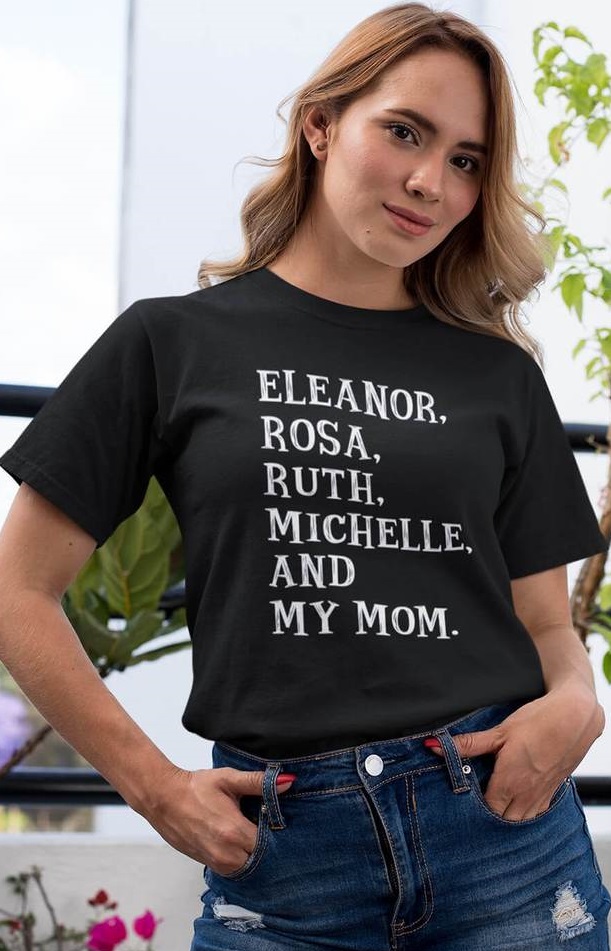
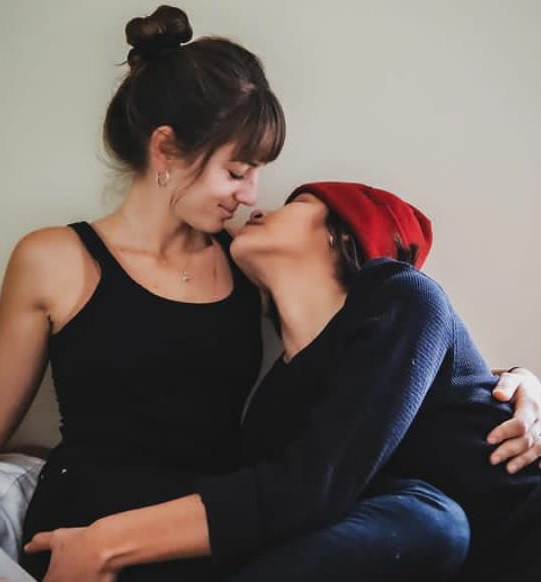
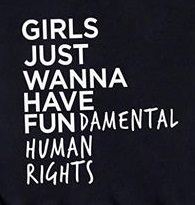
Highwomen: Redesigning Women
The Year Women Found Their Rage
CompHet: Compulsory Heterosexuality
Tricia Yearwood: Every Girl in This Town
Gloria Steinem: Feminist Icon
Feminist Current: Lesbianism Under Attack
Trump's List of Nasty Women
Women Who Changed the Course of LGBTQ History
Rachel Vorona Cote: The Right to Be Too
Much
Warrior Women are the Role Models We
Need
Message for Young Girls
This was part of a larger idea that Bunch articulated in
Learning from Lesbian Separatism, that "in a
male-supremacist society, heterosexuality is a political
institution" and the practice of separatism is a way to
escape its domination.
In her 1988 book, Lesbian Ethics: Towards a New Value,
lesbian philosopher Sarah Lucia Hoagland alludes to
lesbian separatism's potential to encourage lesbians to
develop healthy community ethics based on shared values.
Hoagland articulates a distinction (originally noted by
Lesbian Separatist author and anthologist Julia
Penelope) between a lesbian subculture and a lesbian
community; membership in the subculture being "defined
in negative terms by an external, hostile culture", and
membership in the community being based on "the values
we believe we can enact here".
Bette Tallen believes that lesbian separatism, unlike
some other separatist movements, is "not about the
establishment of an independent state, it is about the
development of an autonomous self-identity and the
creation of a strong solid lesbian community".
Lesbian historian Lillian Faderman describes the
separatist impulses of lesbian feminism which created
culture and cultural artifacts as "giving love between
women greater visibility" in broader culture. Faderman
also believes that lesbian feminists who acted to create
separatist institutions did so to "bring their ideals
about integrity, nurturing the needy, self-determination
and equality of labor and rewards into all aspects of
institution-building and economics".
The practice of Lesbian separatism sometimes
incorporates concepts related to queer nationalism and
political lesbianism. Some individuals who identify as
Lesbian separatists are also associated with the
practice of Dianic paganism.
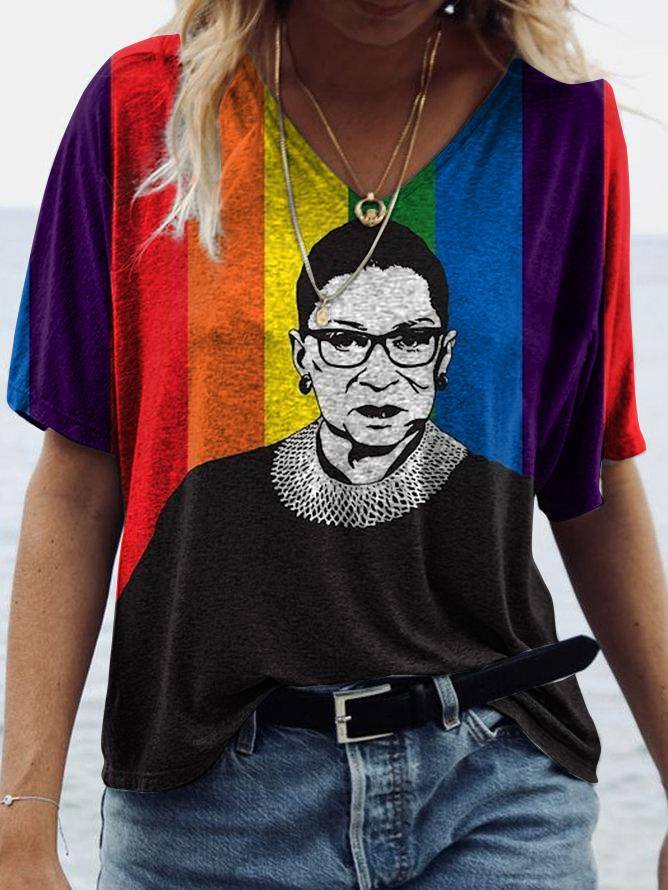
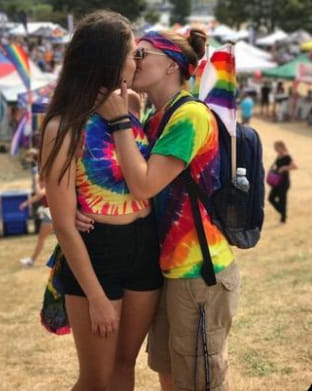
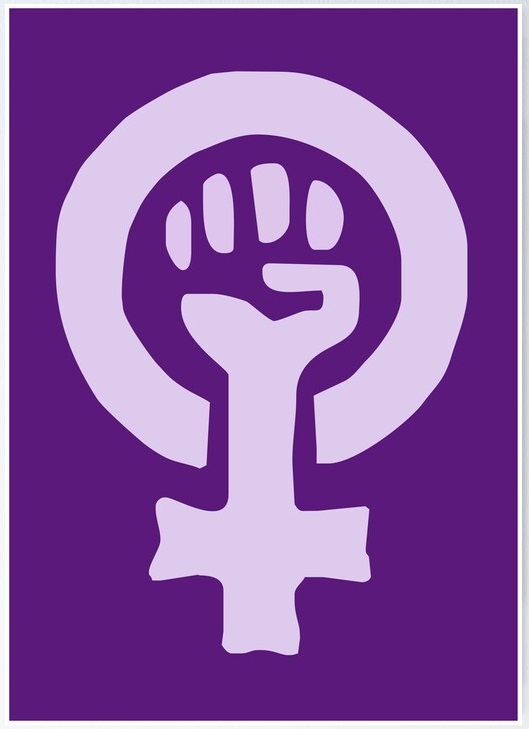
Lesbian Feminism
Lesbian Activist Fighting for All women's Rights
Essay by Adrienne Rich: Compulsory Heterosexuality &
Lesbian Existence
Womyn's Land
Info: Lesbian Issues
Gal Pals and Compulsory
Heterosexuality
Backstory:
Womyn
Gloria Steinem: Why You
Should Be a Feminist
Authentic, Accurate, Hilarious:
Illustrations that Capture What it's Like Being a Woman
Herstory Project: Feminism and Lesbianism
Article: Lesbian Separatism
Lesbians in the 1960s Feminist Movement
Let's Talk Comp-Het
Elsewhere,
lesbian feminists have situated female separatism as
quite a mainstream thing and have explored the mythology
surrounding it. Marilyn Frye's (1978) essay Notes on
Separatism and Power is one such example. She posits
female separatism as a strategy practiced by all women,
at some point, and present in many feminist projects
(one might cite women's refuges, electoral quotas or
women's studies programs). She argues that it is only
when women practice it, self-consciously as separation
from men, that it is treated with controversy (or as she
suggests hysteria). On the other hand, male separatism
(one might cite gentleman's clubs, labor unions, sports
teams, the military and, more arguably, decision-making
positions in general) is seen as quite a normal, even
expedient phenomenon.
Still, other lesbian feminists put forward a notion of
"tactical separatism" from men, arguing for and
investing in things like women's sanctuaries and
consciousness-raising groups, but also exploring
everyday practices to which women may temporarily
retreat or practice solitude from men and masculinity.
Margaret Sloan-Hunter compared lesbian separatism to
black separatism. In her work Making Separatist
Connections: The Issue is Woman Identification she
stated: "If Lesbian separatism fails it will be because
women are so together that we will just exude woman
identification wherever we go. But since sexism is much
older than racism, it seems that we must for now embrace
separatism, at least psychically, for health and
consciousness sake. This is a revolution, not a public
relations campaign, we must keep reminding ourselves."
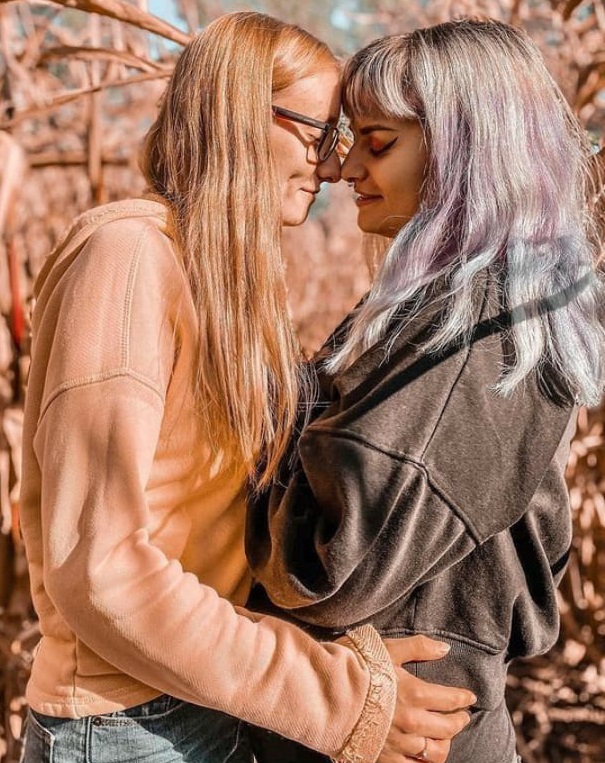
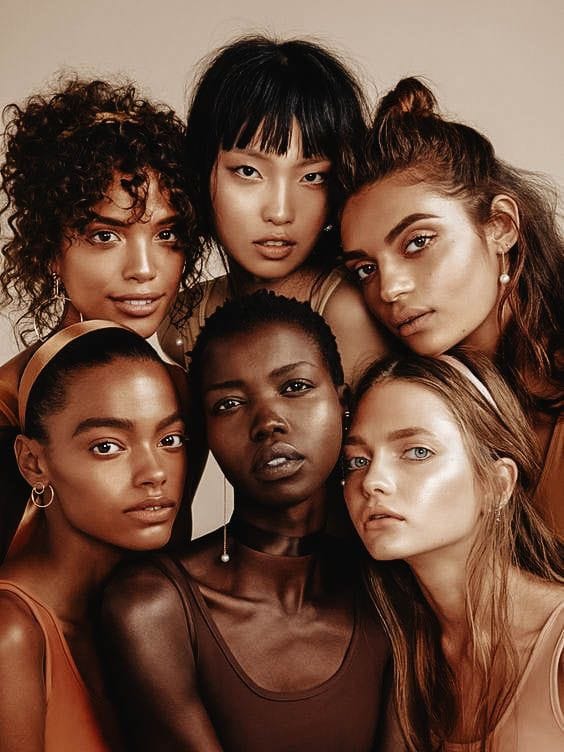
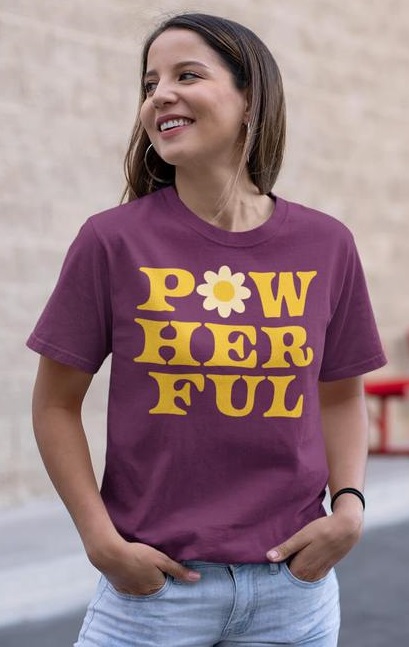
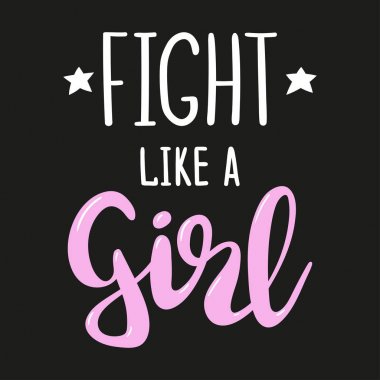
Billie Eilish: What Was I Made For?
Feminist Views on Sexual Orientation
Advocate Magazine: Women of the Year
Let's Talk Comp-Het
Conflict in the Feminist/Lesbian Movement in the 60s
Dispute Between Radical Feminism and Transgenderism
Lesbians Fight Against TERFs
Indigo Girls: Go (March for Our Lives)
Info: Transgender Issues
Womyn
"Womyn" is an alternate spelling of the word "woman."
The term is sometimes used by some feminist and lesbian
separatist groups as a nonsexist spelling of "woman" in
order to deliberately avoid the suffix "man." The term
has been tied to the concept of feminism as a form of
the word "woman" without patriarchal connotations. The
term is sometimes used in labeling certain academic
programs, categories of literature, concert events,
festivals, interest groups, support groups, and
communities/communes related to feminist or lesbian
issues.
Womyn's Land
Womyn's
land is an intentional community organized by lesbian
separatists to establish counter-cultural,
women-centered space, without the presence of men. These
lands were the result of a social movement of the same
name that developed in the 1970s in the United States,
Australia, New Zealand, and western Europe. Many still
exist today. Womyn's land-based communities and
residents are loosely networked through social media;
print publications such as newsletters; Maize: A
Lesbian Country Magazine; Lesbian Natural Resources,
a not-for-profit organization that offers grants and
resources; and regional and local gatherings.
Womyn's lands practice various forms of lesbian
separatism, an idea which emerged as a result of the
Radical Feminist movement in the late 1960s. Lesbian
separatism is based on the idea that women must exist
separately from men, socially and politically, in order
to achieve the goals of feminism. These separatist
communities exist as a way for women to achieve female
liberation by separating themselves from mainstream
patriarchal society. Men are not allowed to live in
these communities, but a few lands allow men to visit.
Some communities ban male infants and/or male relatives.
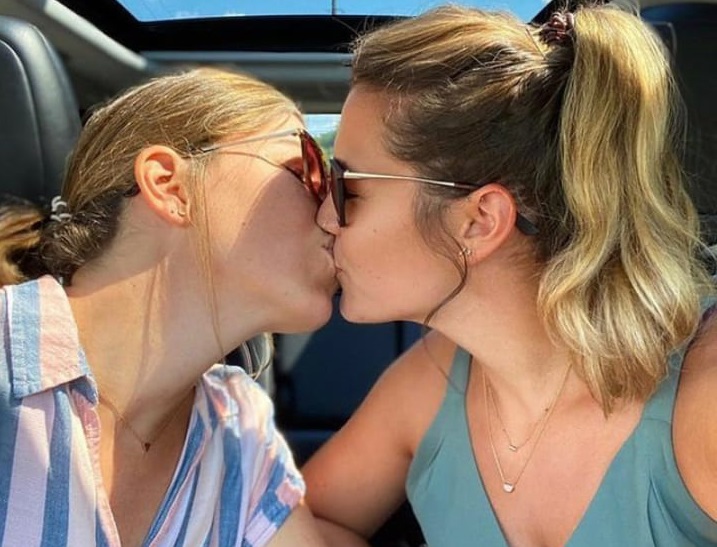
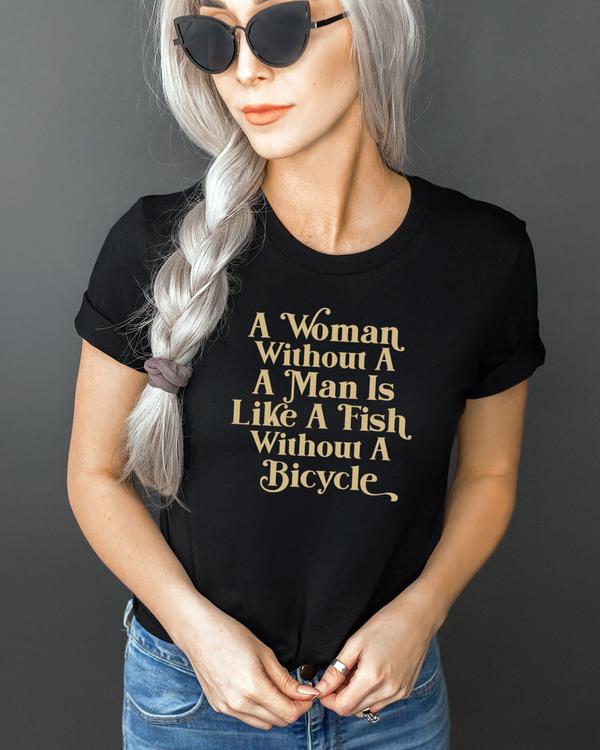
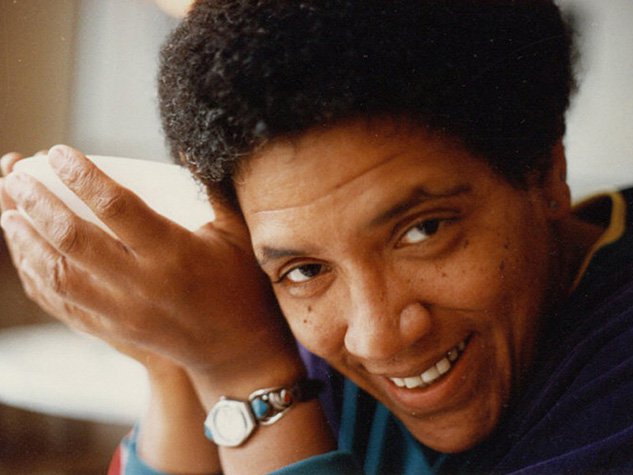
Woman-Identified Woman
If the founding of the lesbian feminist movement could
be pinpointed at a specific moment, it would probably be
May 1970, when Radicalesbians, an activist group of 20
lesbians led by lesbian novelist Rita Mae Brown, took
over the Congress to Unite Women, a women's conference
in New York City. Uninvited, they lined up on stage
wearing matching T-shirts inscribed with the words
"Lavender Menace", and demanded the microphone to read
aloud to an audience of 400 their essay "The
Woman-Identified Woman", which laid out the main
precepts of their movement. Later on, Adrienne Rich
incorporated this concept in her essay "Compulsory
Heterosexuality and Lesbian Existence", in which she
unpacks the idea that patriarchy dictates women to be
focused on men or to be "men-identified women. Becoming
women-identified women, i.e. changing the focus of
attention and energy from men to women, is a way to
resist the patriarchal oppression".
Contrary to some popular beliefs about "man-hating butch
dykes", lesbian feminist theory does not support the
concept of female masculinity. Proponents like Sheila
Jeffreys have argued that "all forms of masculinity are
problematic".
This is one of the principal areas in which lesbian
feminism differs from queer theory, perhaps best
summarized by Judith Halberstam's quip that "If Sheila
Jeffreys didn't exist, Camille Paglia would have had to
invent her."
Lesbian Feminism
Lesbian Activist Fighting for All women's Rights
Essay by Adrienne Rich: Compulsory Heterosexuality &
Lesbian Existence
Womyn's Land
Info: Lesbian Issues
Gal Pals and Compulsory
Heterosexuality
Backstory:
Womyn
Gloria Steinem: Why You
Should Be a Feminist
Herstory Project: Feminism and Lesbianism
Article: Lesbian Separatism
Lesbians in the 1960s Feminist Movement
Let's Talk Comp-Het
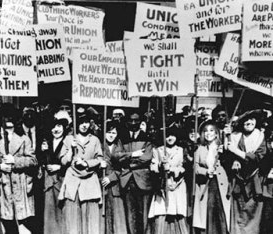
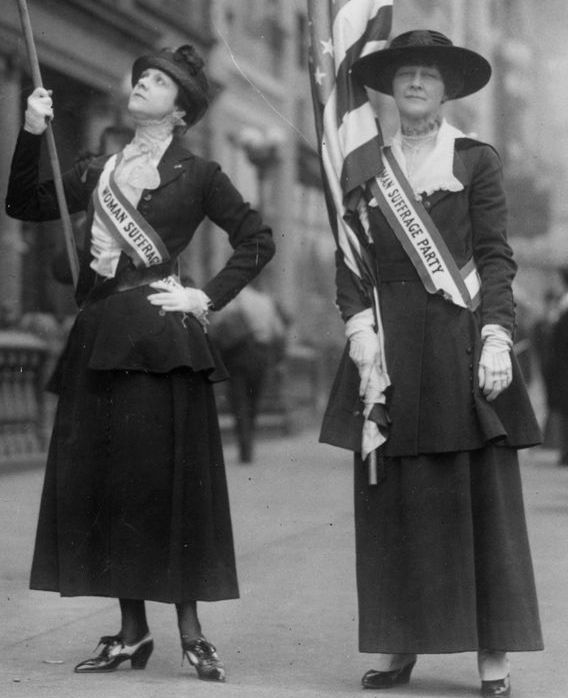
What is
Transmisogyny?
The term "transmisogyny" describes so much of what we
see in the cultural and systemic treatment of trans
women in our culture and ties in so clearly with
feminism, and yet it’s not a word that many people know
about or understand.
You may have heard of transphobia: the discrimination of
and negative attitudes toward transgender people based
on their gender expression.
And you’ve likely heard of misogyny: the hatred and
denigration of women and characteristics deemed
feminine.
Transmisogyny, then, is the confluence of these: the
negative attitudes, expressed through cultural hate,
individual and state violence, and discrimination
directed toward trans women and trans and gender
non-conforming people on the feminine end of the gender
spectrum.
Transfeminist theorist and author Julia Serano argues in
her book Whipping Girl that transphobia is rooted
in sexism, and locates the origins of both transphobia
and homophobia in what she calls "oppositional sexism,"
the belief that male and female are "rigid, mutually
exclusive categories, each possessing a unique and
nonoverlapping set of attributes, aptitudes, abilities,
and desires." Serano contrasts oppositional sexism with
"traditional sexism," the belief that males and
masculinity are superior to females and femininity.
Furthermore, she writes that transphobia is fueled by
insecurities people have about gender and gender norms.
What is Transmisogyny?
My Out Spirit: Women’s Issues
Gloria
Steinem: Why You Should Be a Feminist
Let's Talk Comp-Het
Wikipedia: Lesbian Feminism
HRC: How to Make Your Feminism Trans Inclusive
PBS Video: Queer Feminist Punk Rocker
It's Time for LGBTQ Women to Claim Our Seats at the
Table
How Toxic Masculinity Harms Women
Jennifer Nettles: I Can Do Hard Things
Gal Pals
and Compulsory Heterosexuality
Women React to Trump’s
Sexism
Message for Young Girls
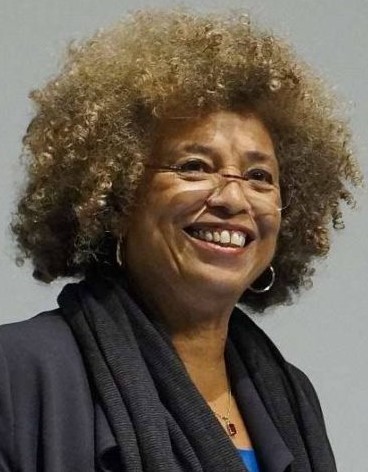
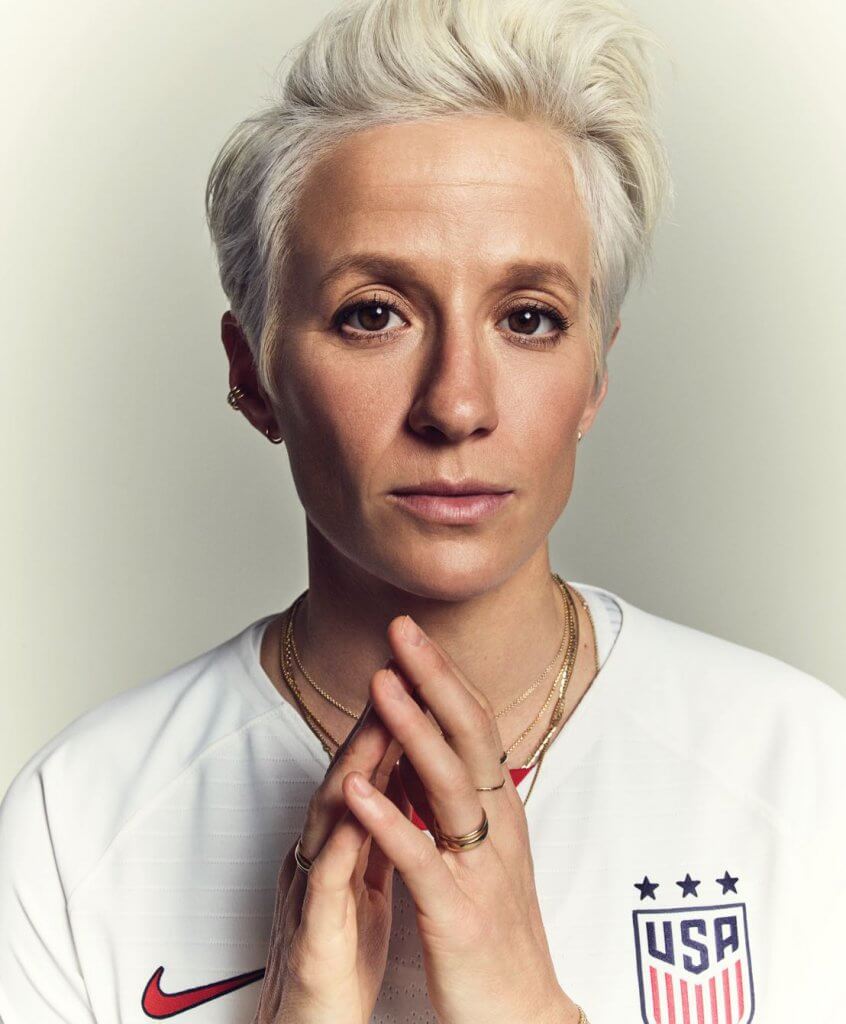
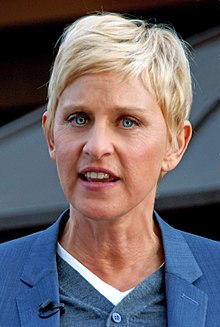
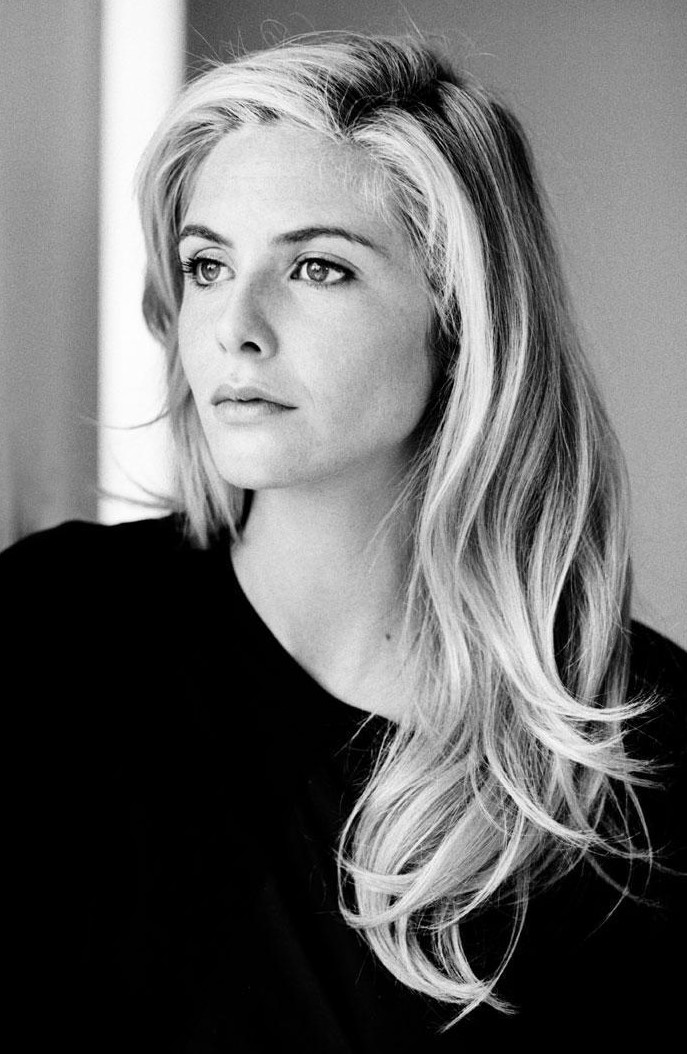
Women of
Indomitable Will
"You have
to learn to get up from the table when love is no longer
being served."
-Nina
Simone
"I am mine
before I am anyone else's."
-Nayyirah
Waheed
"Any woman
who chooses is a strong woman. A strong woman chooses to
follow her dreams and chooses to sacrifice her dreams. A
strong woman chooses to build her career and chooses to
take care of her family. A strong woman chooses to speak
up and chooses to stay quiet. A strong woman chooses to
be herself and chooses to sacrifice herself."
-The Minds
Journal
"Never
apologize for being sensitive or emotional. Let this be
a sign that you’ve got a big heart and aren’t afraid to
let others see it. Showing your emotions is a sign of
strength."
-Brigitte
Nicole
"Anytime
someone tells me I can’t do something, I want to do it
more."
-Taylor
Swift
"You were
wild once. Don't let them tame you."
-Isadora
Duncan
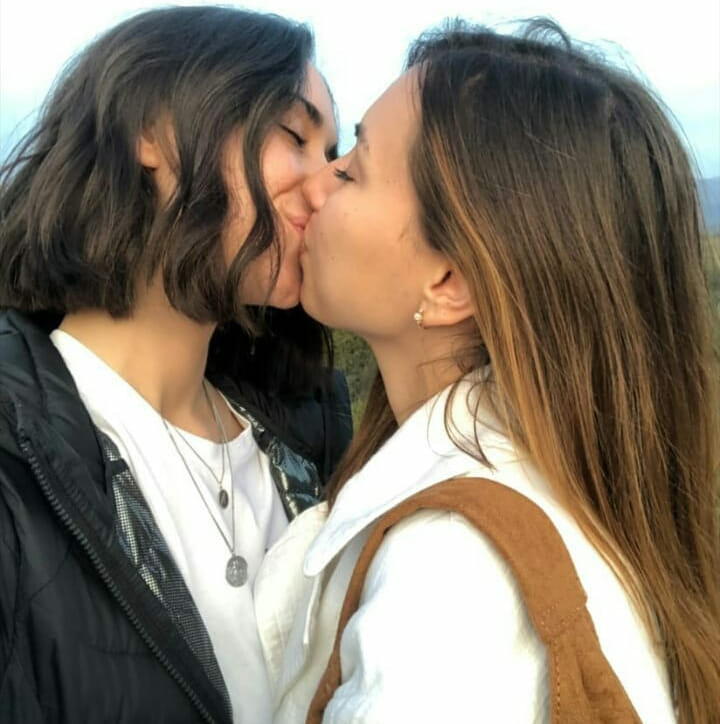
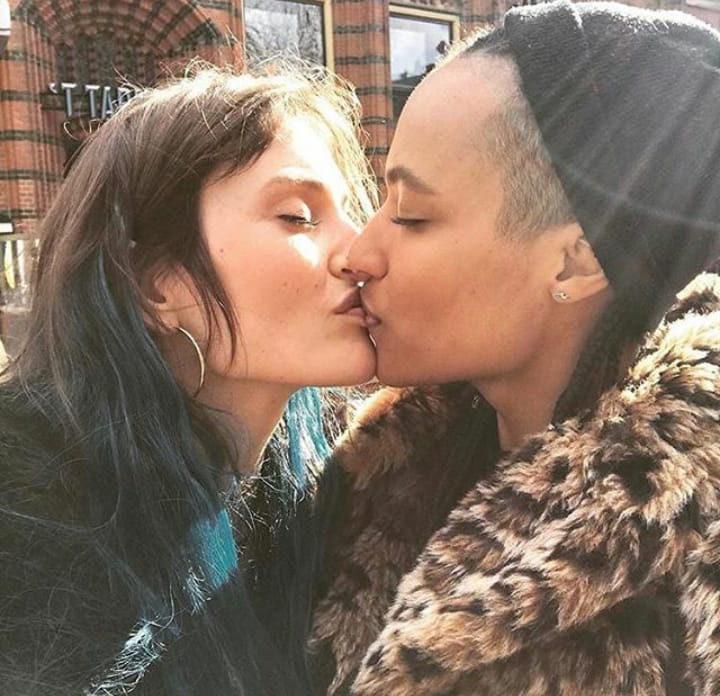
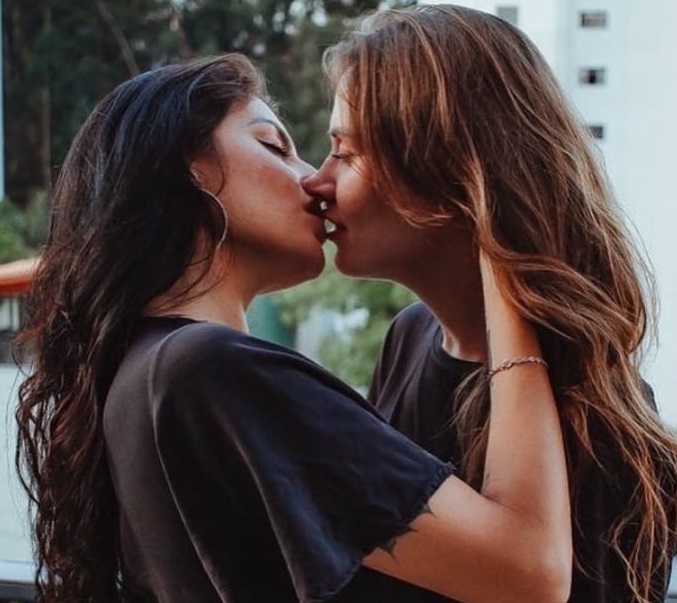
"The world
needs strong women. Women who will lift and build
others, who will love and be loved. Women who live
bravely, both tender and fierce. Women of indomitable
will."
-Amy
Tenney
"Strong
women only intimidate weak men."
-Quote
"Tremendous amounts of talent are being lost to our
society just because that talent wears a skirt."
-Shirley Chisholm
"I
became a lesbian because of women, because women are
beautiful strong, and compassionate."
-Rita Mae Brown
"The most alluring thing a woman can have is
confidence."
-Beyoncé
"We are powerful because we have survived."
-Audre
Lorde
It's Time for LGBTQ Women to Claim Our Seats at the
Table
Four Non Blondes: What's Up
Born to Play: Boston
Renegades Women's Football Team
How Toxic Masculinity Harms Women
Jennifer Nettles: I Can Do Hard Things
Women React to Trump’s
Sexism
The Year Women Found Their Rage
Feminist Current: Lesbianism Under Attack
Billie Eilish: What Was I Made For?
Trump's List of Nasty Women
Gloria Steinem: Feminist Icon
Highwomen Music Video: Redesigning Women
Info: Lesbian Issues
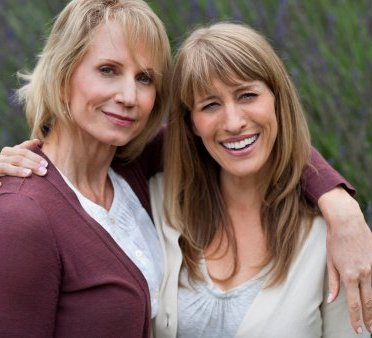
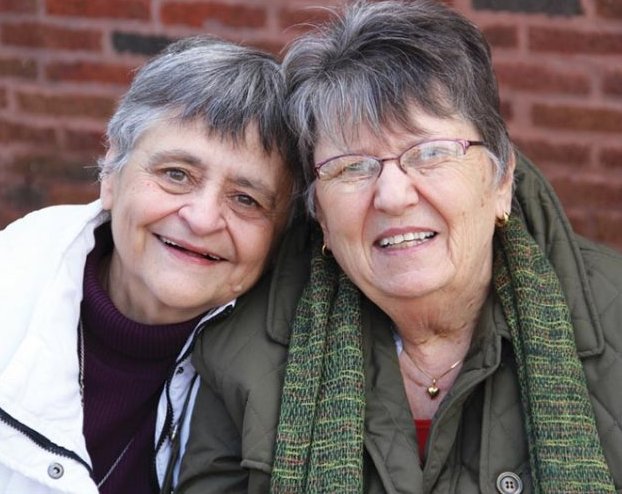
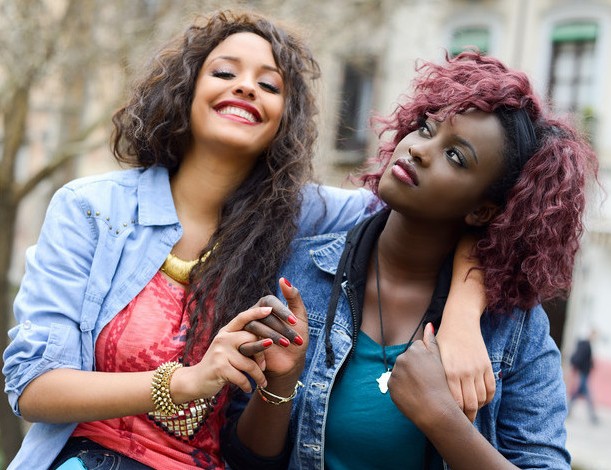
Lesbian
Continuum
"Compulsory Heterosexuality and Lesbian Existence" is a
1980 essay by Adrienne Rich, published in her 1986 book
Blood, Bread, and Poetry.
Rich argues that heterosexuality is a violent political
institution making way for the "male right of physical,
economical, and emotional access" to women. She urges
women to direct their energies towards other women
rather than men, and portrays lesbianism as an extension
of feminism. Rich challenges the notion of women's
dependence on men as social and economic supports, as
well as for adult sexuality and psychological
completion. She calls for what she describes as a
greater understanding of lesbian experience, and
believes that once such an understanding is obtained,
these boundaries will be widened and women will be able
to experience the "erotic" in female terms.
In order to gain this physical, economical, and
emotional access for women, Rich lays out a framework
developed by Kathleen Gough (both a social
anthropologist and feminist) that lists "eight
characteristics of male power in archaic and
contemporary societies." Along with the framework given,
Rich sets to define the term lesbianism by giving two
separate definitions for the term. Lesbian existence,
she suggests, is “both the fact of the historical
presence of lesbians and our continuing creation of the
meaning of that existence. The other, lesbian continuum,
refers to the overall "range (through each woman’s life
and throughout history) of woman-identified
experiences, not simply the fact that a woman has had or
consciously desired genital sexual experience with
another woman." Below are the characteristics in which
male power has demonstrated the suppression of female
sexuality.
Highwomen Music Video: Redesigning Women
Wikipedia: Lesbian Feminism
It's Time for LGBTQ Women to Claim Our Seats at the
Table
Lady Gaga:
Till it Happens to You
How Ramona Quimby Taught a Generation of Girls to
Embrace Brashness
Four Non Blondes: What's Up
How Toxic Masculinity Harms
Women
Jennifer Nettles: I Can Do Hard Things
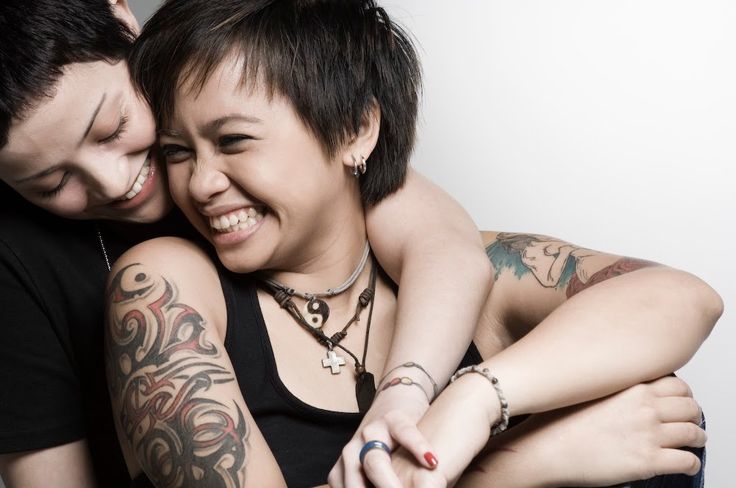
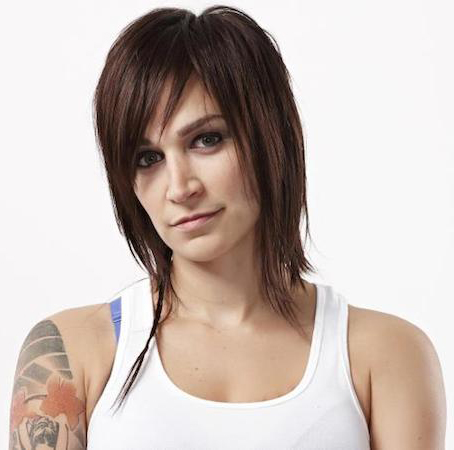
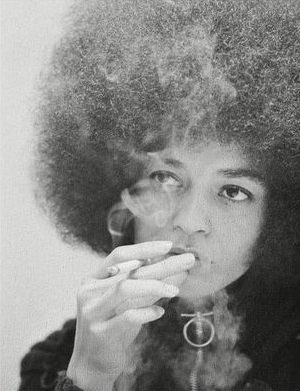
--To deny women their own sexuality: destruction of
sexuality displayed throughout history in sacred
documents.
--Forcing male sexuality upon women: rape, incest,
torture, a constant message that men are better, and
superior in society to women.
--Exploiting their labor to control production: women
have no control over choice of children, abortion, birth
control and furthermore, no access to knowledge of such
things.
--Control over their children: lesbian mothers seen as
unfit for motherhood, malpractice in society and the
courts to further benefit the man.
--Confinement: women unable to choice their own
wardrobe (feminine dress seen as the only way), full
economic dependence on the man, limited life in general.
--Male transactions: women given away by fathers as
gifts or hostesses by the husband for their own benefit,
pimping women out.
--Cramp women’s creativeness: male seen as more
assimilated in society (they can participate more,
culturally more important).
--Men withholding attainment of knowledge: “Great
Silence” (never speaking about lesbian existence in
history), discrimination against women professionals.
Queer Women of the Suffragette Movement
Lesbianism and Feminism
Gloria Steinem: Feminist Icon
Lesbians in the 1960s Feminist Movement
Suffragette History and Lesbian Drama
CompHet: Compulsory Heterosexuality
It's Time for LGBTQ Women to Claim Our Seats at the
Table
Women With a Perfect Response for Why They Don't Have
Kids
Suffragettes and Lesbians
Recognizing the Contribution of Lesbian Suffragettes
Lesbian Activist Fighting for All women's Rights
Queer Badass Suffragettes Made History
Authentic, Accurate, Hilarious:
Illustrations that Capture What it's Like Being a Woman
Info: Lesbian Issues
Feminista Jones: Black Feminism
Video Talk: What Are TERFs?
Feminists Must Stand Up
for Trans Rights
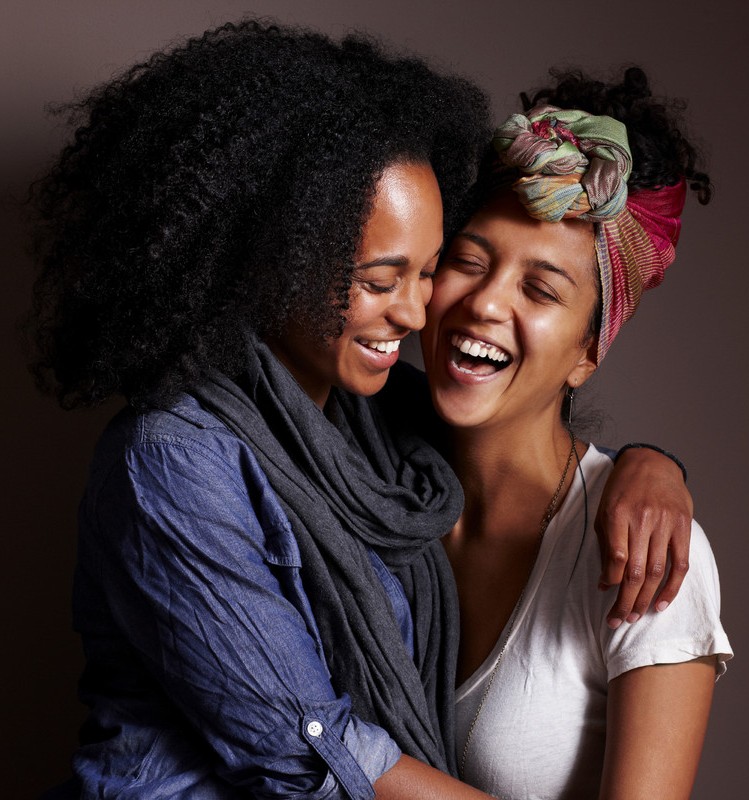


Female Gaze
The female gaze is a feminist film theoretical term
representing the perspective or viewpoint or feelings of
the female viewer. It is a response to feminist film
theorist Laura Mulvey's term, "the male gaze", which
represents not only the gaze of a heterosexual male
viewer but also the gaze of the male character and the
male creator of the film. In contemporary usage, the
female gaze has been used to refer to the perspective a
female filmmaker (screenwriter/director/producer) brings
to a film that would be different from a male view of
the subject. The male gaze is so ubiquitous it’s taken
for granted and once you’ve seen it, you can’t un-see
it. But there’s a new media buzzword emerging — “the
female gaze” — and it’s much trickier to define.
So, if the male gaze objectifies women, then the female
gaze must be the mirror opposite — right? Bring on
the close-ups up rippling pecs and washboard abs. We’re
finally free to objectify man-parts with wild, feminist
abandon! Er, not quite. The answer is a bit more
complicated.
 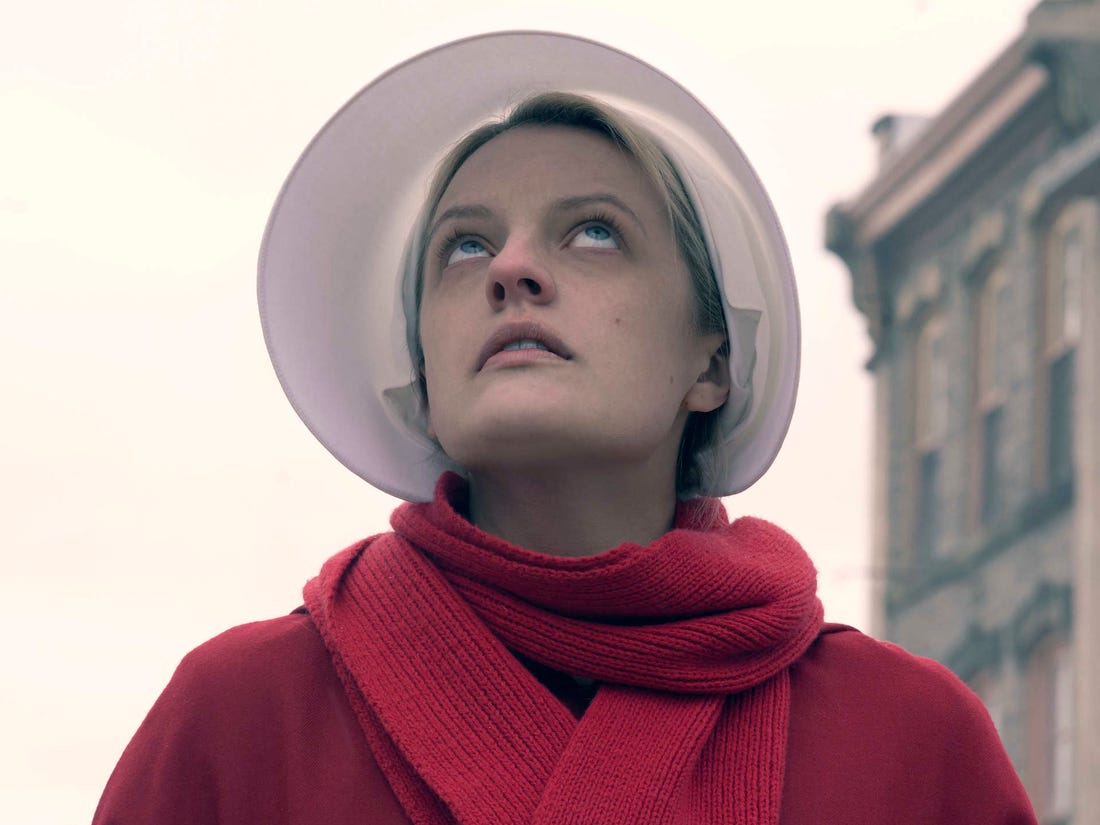
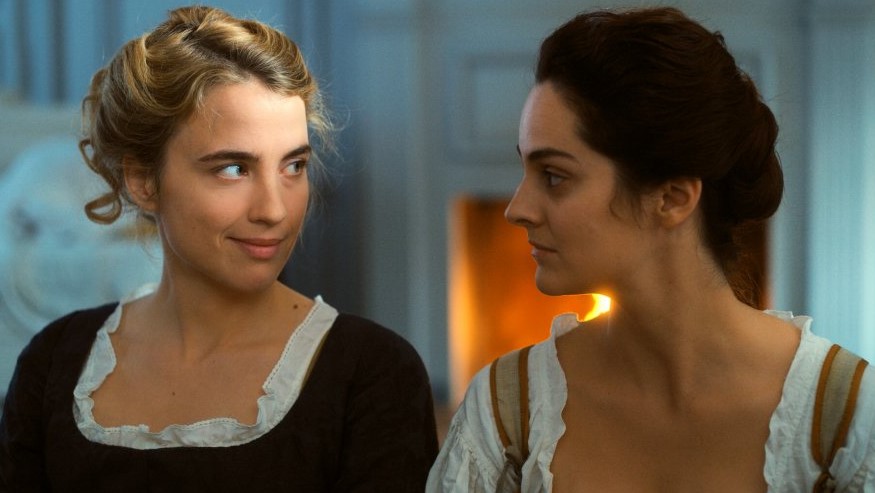
Male Gaze and Female Gaze
Female Gaze: Gender
Expectations
So What is the Female Gaze?
Interview: Conversation with Laura Mulvey
Female Gaze Explained
Gal Pals and Compulsory
Heterosexuality
Defining the Female Gaze
Male
Gaze Explained
Film Theory 101: Laura Mulvey and The Male Gaze
Billie Eilish: What Was I Made For?
The “female gaze” isn’t about asserting female dominance
on-screen. And it doesn’t mean that therefore we get to
“man-jectify” men in reverse. (Magic Mike, while
a cinematic masterpiece to some, is not a good example
of the female gaze in practice). That’s because the male
gaze isn’t just about objectifying women. A male
perspective doesn’t have to mean women are objectified
(even though, the majority of the time, this is true).
It’s a way to explain a limited male view, where the
rest of the characters exist mainly to serve him, his
interests, and his storyline. If the male gaze is all
about what men see, then the female gaze is about making
the audience feel what women see and experience.
Adopting
the language of psychoanalysis, Mulvey argued that
traditional Hollywood films respond to a deep-seated
drive known as scopophilia: the sexual pleasure involved
in looking. Mulvey argued that most popular movies are
filmed in ways that satisfy masculine scopophilia.
Although sometimes described as the “male gaze”,
Mulvey’s concept is more accurately described as a
heterosexual, masculine gaze. Visual media that respond
to masculine voyeurism tends to sexualise women for a
male viewer. As Mulvey wrote, women are characterised by
their “to-be-looked-at-ness” in cinema. Woman is
“spectacle”, and man is “the bearer of the look."
Woman's
films were a genre that focused on female leads, showing
the female as a diegetic story-teller rather than that
of a spectacle. Movies such as Rebecca and
Stella Dallas are examples of such films in which
the traditional narrative is told through the female
protagonist. This genre of film has evolved into modern
day "chick flicks" such as 27 Dresses and The
Devil Wears Prada. The films are meant to represent
the desires of female protagonists and, therefore, are
to represent the desires of the female movie-viewer.
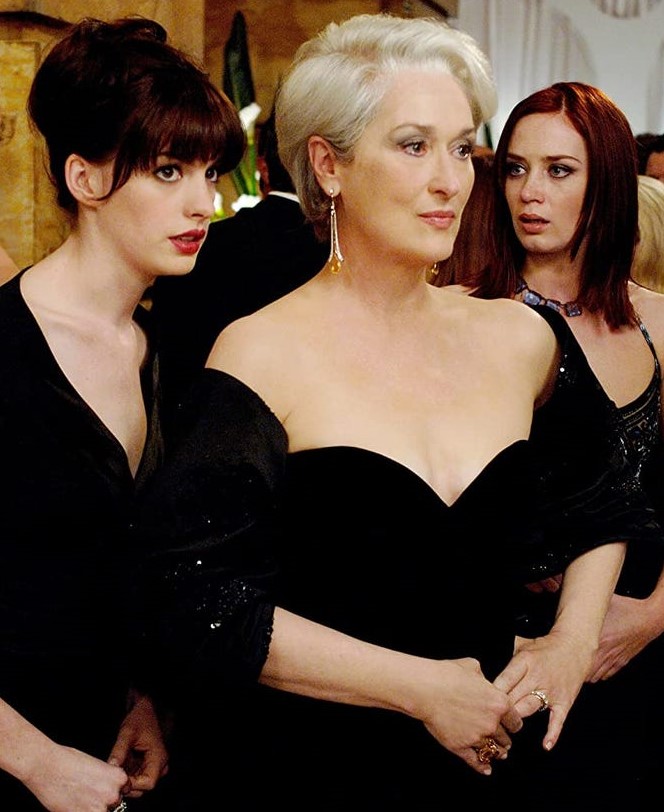

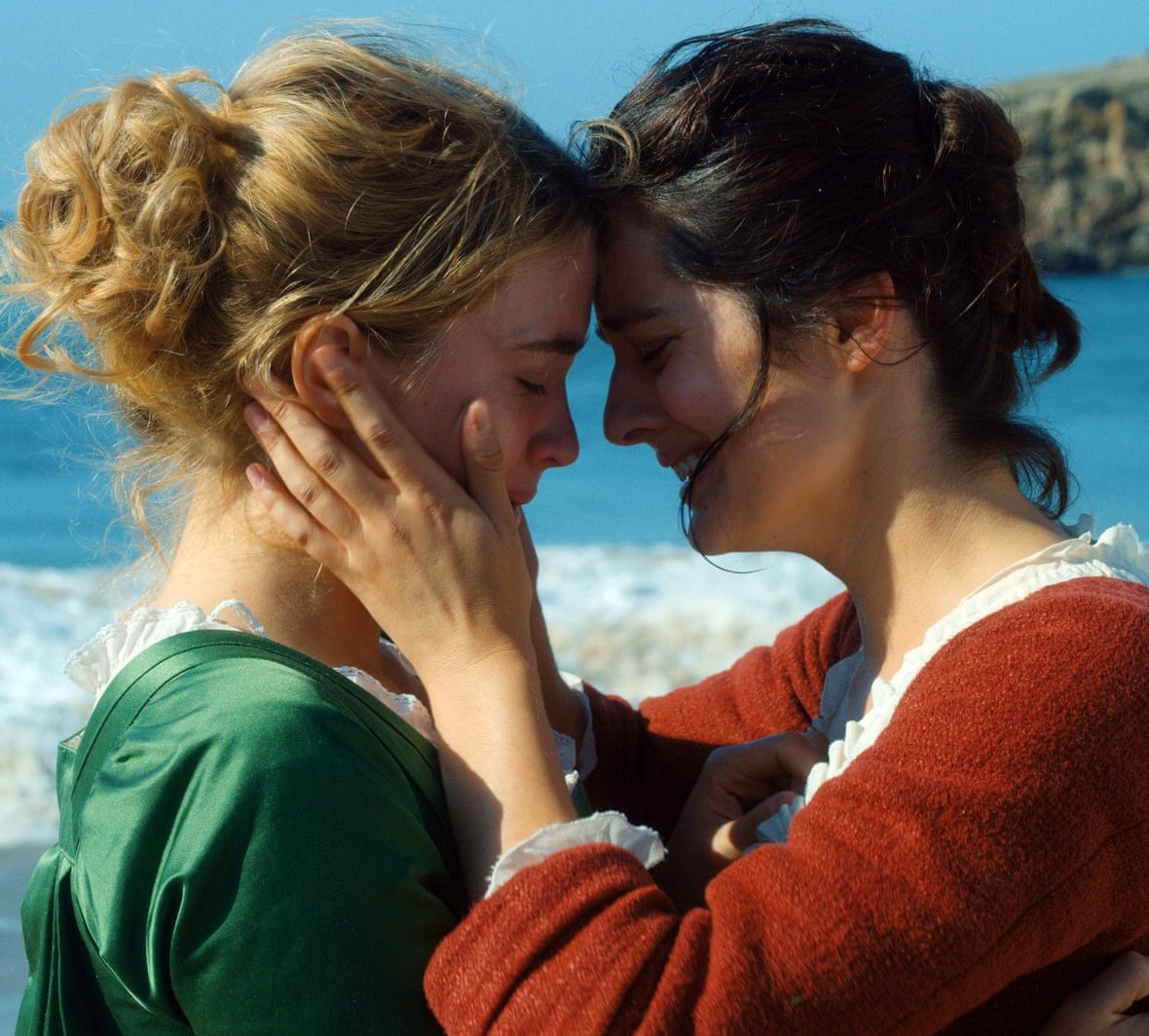

Consider the female gaze in the chick flick genre, with
specific attention to the attire women wear. Spectacle
overrules plot in films such as The Awful Truth.
Irene Dunne's wardrobe is regarded as a central aspect
of the film. The different dresses that Dunn wears are
extravagant but not sexualized. While the clothing may
be regarded as comical, they are also supportive to
Dunn's independence and femininity. Cohen notes that in
the film The Wedding Planner, Jennifer Lopez is
fully clothed throughout the entire film. The clothes,
as in The Awful Truth, are regarded as comical
yet they catch the viewer's eye without sexualizing her.
Critics have also focused attention on the presence of
the female gaze in contemporary cinema and television,
in works such as The Handmaid's Tale, Portrait
of a Lady on Fire, I Love Dick, Frozen, Hunger
Games, Fleabag, and The Love Witch. The
controversial lesbian drama film Blue Is the Warmest
Colour received considerable critical comment for
the dominance of the male gaze and lack of female gaze,
with some reviewers calling it a "patriarchal gaze". The
author of the book upon which the film was based was
among the harshest critics, saying, "It appears to me
that what was missing on the set was... lesbians."
Male Gaze and Female Gaze
Female Gaze: Gender
Expectations
So What is the Female Gaze?
Interview: Conversation with Laura Mulvey
Female Gaze Explained
Gal Pals and Compulsory
Heterosexuality
Defining the Female Gaze
Male
Gaze Explained
Film Theory 101: Laura Mulvey and The Male Gaze
Billie Eilish: What Was I Made For?

Rift Between Lesbians
and Feminists
While lesbians have always certainly been an active part
of the overall feminist movement (including the women's
liberation movement, the suffragette movement, and other
political efforts to achieve women's right to vote and
other women's equality issues), lesbians have not always
been accepted or well-received in feminist circles. This
dispute has sometimes been described as a culture clash
between feminists and lesbians and sheds light on the
conflict of values, priorities, and lifestyles between
the two groups.
The
emergence of queer theory in the 1990s was built upon
certain principles of lesbian feminism, including the
critique of compulsory heterosexuality, the
understanding of gender as defined in part by
heterosexuality, and the understanding of sexuality as
institutional instead of personal. Despite this, queer
theory is largely set in opposition to lesbian feminism.
Whereas lesbian feminism is traditionally critical of
BDSM, butch/femme identities and relationships,
transgenderism, transsexuality, pornography, and
prostitution, queer theory tends to embrace them.
Queer
theorists embrace gender fluidity and subsequently have
critiqued lesbian feminism as having an essentialist
understanding of gender that runs counter to their
stated aims. Lesbian feminists have critiqued queer
theory as implicitly male-oriented and a recreation of
the male-oriented Gay Liberation Front that lesbian
feminists initially sought refuge from.
Because of its focus on equality in sexual
relationships, lesbian feminism has traditionally been
opposed to any form of BDSM that involve perpetuation of
gender stereotypes.
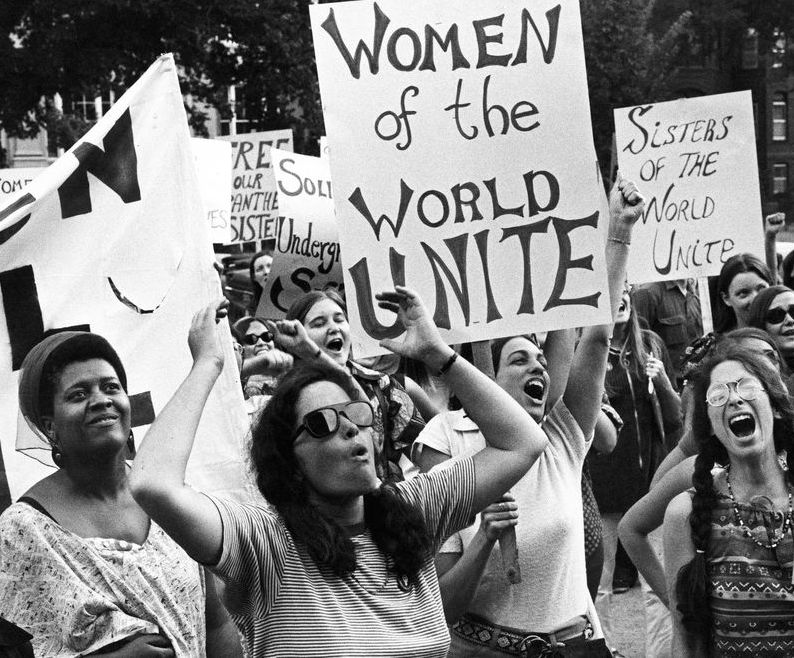
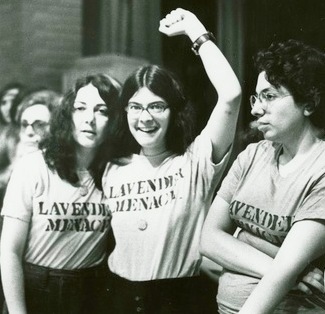
Video Talk: What Are TERFs?
JK Rowling Comes Out as a TERF
What Does it Mean to be a TERF?
JK Rowling: Transphobic Manifesto
HRC: How to Make Your Feminism Trans Inclusive
What is Transmisogyny?
Bisexuality is rejected by some lesbian feminists as
being a reactionary and anti-feminist backlash to
lesbian feminism. A number of women who were at one time
involved in lesbian feminist activism came out as
bisexual after realizing their attractions to men. A
widely studied example of lesbian-bisexual conflict
within feminism was the Northampton Pride March during
the years between 1989 and 1993, where many feminists
involved debated over whether bisexuals should be
included and whether or not bisexuality was compatible
with feminism. Common lesbian feminist critiques leveled
at bisexuality were that bisexuality was anti-feminist,
that bisexuality was a form of false consciousness, and
that bisexual women who pursue relationships with men
were "deluded and desperate." However, tensions between
bisexual feminists and lesbian feminists have eased
since the 1990s, as bisexual women have become more
accepted within the feminist community.
Though
lesbian feminists views vary, there is a specific
lesbian feminist canon which rejects transgenderism,
transsexuals and transvestites, positing trans people
as, at best, gender dupes or functions of a discourse on
mutilation; or at worst, shoring up support for
traditional and violent gender norms. This is a position
marked by intense controversy.
The term
TERF was developed to label this type of feminist
attitude towards transgender people. The acronym
means Transgender Exclusionary Radical Feminist.
Sometimes, the less derogatory term, Gender Critical
Feminist, is used instead of TERF.
Among the
more famous (or infamous) TERFs is JK Rowling, author of
the Harry Potter series.
These views on transgenderism and transsexuality have
been criticized by many in the LGBTQ and feminist
communities as transphobic and constituting hate speech
against transsexual men and women. Lesbian feminism is
sometimes associated with opposition to sex reassignment
surgery; some lesbian feminist analyses see sex
reassignment surgery as a form of violence akin to BDSM.
Time Magazine Heroes of the Year: Women of Iran
Irrelevant by Pink
LGBTQ Groups Voice Outrage Over Dobbs Ruling Overturning
Roe
Angry Woman by Ashe
Amanda Gorman: Reasons to Stand Up for Roe v Wade
International Women's Day: Chaka Kahn and Idina Menzel
Billie Jean King: 50 Years
of Activism
You Don't Own Me by Leslie Gore
Indigo Girls: Go (March for Our Lives)
Sheryl Crowe: Woman in the White House
Advocate: Civil Rights Champion Ruth Bader Ginsburg Dies
Unpregnant: Women's
Movement Meets LGBTQ Movement
Beyonce: Girls Run the
World
Message for Young Girls
JK Rowling: TERF
Wars
JK Rowling
became famous by penning the Harry Potter book series,
which presents a fantastical world that shaped the
childhoods people across the globe. More recently, she's
been making headlines for writings about her personal
views regarding transgender issues.
Rowling made a statement with the caption "TERF Wars."
The statement came after Rowling caught heat for issuing
transphobic remarks, including mocking the phrase
"people who menstruate" and saying that "trans activism"
is harming women.
In particular, Rowling took issue with being labeled a
TERF, or trans-exclusionary radical feminist. The label
"TERF" itself is considered to be a slur by some
self-identified gender critical feminists. However, many
people who use the term say those who are labeled TERFs
make transphobic statements, claim transgender women
don't belong in women's spaces, and imply that
acknowledging the existence of transgender people harms
women's rights.
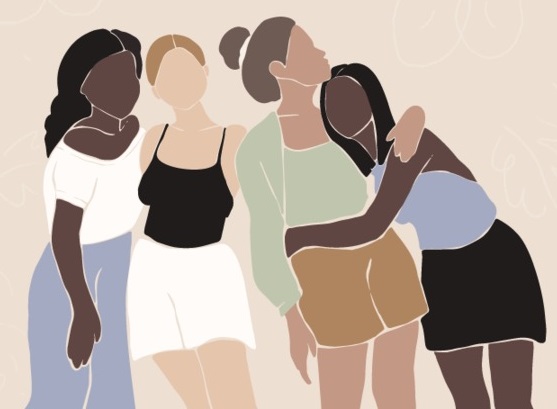
National Organization for
Women
Women’s Issues Websites
100 Lesbian Things To Do
Before You Die
Taylor Swift: I'd Be The Man
Warrior Women are the Role Models We
Need
Tricia Yearwood: Every Girl in This Town
Advocate Magazine: Women of the
Year
What is Transmisogyny?
Flashmob: Victoria's Secret
You Don't Own Me
by Lesley Gore
in 1989
PBS Video: Queer Feminist Punk Rocker
My Out Spirit: Women’s Issues
Sisters Are Doin' for Themselves: Annie
Lennox and Aretha Franklin
Video Talk: What Are TERFs?
Billie Eilish: What Was I Made For?
HRC: How to Make Your Feminism Trans Inclusive
Gal Pals and Compulsory Heterosexuality
Leyla
Blue: Fuck Yourself
Women React to Trump’s
Sexism
Authentic, Accurate,
Hilarious: Illustrations that Capture
What it's Like Being a Woman
GoMag: Cultural Roadmap for
City Girls Everywhere
American Girl (Alternate Version) by Tom Petty
Throw Like a Girl
Lesbians in the 1960s Feminist Movement
Meredith Brooks: Bitch
The Year Women Found Their Rage
Feminist Current: Lesbianism Under Attack
Women Who Changed the Course of LGBTQ History
The Story of Lilith

HOME
QUEER CAFE
│ LGBTQ Information Network │ Established 2017 |